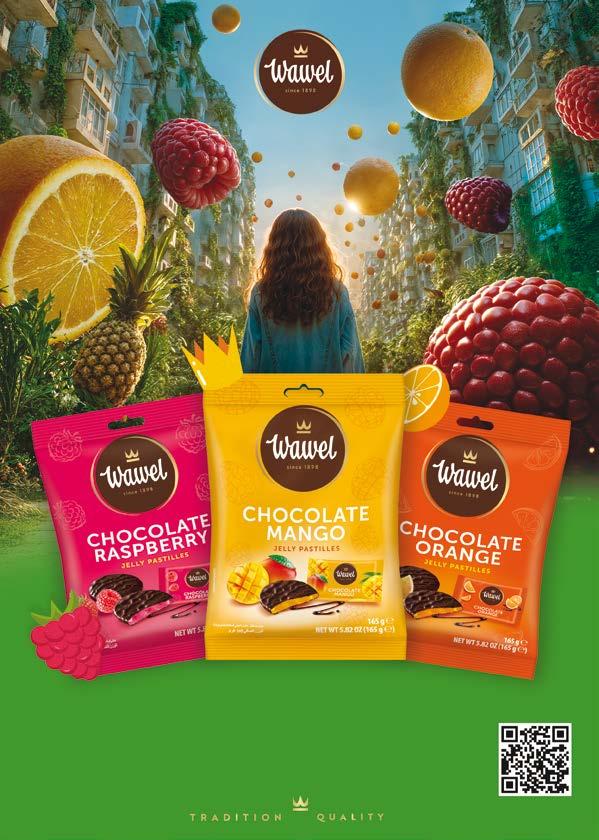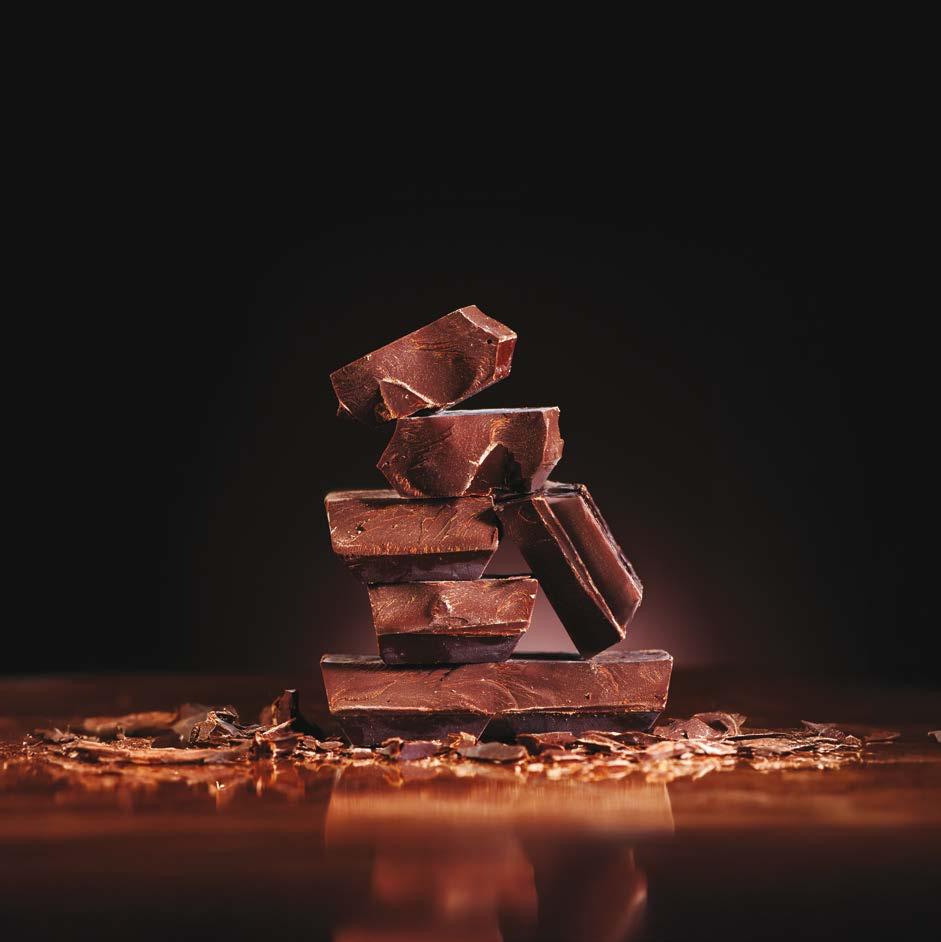




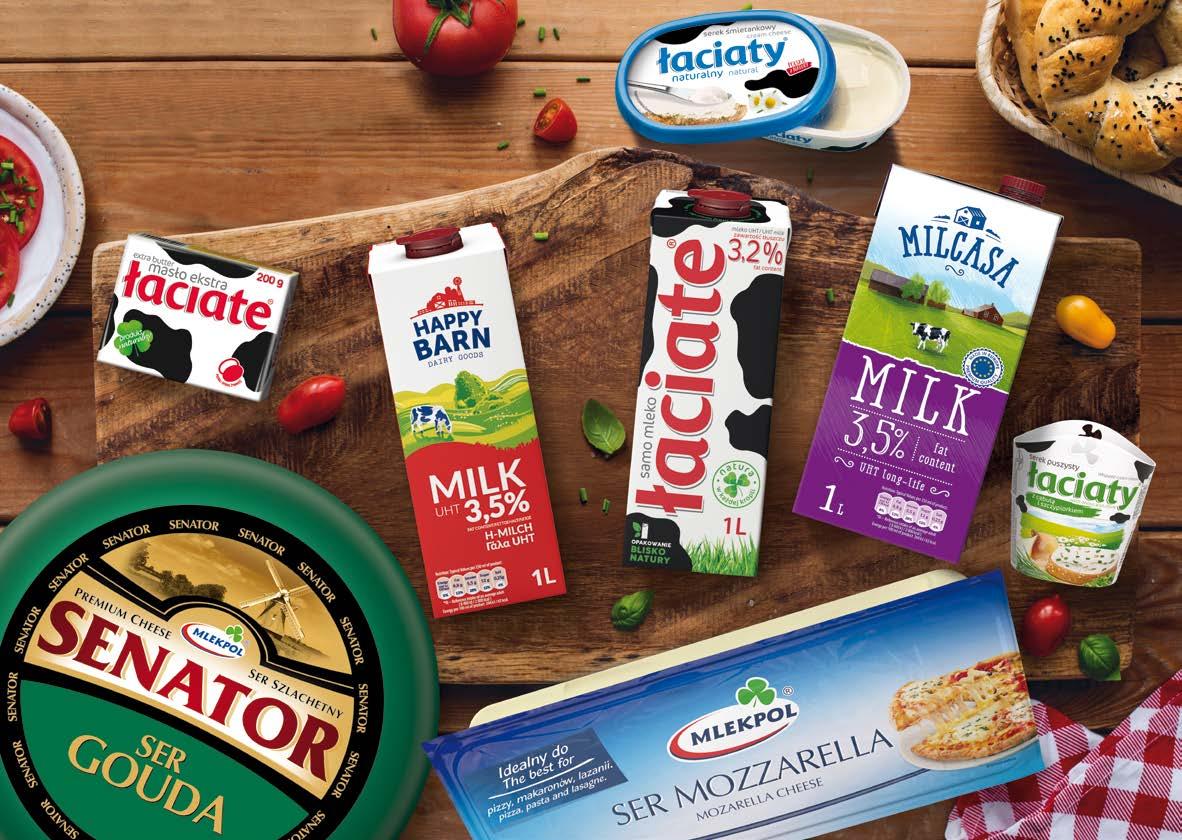











I am proud to present you with the third issue of this year’s Food from Poland magazine, which accompanies one of the world’s most important food industry event - the ANUGA trade fair in Cologne. This event has for years been a global platform for meetings between producers, distributors and experts from all over the world. Poland - with its strong, diverse and dynamically developing export offer - has an increasingly important place in this dialogue.
In this issue, we have placed a particularly strong emphasis on the voice of the industry. You will find here numerous interviews with representatives of Polish companies and institutions supporting exports - it is they who know best the realities of the market and share their experience and reflections on the upcoming challenges. We also analyze the condition of the Polish food sector on foreign markets in 2025 and show how tradition and quality are becoming pillars of strength for Polish products.
There is also a practical compendium - an extensive contact section for Polish producers, which our foreign readers value the most. It is here - in the export products section - that Polish companies present their flagship products, with which they confidently compete internationally.
You are cordially invited to read magazine and talk to us in person at our stand: Hall 5.2 |
market news
16 MLEKOVITA is constantly implementing the principals of the sustainable development
18 MLEKOVITA is collecting more and more milk A2A2
food sector
20 Polish food industry on foreign markets in 2025
80 The taste of tradition, the quality of the future
interview
10 Małgorzata Cebelińska, Vice President of the Management Board, MLEKPOL
13 Paweł Majchrzak, COO and Management Board Member, Gibar
36 Małgorzata Ryttel, President of the Management Board, and Wojciech Ryttel, Vice-president of the Management Board, PPH Maxpol
40 Iwona Kruszyńska, Export Key Account Manager, Eurowafel
42 Piotr Wieloch, Member of the Management Board, Director of Marketing and Exports, Partner Center
46 Fanex growing with taste tradition and innovation
50 Paulina Małachowska, Brand Manager, Adalbert’s Tea
54 Dariusz Goszczyński, President of the National Poultry Council – Chamber of Commerce
57 Marek Osuchowski, Director of Trade and Marketing, Wielkopolski Indyk
64 Joanna Szymczak, Vice-president, SEKO
commentary
60 Polish meat exports grow despite global challenges
86 Retail chains strengthen Polish food exports and local supply chains
Editor-In-Chief
Tomasz Pańczyk t.panczyk@foodfrompoland.pl
Managing Editor Monika Książek m.ksiazek@foodfrompoland.pl
Advertisement Office Phone: +48 22 847 93 67

Editorial Office Bagno Street 2/218 00-112 Warsaw, Poland Phone: +48 22 828 93 66 redakcja@foodfrompoland.pl www.foodfrompoland.pl

Fischer Trading Group Ltd.
CEO: Tomasz Pańczyk t.panczyk@ftgroup.pl


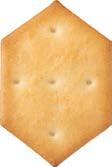
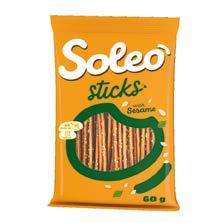
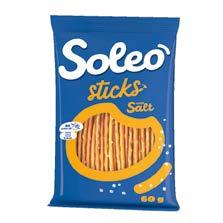










Mlekpol, one of the leading dairy cooperatives in Central and Eastern Europe, supplies its products to more than 100 countries. Vice President Małgorzata Cebelińska outlines how the company is addressing key challenges including sustainability requirements, digitalization, and changes in export markets.
Mlekpol has maintained a strong position in the dairy market for years, and your products reach consumers in many countries. What are the biggest challenges facing the company today?
One of the key challenges that Mlekpol currently has to face is the need to quickly adapt to the dynamically changing economic reality and increasingly restrictive standards of sustainable development and ESG. The growing expectations of consumers, business partners, and legislative institutions regarding transparency, energy efficiency, and environmental responsibility necessitate the implementation of ambitious technological goals. Therefore, we are consistently investing in renewable energy sources, process automation, and new circular economy solutions. These measures not only reduce our carbon footprint, but also increase the company’s global competitiveness.
In addition, changes in strategic export markets, such as China, are driving us towards even greater flexibility and a new approach to building trade relations. In response to the current situation, we are focusing, among other things, on diversifying our exports, concentrating on regions characterized by dynamic demographic growth and an absorbent market, such as Southeast Asia and Latin America.
Overcoming challenges always requires a lot of work, but it also determines the development and strengthening of Mlekpol’s position as a modern, responsible company. Our advanced production facilities, broad portfolio, and flexible approach to the needs of individual markets enable us to successfully sell our products to over 100 countries. This confirms that we are able to effectively respond to the diverse expectations of today’s consumers.
Which products from Mlekpol’s portfolio are most popular on foreign markets?
SM Mlekpol’s export structure is dominated by products with high added value and a long shelf life, primarily: UHT milk and cream, butter, ripening cheeses, cream cheeses, and a full range of powdered products.
For years, we have been intensively developing our export brands: Happy Barn and Milcasa, valued for their quality in European, Asian, African, and Middle Eastern countries. Both brands are effectively building Mlekpol’s recognition outside Poland, which facilitates the establishment of trade relations in other countries as well.
It is worth noting that our significant technological advantage in terms of potential milk sales to the most distant global markets is our modern production line of UHT milk, which, when stored at ambient temperature, retains its freshness and nutritional properties for up to 12 months. This solution is ideal for countries with a tropical climate, where refrigeration infrastructure is often limited and the demand for safe food with a long shelf life remains very high.
What distinguishes Mlekpol products from international competitors?
The Mlekpol Dairy Cooperative has been successfully building its position on the global market for years, thanks to a combination of high-quality raw materials, operational flexibility, and the ability to respond quickly to changing consumer expectations.
Mlekpol’s distinguishing feature is, above all, its individual approach to each trading partner. Our customers appreciate this flexibility, which allows us to cooperate with both large retail chains and smaller, local distributors.
Another advantage of the Cooperative is its modern production facilities, consisting of 12 plants throughout Poland, which are characterized by a high degree of specialization. Thanks to this structure, we are able to provide our customers not only with a broad portfolio and continuity of supply, but also consistent quality standards and rapid adaptation of production to the needs of individual markets, also in situations such as seasonal increase in demand.
The company’s transparency and responsibility are also important, both in terms of the origin of raw materials (sourced from Polish farmers who are members of the Cooperative) and compliance with international standards, including those relating to food safety and sustainable development.
In the long term, environmental transparency is also very important to us. That is why we are conducting advanced work on reducing our carbon footprint throughout the supply chain. We are therefore working with farmers – members of the Cooperative and contractors – to jointly reduce our impact on the climate, both through good agricultural practices and investments in innovation.
We carry out all these activities with the conviction that the future of the dairy sector depends on the ability to combine quality and scale of production with respect for the environment and corporate social responsibility.
Is the digitization of production processes and logistics the direction of Mlekpol’s development?
Due to data-driven decision-making, digitization has a very significant impact on changing the management style and organizational culture at Mlekpol. Working to provide reliable basic data, as well as determining its owners, is changing the way the company operates.
Our wide portfolio –from premium UHT milk and butter to top-quality cheeses – is built on trusted raw materials from Polish farms and tailored to meet the expectations of diverse global markets.
What sustainable development measures does Mlekpol take?
For Mlekpol, sustainable development is a conscious, long-term direction of action, embedded in the strategy of the entire organization.
One of the Cooperative’s most important achievements in this field is the complete elimination of hard coal from our production processes. We have replaced it with low-emission fuels such as natural gas and LNG. What is more, we already cover 20% of our electricity demand from our own sources, and our goal for 2030 is to reach 50% in this regard.
In terms of the circular economy, we can boast a unique investment – the launch of a modern biogas plant at the company’s wastewater treatment plant in Grajewo. It is the first facility of this type in our production structure. The plant uses all organic waste from the processing process and sludge from the treatment plant, converting it into green electricity and heat, as well as organic fertilizer used locally by farmers. For this investment, Mlekpol was awarded the title of “Eco-Investor in the Food Industry,” confirming that pro-environmental activities are an indispensable part of modern organizational management.
The digitization process has entered all areas of Mlekpol’s operations. In the areas of production and energy, for example, we are implementing advanced control systems based on digital data, continuously recorded thanks to precise measuring devices. This ensures a very high level of product standardization and the highest level of productivity in all processes.
The upgrade of the ERP system to version S4 is key for us. We have already successfully migrated the database to HANA. We have completed the implementation of a WMS-class management system in two distribution warehouses. Another major investment is the replacement of the currently used data warehouse with a new platform for managing data from various sources and a cloud-based solution for data reporting and analysis. And this is only part of the work in progress. What lies ahead of us, among other things, is a major upgrade of our transport management software and the adaptation of our current systems to the needs of KSEF, as well as the next stage of development of our raw material procurement support program.
The digital transformation also extends to our relationships with suppliers. We support farmers who are members of the Cooperative in developing smart farms that implement modern herd management, animal health monitoring, and sustainable feeding systems.
Thanks to these investments and initiatives, Mlekpol is consistently strengthening its position as a modern, responsible producer, well prepared for the challenges of the future.
Do you notice any differences between trends on the Polish and foreign markets?
On the Polish market, we are seeing a significant increase in the popularity of functional products, including high-protein products. Our Łaciate Protein+ line perfectly meets these expectations. Although high-protein products were initially associated mainly
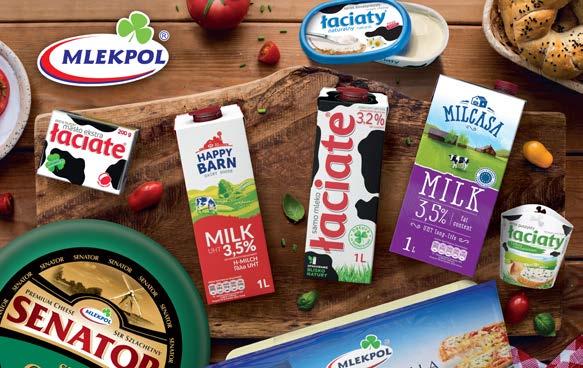
with athletes, they are now popular among a wider group of consumers: people who care about a balanced diet, seniors, and parents looking for nutritious snacks for their children. In the functional products category, we have also launched a new line of lactose-free Łaciate drinking yogurts enriched with magnesium and biotin – ingredients known for their positive effect on the nervous system and the condition of the skin and hair.
Mlekpol
will continue to develop consistently based on three main directions: modern technologies, environmental responsibility, and further strengthening its position
In distant foreign markets, we observe slightly different preferences. In countries with a tropical climate, the shelf life of products at ambient temperature is crucial, hence the great popularity of our UHT milk of various brands. In many countries in Africa, Asia, and the Americas, there is also a noticeable growing demand for products with a high fat content, such as butter and cream, but also cheeses, including mozzarella.
on domestic and foreign markets.
How important is it for Mlekpol to participate in international trade fairs such as ANUGA?
Trade fairs of this rank bring together food industry leaders from around the world, so attending them gives us access to key decision-makers – distributors, importers, retail chains, and media representatives. It is an excellent opportunity to showcase product innovations, obtain feedback from partners and consumers, and monitor trends that shape the future of the dairy sector.
For Mlekpol, participation in events such as ANUGA brings concrete business results: getting new contracts, strengthening rela-
tionships with current partners, and developing sales in new markets.
The image aspect is also important. Mlekpol’s presence among exhibitors at such major events confirms our position as one of the largest and most modern dairy producers in Central and Eastern Europe. Trade fairs such as ANUGA are also a space for promoting Polish agriculture and processing, and Mlekpol, as a cooperative based on the strength of local suppliers, represents them in the best possible way.
What are Mlekpol’s plans for the coming years?
In the coming years, Mlekpol will continue to develop consistently based on three main directions: modern technologies, environmental responsibility, and further strengthening its position on domestic and foreign markets. We want to combine tradition and experience with innovation, adapting to the changing needs of consumers and the challenges of the modern world.
An integral part of our strategy remains cooperation with farmers – members of the Cooperative, who are at the heart of our business. Thanks to them we can not only develop high-quality dairy production, but also work together to ensure the future of Polish agriculture.
Further development will be based on responsible investment decisions, product portfolio development, and openness to new markets and partnerships. Our goal is to build a strong, sustainable organization that is ready to meet the demands of tomorrow and future generations.

We talk with Paweł Majchrzak, COO and Management Board Member at Gibar, about how the company is strengthening its position in Poland as a distributor and importer of niche confectionery, while steadily expanding into savory snacks and beverages.
How is Gibar currently positioned on the Polish and international markets?
Gibar positions itself as a distributor and importer specializing in niche confectionery, complemented by a growing offer of savory snacks and beverages. On the Polish market, the company is recognized for premium – quality products and innovate concepts. Internationally, Gibar seeks to bring unique, carefully selected treats to consumers, focusing on originality and memorable taste experiences.
What is Gibar’s greatest competitive advantage?
Gibar’s key advantage lies in its ability to combine tradition with innovation. The company offers products that stand out in flavor, form and packaging, while maintaining consistent quality. By focusing on niche categories often overlooked by larger players, Gibar brings consumers something distinctive and attractive.
In which foreign markets is Gibar already present, and which ones does it consider a priority for the coming years?
At this stage, Gibar does not directly export its products abroad. The company’s focus is on strengthening and expanding its distribution network in Poland, ensuring strong brand recognition and availability on the domestic market. Foreign markets are currently treated primarily as a source of inspiration and potential new products that could be added to the Gibar portfolio in the future.
Which products from Gibar’s range are currently the most popular with customers, both in Poland and abroad?
Among the most sought – after products are the iconic Luxury Plum in Chocolate, appreciated for its refined taste and premium character, and innovative items such as Snowball Pistachio or flavored donuts, which attract younger audiences. These products perfectly reflect current market trends – they are innovative, practical and designed to fit the dynamic lifestyles od today’s consumers.
What challenges is the company facing in its international expansion process?
The greatest challenges include adapting to diverse consumer preferences, regulatory requirements and strong competition in established markets. Building brand recognition abroad requires consistent investment in marketing and distribution partnerships. At the same time, Gibar treats these challenges as opportunities to refine its offer ang strengthen its international presence.
What are the company’s key objectives for the coming years?
The company’s main objectives are to expand its portfolio with unique products that combine innovative flavors, attractive formats and convenient packaging. Gibar aims to further strengthen its brand as a symbol of high – quality, distinctive confectionery while also broadening its presence in the category of savory snacks and beverages. The long – term vision is to anticipate consumer needs and deliver products that offer moments of indulgence.
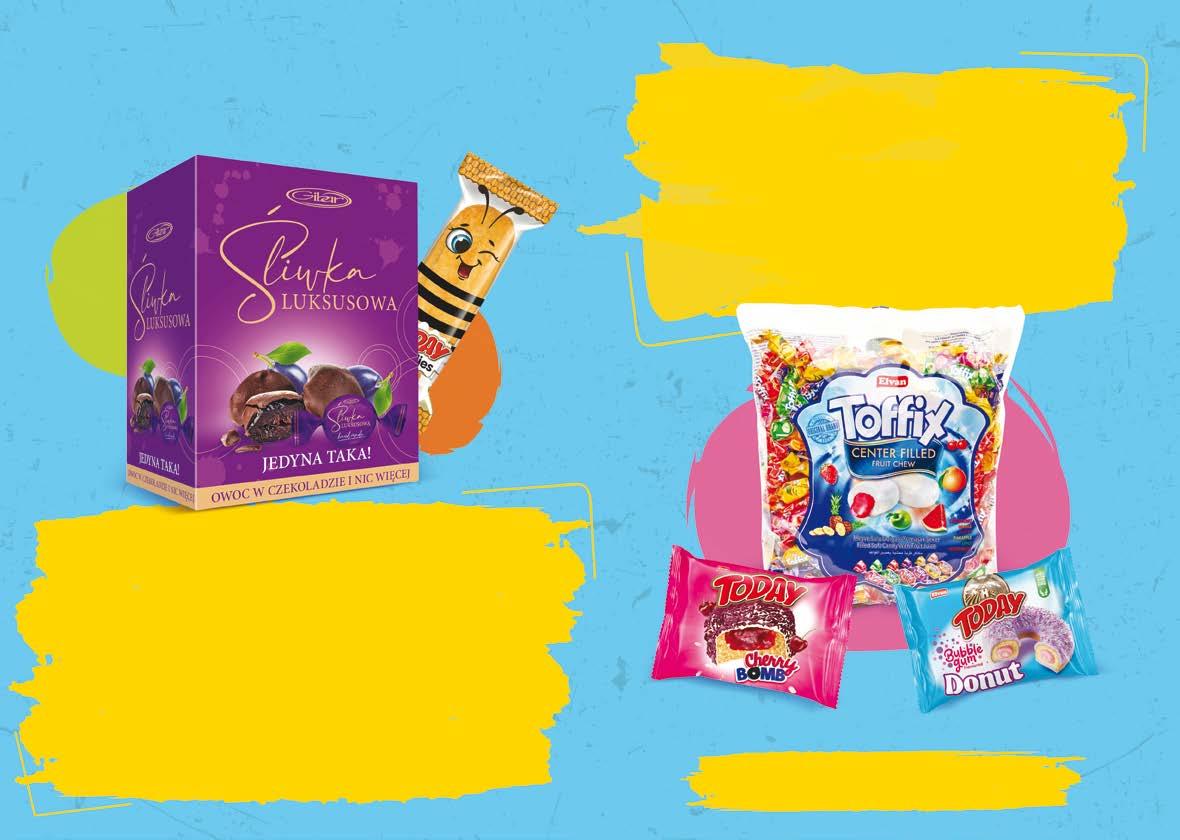

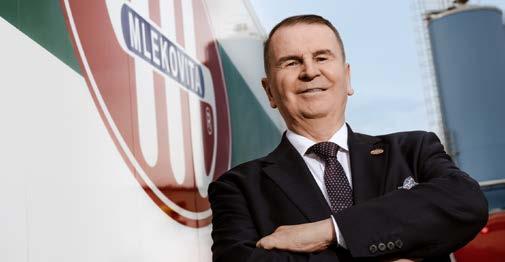
The Mlekovita Group constantly follows the trends and expectations of modern consumers, placing great emphasis on innovation and environmental responsibility, which is reflected in intensive investments in packaging optimization, reduction of raw material consumption, and implementation of modern packaging technologies. These activities are aimed at making production more sustainable and environmentally friendly. Recently, a new investment in the blue cheese department was completed at the production plant in Baranowo.
The purchase of an advanced packaging machine has opened up completely new possibilities. The new production line automates the packaging process, significantly reducing the consumption of packaging materials and increasing production efficiency. A particularly important innovation is the change in the type of film used for packaging blue cheese. Unlike the films used previously, the new film is completely aluminum-free, yet retains excellent barrier properties, guaranteeing high product quality and shelf life. The elimination of aluminum not only facilitates the recycling process, but also reduces energy consumption throughout the entire life cycle of the packaging. Furthermore, it eliminates the need for paper wrappers, which previously served
an informational and aesthetic function.
The new technology has simplified the production, logistics, and recycling processes. This solution not only responds to growing consumer expectations in terms of sustainable development, but also allows for a significant improvement in production efficiency and a reduction in operating costs. “The introduction of the new machine and packaging technology is not only an expression of our concern for the environment, but also brings real economic benefits,” emphasizes Dariusz Sapiński, President of the Management Board of the Mlekovita Group. “Process automation and reduced packaging material consumption will allow us to reduce labor costs, streamline logistics, and reduce raw material consumption,
which in turn leads to a smaller carbon footprint. The new technology will also enable savings of approximately 15 million paper wrappers per year. This is another step by Mlekovita towards modern and responsible production solutions.
The company consistently invests in innovations that not only improve product quality but also promote the rational management of natural resources. Another example of this approach is the launch of a modern Dairy Products Factory at the company’s headquarters, based on automated lines and intelligent energy management. Mlekovita proves that modernity and responsibility can go hand in hand with economy and benefits for consumers and the natural environment.
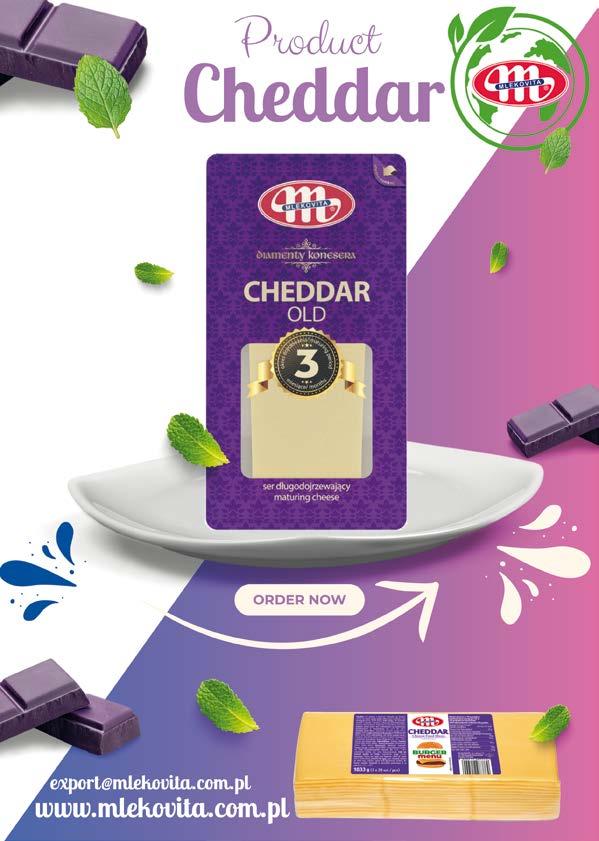


Mlekovita was the first dairy company in Poland to launch a line of A2A2 milk products, which already includes UHT milk, natural yogurt, semi-fat cottage cheese and sliced cheese.
The largest dairy group in Poland and Central and Eastern Europe is constantly developing its product range, focusing primarily on product safety in terms of health and unique nutritional values. It was the first producer in Poland to introduce innovative A2A2 milk products to wide distribution – milk containing only A2 beta-casein, a unique type of protein that is more easily digestible by humans and comes from the milk of specially selected cows.
Beta-casein A2 is one of the forms of natural protein found in cow’s milk, i.e.,

casein, which accounts for as much as 80% of milk proteins. Commonly available milk contains a mixture of beta-caseins A1 and A2, while A2A2 milk contains only beta-casein A2. This small difference can be of great importance to health. The better absorption of beta-casein A2 by the human body makes A2A2 milk an alternative for people who suffer from allergic reactions after consuming cow’s milk or its products.
Therefore, after the successful debut of UHT milk, natural yogurt, and semi-fat cottage cheese made from A2A2 milk, Mlekovita has just expanded its range with a new product: sliced cheese made from A2A2 milk, which combines a delicate taste, creamy texture, and convenience of use. This product is
aimed at consumers who are looking for alternatives that are better for their health without giving up their favourite flavors. Sliced cheese made from A2A2 milk is perfect for everyday sandwiches, as well as an ingredient in snacks or casseroles. Thanks to a carefully selected production process, this cheese retains the natural nutritional values of A2A2 milk and is a valuable source of protein, calcium, phosphorus, zinc and vitamins A and B12.
By introducing another new product to its A2A2 milk product line, Mlekovita once again proves that innovation for the health and taste enjoyment of consumers is its priority. This offer is a response to the growing interest in conscious nutrition and products that have a beneficial effect on the body.
We want every consumer to be able to find products in our range that are not only tasty but also good for their health. We want those who have not been able to consume dairy products until now to be able to enjoy the familiar and beloved, but perhaps forgotten, flavors of milk, cheese, yogurt, and cottage cheese again. Because A2A2 milk and milk products are not only an innovation in the dairy market, but above all an alternative for many consumers, without in any way discrediting the main nutritional values of conventional milk.
Magdalena Szabłowska Director of Foreign Trade SM MLEKOVITA
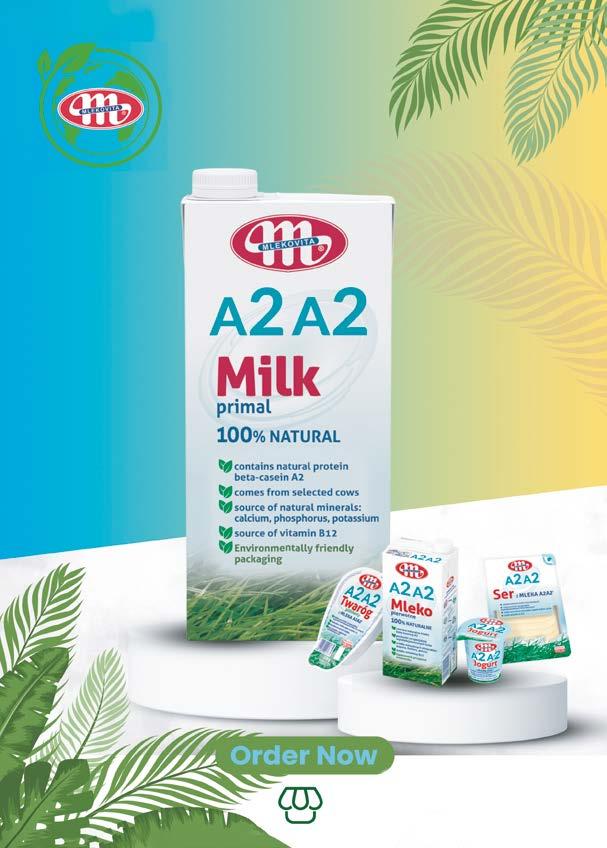

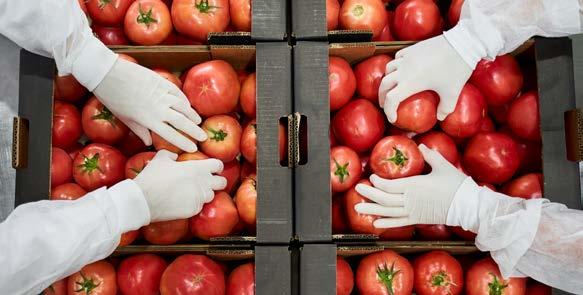
The first half of 2025 showed that Polish food maintains a strong position on foreign markets, although the dynamics are no longer as spectacular as in previous years.

Magdalena Chajzler Editor
According to the Central Statistical Office (CSO), the value of all Polish exports amounted to PLN 661.8 billion, an increase of 2.7% year-on-year. Out of this total, as much as PLN 566.5 billion fell to the countries of the European Union, which are still the key recipients of Polish food products. Maintaining such a high share of the EU shows that despite the increasing diversification of destinations, Europe remains the natural and most important market.
At the same time, the structure of exports is changing qualitatively. Shipments to developing countries and Central and Eastern Europe declined as a result of
the economic slowdown and inflationary pressures in these regions. On the other hand, a clear increase was recorded in the exchange with highly developed countries outside the EU - primarily the UK and the US. The British market, after a period of decline due to Brexit and logistical problems, is returning to its role as one of the key recipients of Polish food, while the US is becoming an increasingly attractive destination due to the demand for dairy products and confectionery.
For Polish producers, this means the need to respond flexibly to differences in demand and consumer expectations. In the Eurozone, the most important challenge remains the struggle for margins in an environment of strong competition and high raw material costs, while in non-EU markets, innovation, certification and the ability to adapt the product portfolio are more important. This, in turn, requires companies to invest in R&D and marketing, not just production capacity.
It is worth noting that against the background of all Polish exports, food remains a category of exceptional stability. While the machinery or automotive industries react strongly to cyclical fluctuations, food sales maintain relatively stable volumes. Moreover, data for the beginning of 2025 show that exports to highly developed markets outside the EU have increased in value terms, demonstrating the ability of Polish companies to compete on quality and brand, not just price.
Forecasts for the next quarters are cautiously optimistic. Experts indicate that, barring major geopolitical turmoil or further escalation of logistics costs, Polish food exports should maintain positive dynamics in 2025, albeit at a rather single-digit level. This means that the main challenge for the industry will be not so much volume growth as maximising added value - through premiumisation, geographical diversification and consistent building of recognisable brands.

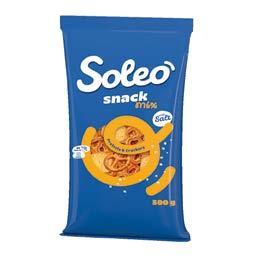
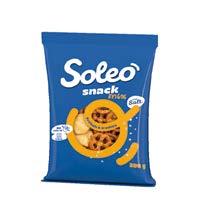

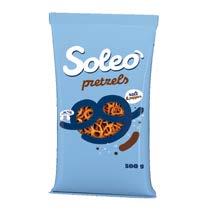





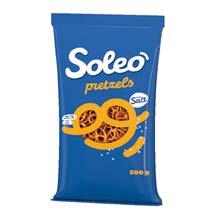
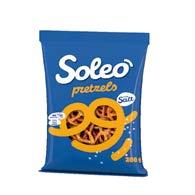
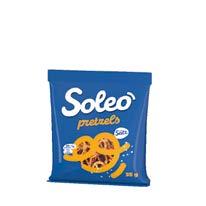


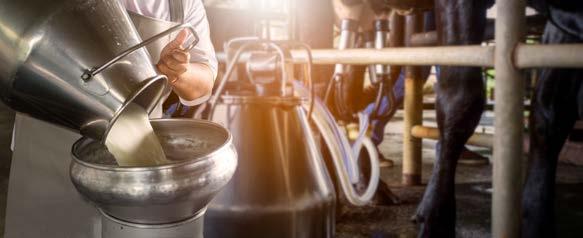
Polish dairy is one of the most internationalised segments of the food industry. Mlekovita, the largest dairy cooperative in the country, sells on 167 markets and exports over 30% of its production. In 2024, export revenues reached PLN 2.6 billion and 2025 brings further strengthening of this position, especially in Asia and the Middle East. The company emphasises the role of Halal and Kosher certification, which are a pass to markets with different legal regulations and religious requirements. Thanks to them, Mlekovita was able to enter, among others, the Persian Gulf countries, where Polish dairy products are becoming increasingly popular.
Another pillar of Polish dairy exports is Mlekpol, which reports sales in over 100 markets worldwide by 2025. Around 30% of the cooperative’s production goes abroad, which includes both mass products - such as powdered milk and maturing cheeses - and consumer brands, with Łaciaty at the forefront. Mlekpol’s strategy is to simultaneous-
ly build the position of a premium brand in Western Europe and to offer large volumes on Asian and African markets, where demand for powdered milk products is growing.
It is the diversification of the product portfolio that allows both cooperatives to reduce the risk of economic fluctuations. In a situation where the price of raw milk in Europe can be subject to large fluctuations, having outlets on several continents provides greater stability of revenues. Furthermore, both Mlekovita and Mlekpol invest in the segment of high added value products - from mozzarella-type cheeses to whey proteins used in sports supplements. This specialisation allows them to better compete with the global giants of the dairy industry, who increasingly see Poland as a serious export player.
Poland’s largest and best-known dairies include the Polmlek Group, Piątnica, Łowicz, Sierpc, Ryki, Spomlek, Krasnystaw, Sertop, or Koło, as well as international companies such as Danone, Zott, Hochland, and Lactalis.
The prospects for Polish dairy in 20252027 appear favourable, although challenging. Global demand for dairy products
will continue to grow, especially in Asian countries and the Middle East, but at the same time expectations for sustainable production and reducing carbon footprint are intensifying. Polish cooperatives pledge to invest in energy-efficient technologies and green logistics to help maintain competitiveness. However, flexibility will remain a key success factor - the ability to combine large volumes with niche product offerings that yield higher margins and open doors to the most demanding markets.
Poland has been one of the world’s leading exporters of chocolate products for years, with exports in this category currently exceeding €2.5 billion a year. There is a stable demand for Polish products in the EU countries, as well as in the UK, which has once again become a major customer after a period of Brexit-related decline. The strengths of Polish producers remain the combination of high quality with competitive pricing and the flexibility to adapt the offer to seasonality and consumer preferences.

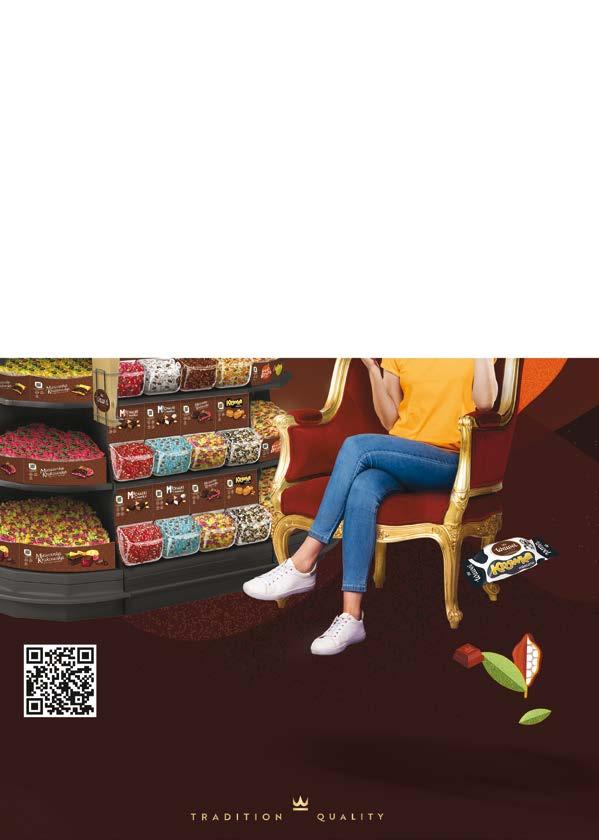

Wedel remains the most recognisable brand abroad, with a presence in almost 50 countries around the world. From Germany and the UK, through the USA and the United Arab Emirates, to Japan and India - the sweets with the characteristic logo of the chocolate boy on a zebra are an example of a Polish brand with global reach. Wedel’s expansion is based both on cooperation with large chains and on building premium segments to compete in gifting or limited edition categories.
Wawel, on the other hand, relies on wide distribution and the consistent strengthening of its position as a family brand, recognisable in Europe, Asia and the Americas. The company today exports to 54 countries on six continents, and in its 2024 financial reports highlighted stable earnings growth despite increasing cost pressures. Wawel is building an advantage by combining everyday products (chocolates, bars, candies) with premium offerings, which allows it to remain competitive across price segments.
In addition to giants such as Wedel and Wawel, other confectionery manufacturers, such as Colian, which has a wide range of chocolate products in its portfolio, combining tradition with modern market trends, are also becoming increasingly important in exports. The most recognisable brands include Goplana, Solidarność, Jutrzenka, Grześki and Jeżyki - offering chocolate bars, pralines, bars and unique sweets with additives. Colian’s products are distinguished by their rich recipes, variety of flavours and high quality of ingredients, thanks to which they appeal to both customers looking for classic chocolate products and modern,
original compositions. The company is constantly developing its portfolio, responding to the expectations of consumers at home and in international markets.
Vobro, a confectionery manufacturer specialising in creating chocolate products of high quality and attractive design, is also a very active participant in the export market. The company offers pralines, boxes
been one of the world’s
of chocolates, filled chocolates, as well as seasonal collections prepared for holidays and special occasions. Particularly popular are product lines such as Choco Crispy or Frutti di Mare, which combine the intense taste of chocolate with a variety of fruit and cream fillings. Thanks to the wide assortment and attention to packaging aesthetics, Vobro products reach both individual
customers and export markets, building a brand recognisable in Poland and abroad.
Terravita, a well-known Polish confectionery manufacturer whose speciality is chocolate products with a rich taste and a variety of forms, has a very strong position both at home and abroad. The company’s portfolio includes classic bars of milk, dark and white chocolate, chocolates with additives, as well as pralines and chocolate figurines. Terravita is also developing its seasonal offer, creating sweets dedicated to holidays and special occasions. Thanks to its wide range of products, high quality ingredients and recognisable brand, Terravita’s products are popular both in Poland and on foreign markets.
Attention should also be paid to companies such as Bogutti, Eurowafel or Gibar. These companies specialise in a flexible approach to their offerings - from impulse products to private labels - and have successfully penetrated the markets of Central and Western Europe and the Middle East. Thanks to them, Poland has become one of the largest confectionery production hubs in the region, and its broad brand portfolio allows it to compete with both global giants and local producers.
Meat and processing - building a position in the EU, looking for premium niches
Poland’s meat industry remains one of the pillars of the country’s food exports - both in terms of volume and value. In 2025, more than 70% of meat and meat processing exports go to EU markets, primarily to Germany, France, the Czech Re -
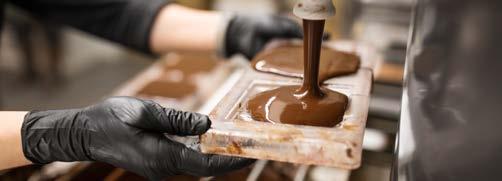

public and Italy. The CSO data confirms that these are the markets responsible for the largest volumes, although margins here are sometimes relatively low due to high competition and the high concentration of distributors.
The largest players are Sokołów S.A., CEDROB FOODS S.A. (Duda brand), Animex and Indykpol. Sokołów - which is part of the Danish Crown group - is developing its offer in the convenience and ready-to-eat products segment, targeting not only the Polish market, but also exports. CEDROB FOODS focuses on poultry, which for years has been the showcase of the Polish meat industry worldwide - Poland remains the largest producer of poultry in the EU, and a large part of this meat reaches foreign markets in fresh, frozen or processed form. Animex is one of the largest meat and cold meat producers in Poland, known for its extensive brand portfolio and wide range of products. The company offers traditional sausages, hams, tenderloins, wieners and pates, combining proven recipes with modern production technologies. Its portfolio includes such recognisable brands as Morliny, Krakus and Berlinki, which have been trusted by consumers for years. Indykpol, on the other hand, specialises in turkey meat, build -
ing a niche but increasingly desirable offer in Western Europe, where consumers are looking for alternatives to red meat.
Premium and speciality products are also growing in importance. Consumers in Western European countries and the UK increasingly expect meat with quality labels - such as ‘bio’, ‘eco’ or ‘origin specific’ - and products tailored to high-protein diets. Polish producers, recognising this trend, are introducing premium lines and investing in new packaging technologies (MAP, skinpack) that allow products to remain fresher for longer and look more attractive at retail.
However, regulatory and certification issues remain an important challenge. In 2025, stricter carbon footprint and animal welfare regulations take effect in the European Union, forcing Polish plants to invest in modernising infrastructure. Polish companies in the meat sector are effectively implementing ESG programmes to not only reduce emissions, but also to build an image as a responsible supplier in line with European consumer trends.
Forecasts for the meat industry indicate that while the volume of exports to the EU will remain stable, the greatest growth potential lies in premium markets - both within and outside the EU, such as the
the largest producer of poultry in the EU.
Middle East and Asia. Poland, thanks to its large production scale and processing flexibility, can develop niches related to high-protein products, convenience and premium meat in the coming years. However, it will be crucial to invest in parallel in refrigerated logistics and marketing, as these will determine the sustainability of the markets to be won.
The dynamic development of the functional beverages segment is one of the most visible trends in Polish food exports. Products in this category respond to the globally growing needs of consumers who are looking for beverages that not only quench their thirst, but also support health, regeneration and an active lifestyle. Poland stands out from the region thanks to companies that have boldly bet on innovation and global distribution partnerships.
The most recognisable example is OSHEE, whose products are already available in dozens of countries on six continents. The brand has consistently built an international position through collaborations with well-known athletes, sporting events and football clubs. This combination of marketing and product functionality makes
The dynamic development of the functional beverages segment is one of the most visible trends in Polish food exports.



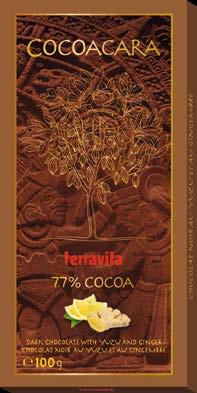

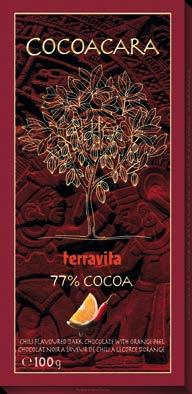
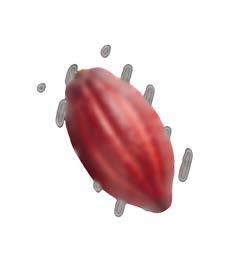


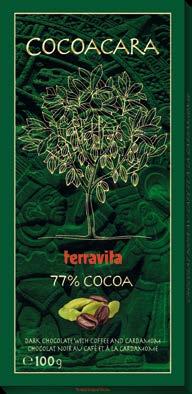



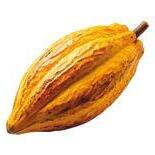






For several decades, we have been one of the largest Polish manufacturers of chocolate and semi-finished confectionery products on the industrial and retail markets. We are a 100 % Polish company. Our headquarters is located in the heart of Greater Poland (Wielkopolska region) – in Poznań.
Our strengths
Terravita is characterised by its openness to new trends and flexibility towards customers needs, even the most original ones. Many years of experience have strengthened our position as a reliable supplier of chocolate products for the largest retail chains. Terravita also specializes in the production of confectionery and ice cream semi-finished products. We cooperate with both, large international corporations and local producers.
International reach
Our products are recognized and delighted by customers all over the world – from North America, through Europe, Africa, Asia to distant New Zealand. They are present in over 30 markets around the world and successfully conquer new markets.



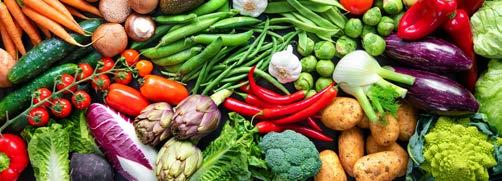
OSHEE associated with isotonic, vitamin and energy drinks with a global reach. The transaction with the Innova Capital fund has further strengthened the expansion opportunities, paving the way for further distribution in Asia and North America.
The other major player in this category is Mokate, a producer of coffees, teas and milk frother, with a presence in over 70 markets. Although Mokate’s business profile is broader, it is the innovations in the instant drinks and ‘on-the-go’ products segment that are building the company’s international recognition. With a strategy combining private label and private brand development, Mokate is able to flexibly adapt to the needs of different markets, from Europe to the Middle East and Asia.
Also of growing importance in exports are products described as “better-for-you” - vitaminised water, drinks without added sugar or plant-based alternatives to milk. Polish producers are noticing that consumers in developed countries expect not only healthy ingredients, but also attractive marketing communications that emphasise health-oriented and ecological values. This is why companies are increasingly introducing vegan, gluten-free and low-calorie lines, which are becoming a standard in Western European or North American markets.
The functional and health-enhancing drinks category is also one of the most challenging export segments. There is a need for rapid innovation, investment in research and development, as well as compliance with labelling and formulation regulations, which vary significantly from country to country. However, companies such as Oshee and Mokate are demonstrat -
ing that Polish producers are able to compete with global giants with unique recipes, attractive packaging and aggressive marketing activities.
The development prospects for this category are extremely promising. Between 2025 and 2027, the global functional beverage market is expected to grow at a rate of 7-9% per year, and better-for-you products will account for an increasing share of Poland’s export basket. This means that companies that invest in innovation and certification today can soon achieve the scale to have a permanent presence in global markets, and Poland will strengthen its reputation as a source of modern, healthy and functional beverages.
Poland has for many years remained one of the most important producers and exporters of fruit in Europe. Apples play a special role, having become a permanent part of the export structure and being a recognisable commodity in EU countries and on
Asian and Middle Eastern markets. In 2024, Poland was the largest exporter of apples in the EU, with customers including Germany, Egypt, Kazakhstan and India. At the same time, exports of blueberries and raspberriesfruits considered premium products, sought after by consumers in highly developed markets - are growing dynamically.
Specialised distributor-exporters who build international sales networks play a key role in organising and maintaining this position. EWA BIS is one of the most important players in this sector - the company is present in more than 50 markets and acts not only as an exporter, but also as a trade intermediary, ensuring continuity of supply and adaptation of products to the quality requirements of the country in question. Thanks to its offices and partners abroad, EWA BIS effectively connects Polish producers with counterparties in Asia, the Middle East or Africa.
The importance of entities such as EWA BIS is also growing because foreign markets are increasingly tightening food safety and certification criteria. Distributor-exporters are taking on the burden of negotiation, logistics and quality control, allowing smaller farms and producer groups to stay ahead in competitive markets. Certifications such as GlobalG.A.P. or BRC are becoming the ticket to sales in Western European retail chains, and professional support from large distributors allows Polish products not only to compete on price but also to meet the highest quality standards.
In the coming years, the export of fresh fruit and vegetables will be challenged by climate change, cost pressures and growing competition from South America or Africa.
By 2027 it will not only become an export standard to have quality certifications, but also transparent carbon footprint reporting.
The Polish sector - based on distributors such as EWA BIS - will have to bet on further diversification of export destinations and building national brands promoting healthy food from Poland. Growth potential lies especially in South-East Asia and the Middle East, where demand for berries, apples or fruit preserves is growing rapidly and Polish exporters already have an established negotiating position.
Development directions up to 2027 - already visible in data and company strategies
Firstly, internationalisation of brands and currency diversification. The dispersion of sales between the EU, UK, North America and MENA markets reduces the risk of exchange rate and cyclical fluctuations. Mlekovita and Mlekpol show that a broad geography - 100-167 markets - provides resilience to local turbulence and allows faster monetisation of new trends (e.g. protein, A2A2, clean label).
Second, certification and compliance. Halal/Kosher requirements and quality standards are becoming the ticket to many countries, and companies that have invested in compliance systems and audits are increasing the ‘bankability’ of export contracts. The example of Mlekovita in MENA markets is representative here.

Thirdly, the premiumisation of confectionery and snacks. Stable increases in the value of chocolate exports with moderate changes in volumes indicate further room for growth in the ‘gifting’, ‘impulse’ and seasonal collections segments - something that Wedel and Wawel have consistently exploited.
Fourth, operational flexibility and nearshoring. CSO and KIG data suggest that non-EU highly developed destinations (UK, US) are growing faster than some EU markets in 2025 - facilitated by road and sea logistics and shortening supply chains to Western Europe. Polish food producers use this as an argument in tenders with regional chains and distributors.
Fifth, investment in green transformation and ESG reporting. Market analyses indicate that by 2027 it will not only become an export standard to have quality certifications, but also to have transparent carbon footprint reporting and implementation of environmental policies. Companies such as Oshee and Colian are already testing new models of environmentally friendly packaging, knowing that in Northern European countries this will be a condition for staying on the shelves.
Sixthly, the growth of the high-protein category and functional products. The increase in demand for protein drinks and
snacks in North America and Southeast Asia is opening up new opportunities for manufacturers who can combine nutritional value with an attractive form of serving. This trend is particularly supported by Oshee, as well as dairy manufacturers who are adapting their portfolios to meet the demands of physically active consumers.
Seventhly, building consumer brands with a Polish pedigree. Data from analyses of the German and UK markets show that consumers are keen on products from Central Europe if they are consistently positioned and supported in marketing. Vobro and Bogutti sweets, Eurowafel wafers or Mokate teas are increasingly competing not only on price, but also on the story of quality and tradition. By 2027, these strategies can be expected to translate into increased loyalty and a sustained presence on shelves in target countries.
How are the indicated companies positioning themselves?
Terravita, Wedel and Wawel are building exports on the recognition of chocolate brands and the ability to quickly introduce novelties to suit local tastes - from impulse formats to gift sets. These companies consistently invest in marketing and tailor their portfolios to local preferences, allowing them


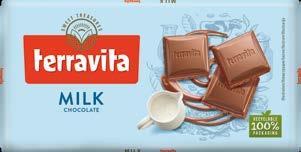

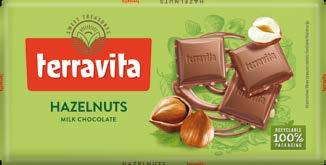




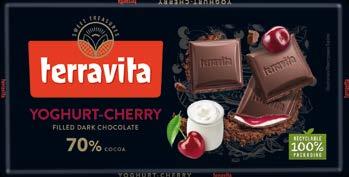
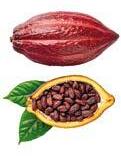





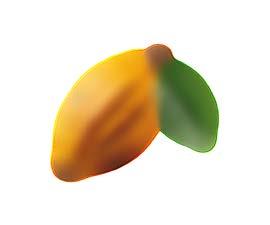









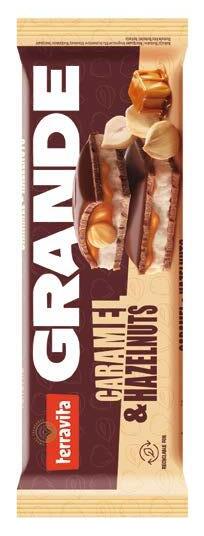

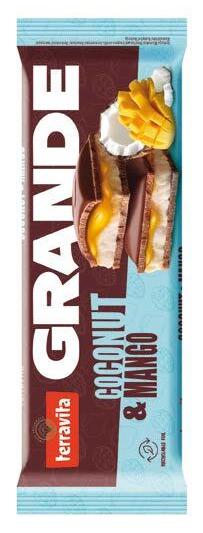

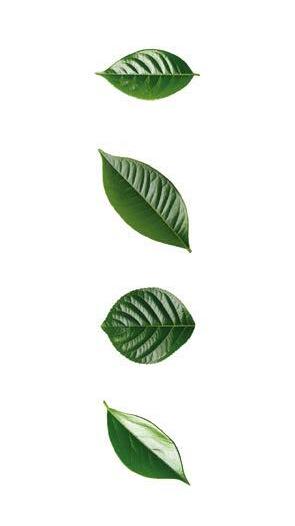


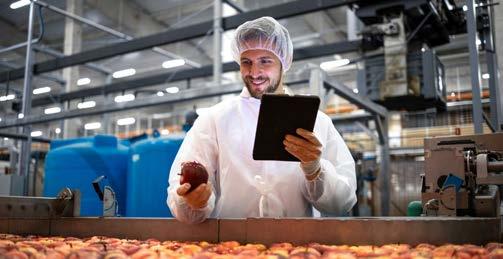
to maintain their leadership positions in European markets and the Polish diaspora.
Colian combines the strength of its confectionery and beverage portfolio with broad international distribution, which naturally supports scaling in Central, Western Europe and beyond. Aksam (the ‘Beskidzkie’ brand), Eurowafel and Bogutti focus on price segmentation of wafers, biscuits and sticks, capturing shelves in various sales channels, both in classic supermarkets and smaller chains. SERTOP, with its melted cheeses and formats that are convenient to transport and display, is entering niches where product shelf life and quality consistency are important.
In meat and preserves, Sokołów S.A., Indykpol and Cedrob Foods S.A. (Duda) remain key suppliers in the EU market. Their competitive advantages stem from their competence in refrigerated logistics, their specialisation in species and their ability to maintain high volumes under price pressure. The ability to react quickly to changes in demand in individual countries allows these companies to grow exports steadily.
In the functional beverages and betterfor-you category, Oshee shows that Polish companies can scale globally based on product innovation, extensive marketing budgets and strategic distribution partnerships. Mokate in hot drinks - coffee, tea, chocolate instant drinks - proves that Pol -
ish brands can compete in the retail channel in foreign markets by offering products tailored to local consumption habits.
Mlekpol and Mlekovita, on the other hand, are consistently positioning themselves as leaders in dairy for export, building on a broad portfolio from butter and cheese to functional and organic products. Expansion into MENA and North American markets and Halal/Kosher certifications allow them to maintain stable growth while introducing product innovations in line with global healthy eating trends.
What does all this mean for the 2025/2026 decision?
‘Made in Poland’ food is already recognisable and competitively priced, but cost advantages alone are no longer enough. The companies that do best in foreign markets combine several key practices - treating certification as a sales advantage, working consistently on brand recognition, quickly adapting recipes and packaging to local requirements, and diversifying their portfolio geographically. In practice, this means that strategic decisions in 2025 and 2026 must take into account both investments in compliance and audits, as well as marketing and product development tailored to specific markets.
Sweets and dairy will remain the engines of Poland’s export value. In this segment, the role of premium brands and innovative
products tailored to local tastes will be key. Meat and processed meat will remain a volume pillar, where logistical and quality advantages determine the ability to maintain stable contracts with chains and distributors. Functional beverages and better-foryou snacks will become a testing ground for product innovations with global potentialtheir introduction allows Polish companies to test the scalability and effectiveness of new solutions in foreign markets.
Figures for 2025 indicate that shortterm growth levers lie in maintaining a strong position in Europe while increasing the share of highly developed markets outside the EU, such as the UK and the US. This is where Polish manufacturers are already competing effectively with speed of delivery, flexibility of logistics chains and the ability to tailor their offering to local consumer expectations.
Strategically, this means that in 2025/2026, companies should focus on several areas: developing a premium and innovative product portfolio, investing in certification and compliance with international standards, geographically diversifying sales and strengthening the strength of brands through marketing tailored to the specifics of each market. The combination of these elements will ensure a stable increase in export value while maintaining competitive advantages in a dynamically changing international environment.



















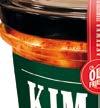












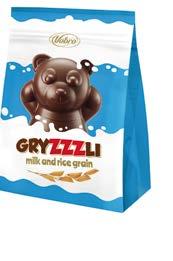
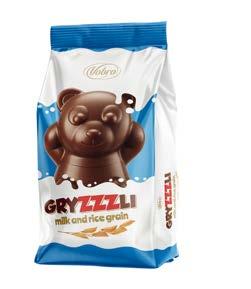


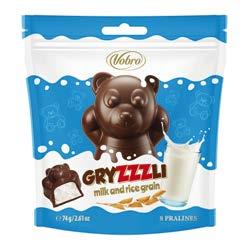

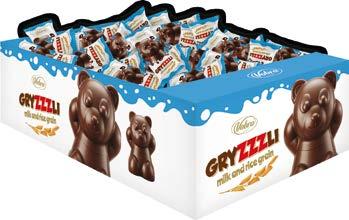

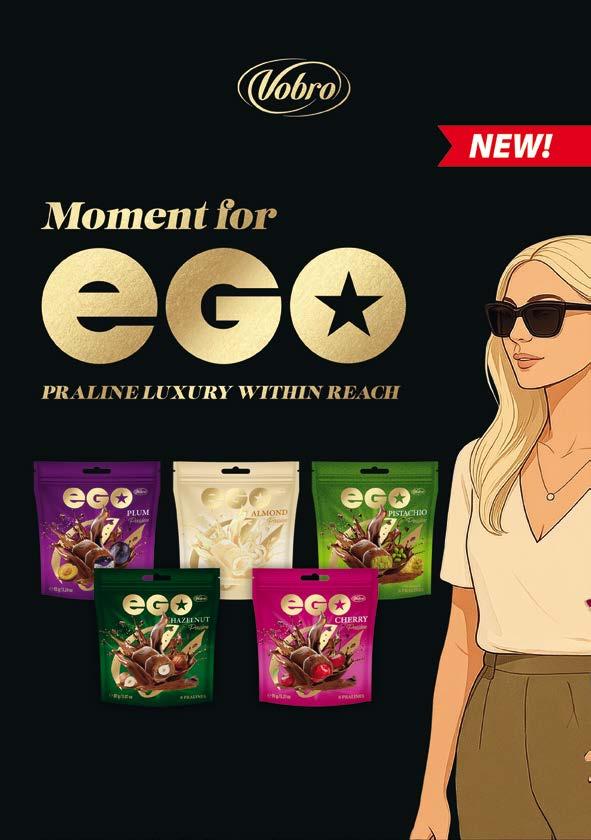
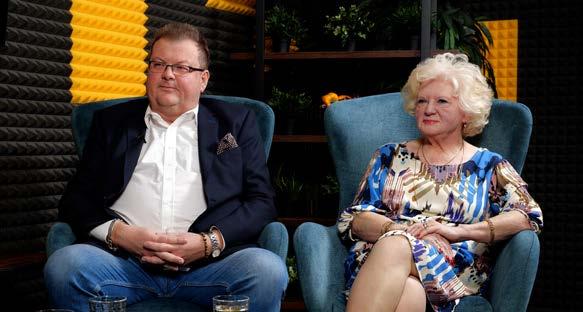
Founded in 1990, PPH Maxpol has grown from its first trade fair in Lviv to organizing international exhibitions across multiple continents. On the occasion of the company’s 35th anniversary, we speak with Małgorzata Ryttel, President of the Management Board, and Wojciech Ryttel, Vice-president of the Management Board, about the company’s history, challenges, and plans for the future.
35 years of operation is a special anniversary. What were the company’s beginnings on the market like and what challenges did it face in the following years? How did its history unfold?
Małgorzata Ryttel: The company was founded in May 1990, so it is now 35 years old. It is a family business with a long tradition, founded by my father. The first trade fair we organized was the Leopold Fair in Lviv. A unique aspect of this venture was the fact that, as a Polish company, we were referring to the tradition of the pre-war Lviv fairs, which took place there before 1939. The idea to revive them after the war came from my father, and we managed to invite ten companies from various industries to the first edition. It was a multi-industry fair attended by representatives of the cosmetics, food, and processing industries, as well as producers of fruit, vegetables, textiles, and car parts. It was this event that marked the beginning of our activity in the field of fair organization.
And then everything happened very quickly – we organized trade fairs in Kiev, Dnipropetrovsk, and Moscow. Individual industries began to develop and, over time, focus on their own specializations. If it was
the food industry, then it was exclusively food; if it was the automotive industry, then it was mainly Moscow, Kiev, and Dnipropetrovsk.
In these cities, we even chartered planes because the number of exhibitors was really large. These were already industrial trade fairs, thanks to which we gradually expanded our activities throughout the East.
The natural next step was to enter Western markets. The first trade fair we organized there was Anuga, which is extremely prestigious and still enjoys a high reputation today. It is a food industry event covering a wide range of industries in this sector. Among other things, sweets, red meat, poultry, and dairy products were presented there – each segment had its own separate exhibition space. In this way, our business covered the entire range of the food industry.
And then new directions emerged: why not Paris? Why not Amsterdam? Why not go even further, for example to Barcelona? And so on and so forth.
In the current situation, I can say that we serve virtually the entire world – including distant Australia, Africa, and the entire Arabian Peninsula.
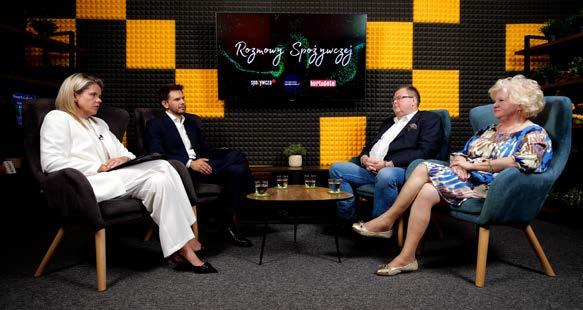
For over three decades, you have organized trade fairs on many continents, supporting Polish entrepreneurs in their international expansion. Which of these international projects were the most important for you and how did they influence the development of the company?
Małgorzata Ryttel: That’s a difficult question, because every trade fair is important – whether it’s in Paris, Cologne, or Amsterdam. But the key event, where the most companies participate and where we can talk about great success, is probably the trade fair in Amsterdam. There, we sell about 1,000 m² for each event.
I can refer to a certain story – we started with just 18 square meters in Amsterdam, and today we organize stands with a total area of nearly 1,000 meters. Last year, we were accompanied by 53 companies, which was a huge undertaking and a challenge at the same time, because we wondered if we would be able to serve such a large number of participants at the next edition.
The trade fair in Paris is also a very largescale event – around 40 companies regularly take part in it. Another important event is the trade fair in Cologne, which is of great significance for the industry.
But, it is not just about numbers, but above all about quality – about presenting Polish companies in the best possible light, finding new contractors, and presenting their offer in the most attractive way. Our role is to help them do this effectively.
Ryttel: First of all, we need to go back to the pre-pandemic times, when all trade fairs functioned in the traditional way. That is, customers came, exhibited, had stands prepared where they presented their products, advertised the best they had to offer and the best Poland had to offer in a given industry.
However, during the pandemic and immediately after it, voices began to emerge that our industry would change, that there would be greater digitalization, the internet, etc. But mainly, a group of people came up with the idea of organizing online trade fairs.
From what I remember, this information circulated on the internet for about a year. These online trade fairs were created quickly... and just as quickly they failed. Because people are used to meeting face to face, talking, and besides – trying, checking, touching. Tangible goods are completely different from those seen on the internet or through a webcam.
We have introduced our own facilities for stand construction: we have a well-equipped carpentry workshop, a paint shop, and designers who prepare stand concepts.
You have a slogan that beautifully describes both your company and supports manufacturers: “Trade fairs are the best direct marketing tool.” It emphasizes the enormous importance of face-toface meetings. Please tell us how the role of trade fairs is changing in the era of digitalization, social media, and e-commerce.
It’s not the same scale at all – not the same scale of experience, not the same scale of business. However, the best business was, is, and – I hope – will continue to be done face to face, i.e., at trade fairs, on site.
You already work with many companies, so you have an excellent insight into their needs. What are the dominant expectations among exhibitors at the moment?
Wojciech Ryttel: At the moment, exhibitors pay particular attention to the so-called exhibition, i.e., the construction of stands. This is our second domain – we have introduced our own facilities for stand construction: we have a well-equipped carpentry workshop, a paint shop, and designers who prepare stand concepts.
Today, exhibitors look at how their goods will be presented at the stand – whether they will be well arranged, nicely displayed, and whether the whole thing will make sense. It cannot just be a sample lying on a table – it must be nicely displayed, well exposed, and properly lit.
We prepare each stand design with the utmost care and present it to exhibitors for approval, asking whether the proposed concept meets their expectations or requires changes. It is becoming increasingly clear that this area is developing dynamically. Today, exhibitors pay attention not only to the product itself, but also to the way it is presented –both to customers visiting the stand and to potential contractors with whom they plan to sign contracts.
Product samples, which must be delivered to the venue, are of key importance – and we also support our partners in this regard. We organize transport, ensure the delivery of materials, and help with their placement at the stand.
Currently, the dominant trend is the expectation of increasingly individualized, customized booths. Standard solutions are being replaced by tailor-made concepts, using modern materials such as MDF, glass, and plexiglass. Large glazing, plexiglass elements, and multimedia screens are increasingly being used. TVs and monitors, on which companies present videos about their activities, are extremely popular today. A well-designed and well-lit stand makes a huge impression –and this is the direction in which the market is currently heading
You have received numerous awards for your excellent organization, for helping Polish companies, and for your contribution to promoting the Polish economy abroad. What makes Polish products and services attractive to foreign partners, especially in the food and industrial sectors?
We think that Polish products are simply wonderful. And we have to start with the fact that probably no one in the world can beat our confectionery industry.
It is such a well-known branch that our confectionery products are highly valued all over the world. It doesn’t matter whether we are in Dubai, Cologne, Paris, or anywhere else – even in the United States. Our brands – whether Wedel, Mieszko, or Jutrzenka – are recognizable and respected. The products are eagerly purchased.
We have been recognized not only by international trade fair organizers, who award us various diplomas and distinctions, but – what is particularly important to us – we have also been awarded the title of Ambassador of Polish Exports in the Food Industry. We received this distinction for our company, for which we are very grateful. It ennobles us and motivates us to become even more involved.
What are the current trends in the trade fair market?
New sectors are currently developing very dynamically, especially in the food industry – I am referring to the organic, eco, and healthy food segments. This is not a completely new topic, but in recent years its development has gained tremendous momentum. More and more companies, including our clients, are asking us at which events they can present their organic products and healthy food.
Trade fair organizers are recognizing this trend and adapting to it –they are expanding existing organic and eco zones, and if they do not have them yet, they are introducing them into their offer so as not to lose potential exhibitors. Companies with modern, attractive organic products quickly find customers because the market is extremely receptive and open to this type of offer. The best confirmation of this can be found at trade fairs such as Anuga or IFE in London, where organic and eco zones are already very well developed and enjoy great interest from both exhibitors and visitors.
The anniversary is a perfect moment for you to look to the future. We already know the history of the company – what are your plans? How do you see further development?
We are definitely looking to the future with optimism. We intend to continue what we are already doing, while adapting to changing technologies that also affect the way exhibitions are organized.
In the near future, we want to place even greater emphasis on environmentally friendly solutions. We plan to analyze whether the materials used to build stands are environmentally friendly, striving towards sustainable exhibition – this is our first priority.
The second area is further international expansion. Following the success of our expansion into the African, Middle Eastern, and Asian markets, we are now seriously considering South America. We are already receiving signals from companies interested in this direction and looking for new markets there. Our goal is to be present not only in Brazil, but also in other countries in the region.
In the coming years, we would like to offer Polish manufacturers the opportunity to participate in trade fairs in those markets – and this is one of the key points of our development strategy.
This is what we wish for you – every success, continued strong growth, and the same attention to every detail and every entrepreneur operating in the FMCG market.












































































































































































An interview with Iwona Kruszyńska, responsible for coordinating exports and cooperation with international partners at
Eurowafel has been the leader in the baked wafer segment in Poland for years. What are the biggest challenges in maintaining this position, especially when you are simultaneously developing new product segments?
The most important thing is to grow in a thoughtful way and not cannibalize our bestsellers. Each new product must have a clearly defined role in the portfolio. Investment decisions are also key—whether to increase production capacity for best-selling products or to allocate CAPEX to new products, and most importantly, at what point. Another challenge is the appropriate allocation of human resources – so that the team can develop innovations without disrupting the core business. Added to this is the introduction of a new brand and the fact that we operate in a category where competition is extremely strong.
Which Eurowafel products are currently the most successful on foreign markets?
The core of our business is still the Polish market, where we are the undisputed leader in baked wafers. At the same time, starting this year, we are focusing even more on exports – which is also the reason why I joined the team. Expanded wafers, both in standard and mini formats, are performing best on international markets. We are also seeing a very good reception for our line of non-fried potato and lentil chips, which respond to the trend for healthier snacks.
Are there any differences between the expectations of Polish and foreign consumers?
They are significant, which is why we are consciously adapting our portfolio in both the wafer segment and the MOONSY line to suit the preferences of individual markets. Firstly, there is the flavor profile – in some countries, milder flavors are preferred, while in others, more distinctive flavors are preferred. We also modify recipes and adjust weights and packaging formats, e.g., single pack vs. multipack, to meet local expectations. Thanks to our experience and flexibility, we are able to quickly translate consumer insights into store shelf offerings.
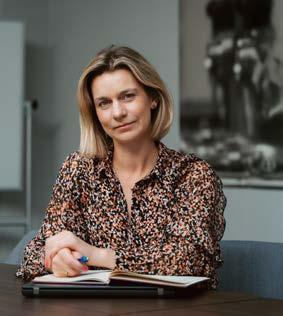
Exporting is not only about sales, but also logistics and operational challenges. How do you deal with challenges in these areas?
For us, these are not so much difficulties as simply additional requirements that need to be addressed efficiently. We deal with fluctuations in transport costs, so we operate on the basis of a mix of contracts and proven logistics partners. We optimize palletization to market standards. On the product side, thanks to our own graphic designer and R&D department, we efficiently prepare layout and recipe variants for different markets, as well as customized packaging weights. We ensure that our packaging complies with regulations (required claims, recycling pictograms) for individual markets. A major challenge is the need to use multilingual labels on limited packaging space – we use late-stage customization, printing multilingual elements and variable data during production. Where necessary, we take into account additional certifications (kosher).
What are the strategic development plans for Eurowafel and the MOONSY brand in the coming years?
Our main goal is to strongly introduce the MOONSY line to export markets. It is an innovative line of non-fried chips, which has won the Perły Rynku (Pearls of the Market) award for the second time in a row. For us, this confirms that we are on the right track –customers want alternatives to traditional potato chips. At the same time, we are developing Eurowafel’s presence in new markets, showing that we are not only a leader, but also an innovative and efficient partner in implementation.
After the first trade fair presentations, we have seen a very good reception of our products, which is why we are expanding our portfolio with new flavors and adapting them to the expectations of consumers in a given country. Our R&D, marketing, and graphics departments give us a real advantage—we can quickly create recipes, prepare product mock-ups, and develop consistent promotional materials, which is a huge asset in international cooperation.





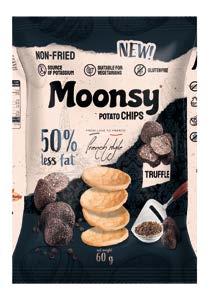
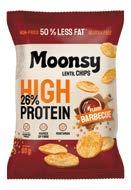


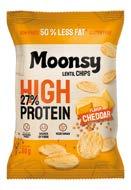



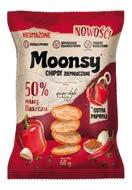

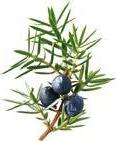



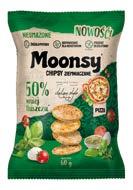

– says Piotr Wieloch, Member of the
Management Board, Director of Marketing and Exports at Partner Center. Today we take a closer look at Partner Center, one of Poland’s leading wine and spirits distributors.
Partner Center has been operating in the alcohol import and distribution market for many years, dealing in both wines and spirits. What were the key moments in the company’s development and what is its current position on the domestic and international markets?
Partner Center has been operating on the Polish market for nearly 35 years. The company’s beginnings, in the 1990s, were marked by the import of French wines and active sales development in the HoReCa segment. Over the years, the company has established a strong position in this market segment, becoming one of the leading importers of wines and spirits from around the world.
Ten years ago, another important moment came - our development strategy also took a new direction: off-trade. Today, Partner Center is a “comprehensive supplier” – we work with the biggest players in the ontrade and off-trade markets. We import and sell over 7,000,000 bottles annually and work with over 100 suppliers from around the world. 2025 is another milestone year for Partner Center. Our strategy is strongly focused on export activities. We are active in this field and are attracting an increasing number of foreign companies interested in our brands. Our craft vodka Czarna Olcha is number one when it comes
to exports. This is hardly surprising, as it is the most sought-after category of alcohol on foreign markets. And Polish vodka still enjoys a good reputation.
So, what conditions must vodka meet to attract the interest of demanding consumers on foreign markets?
– As a nation, we are famous for producing excellent quality vodka, and this opinion is still present on foreign markets. It is worth mentioning here that Poland is one of the leading exporters of spirits in the world. According to KOWR data, in 2024, products worth EUR 560.2 million were sold on foreign markets, almost 8% more than in the previous year.
The simplest criterion is the fact that it is produced and bottled in Poland. Another criterion is the quality of the vodka, and here we need to divide this “piece of the pie” into two categories: mass production and craft production. We focus on the latter – high-quality production.
This is in line with the premiumization trend observed on the market – it is not quantity but quality that matters. Our craft vodka, Czarna Olcha, is produced in Podlasie from the best raw materials
–
spirit made from Polish rye. It is aged for a minimum of two to three weeks, and no more than 2,500 bottles are bottled each day. This almost boutique production is what sets our product apart. The appearance of the bottle itself is also an important aspect. We attach great importance to this. All this means that our vodka is not a cheap product, but in return, the customer receives exceptional quality in an exceptional setting. I would also like to add that Czarna Olcha has won many prestigious industry awards.
Does the trend towards craftsmanship and artisanship still play an important role in the alcohol industry? How important are authenticity, locality, and product history in the process of building an alcohol brand today? How important is storytelling?
For customers, and there are more and more of them, who value quality products, authenticity, locality, and history are very important. Conscious consumers are also willing to pay more for such products.
Good storytelling is an increasingly appreciated currency. You can build a lot on it – relationships, trust, but, what is important in this case, also sales. This is, of course, a much smaller piece of the market, but one that gives much more “commercial” satisfaction.
It is worth mentioning that storytelling is particularly important for sales in the HoReCa channel. Guiding the customer using the history of wine during tasting or getting them interested in the product, and as a result selling not a glass of wine, but a whole bottle, are key areas of knowledge and activity in this segment.
Poles are traveling more and more often, returning from trips abroad with a solid knowledge of wine – we have simply become more aware consumers in this area.
The percentage of people visiting restaurants and knowing the basics of wine is much higher today than it was a few years ago. This translates into a search for specific grape varieties and wine regions, as well as curiosity about the history and storytelling of wine.
California, the Old World of Wine, Africa, the cradle of winemaking in Georgia and Armenia, to the corners of Australia and New Zealand.
From the point of view of our off-trade offer, our main activities focus on the development of the Italian brand Casa Pecunia, the Georgian Kazbek Peak, the craft vodka Czarna Olcha, and a new addition to our offer – the Dolcetino brand.
In recent months, we have seen a decline in sales of vodka and beer, but also wine. What do you think is the reason for these changes? Are they the result of changing consumer habits, economic factors, or perhaps legislative measures?
There are indeed declines, everyone can see that. In terms of volume, the market has been shrinking by several percent for years. That is why the export of strong alcohols is a great opportunity for Polish producers.
Personally, I ask an open question: is this already a trend, or is it still just a fad influenced by influencers?
Today, new generations are indeed entering the adult consumer market, shaping completely different purchasing expectations. This mix of older and younger consumers means that the offer must be very diverse.
We work with the biggest players in the on-trade and off-trade markets. We import and sell over 7,000,000 bottles annually and work with over 100 suppliers from around the world.
The off-trade market, on the other hand, represents a completely different consumer approach. Of course, conscious customers know exactly what brand, country, appellation, and grape variety they are looking for in the store. But the other group of customers, the less conscious ones, often make impulsive choices, focusing on the appearance of the bottle and label, narrowing their choice down to the categories of white/red/sparkling and sweet/dry.
If we conducted a survey on how many people read wine labels when choosing from the store shelf, I think it would be a small percentage of consumers.
What product categories is the company currently focusing on the most and what is the structure of its offer?
The priority is to develop the offer of well-known and reputable wineries from around the world for customers in the HoReCa segment. Our catalog is quite a journey – from South America, through
Over the last two years, we have seen a trend–including the NoLo trend – towards lighter alcoholic products, full of flavors and colors. Consumers who choose such products expect a much lighter flavor profile – I would call it “easy-drinking.” We must be ready for this. But let’s not kid ourselves – there are still consumers who prefer classic, strong spirits or wines.
What are your main export destinations and which foreign markets have the greatest potential today for the development of sales of wines, vodkas, and other alcoholic beverages from the Partner Center’s range?
We are open to all possible directions. We have been exploring this area for a long time and see great potential in typical export destinations for Polish vodka, such as Western European countries and the United States. However, we are surprised by the openness and interest in our offer from very exotic destinations, such as Bali.
What challenges does a company operating at the intersection of alcohol import, distribution, and export face today? Are these mainly logistical, cost, or legislative issues, or perhaps also cultural ones?
From the point of view of our offer, we operate in accordance with our brand development strategy. We focus on our main import destinations and actively develop our products. In terms of organization, like every other company in this sector, we emphasize the digitization and automation of our activities. We are committed to simplifying internal and external processes as much as possible and to using AI technology in our daily work. However, relationships, quality relationships, remain our greatest value.
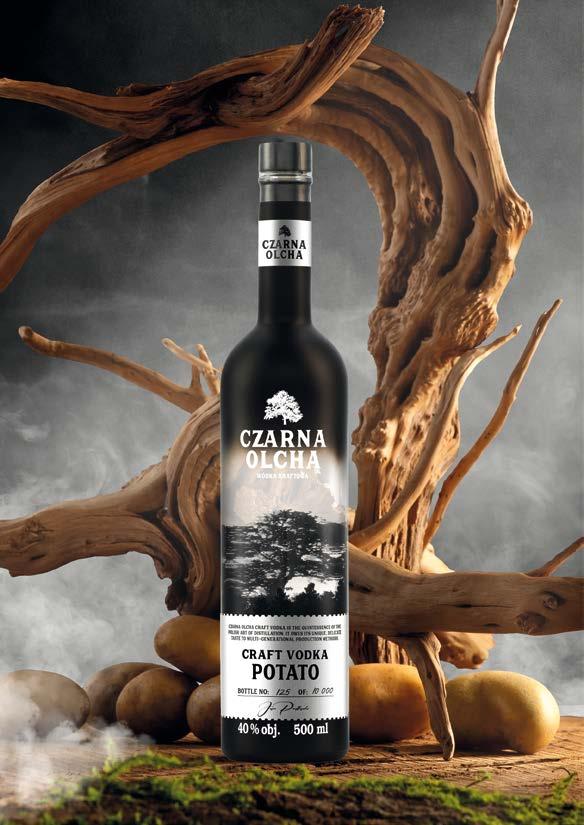
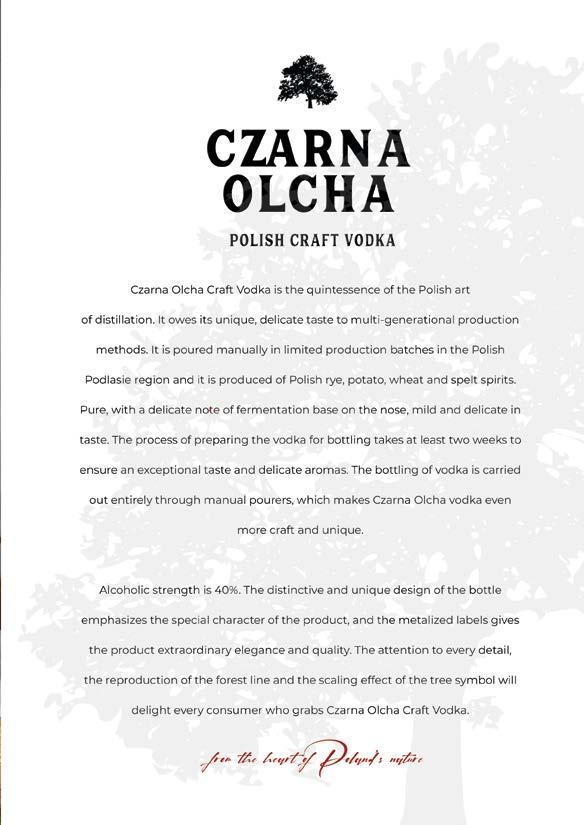

With almost 40 years of family tradition, Fanex has become a trusted partner in the HoReCa sector in Poland and abroad. Known for its distinctive sauces, condiments, and openness to international cooperation, the company is focusing on innovation, sustainability, and exports to strengthen its position in Europe and expand into Asia and North America.
Advertising material commissioned by Fanex

You are a family business with almost 40 years of tradition, and your products have a strong position, especially in the HoReCa channel. What are the biggest challenges facing the brand in order to not only maintain this position, but also strengthen it?
Our priority is to respond quickly and effectively to the rapidly changing trends in the HoReCa industry. Customer expectations change from season to season, and we have to be ready for that. That is why we consistently focus on innovation, the highest quality, and partnership-based relationships with our customers. We see that this approach allows us to grow together with the market. Proactivity is also very important – we do not wait to see what the future will bring, but try to set the direction ourselves. This places high demands on our experienced team, but it also gives us great satisfaction when we see the results of these efforts.
You are a producer of savory and sweet sauces and various types of condiments. Which of these products are the most popular on foreign markets?
Our Premium ketchups, garlic sauce, mayonnaises, as well as distinctive BBQ and sweet and spicy sauces are the most popular on foreign markets. They meet the needs of demanding gastronomic customers who are looking for intense, distinctive flavors. Our Asian sauces, developed in cooperation with one of the largest catering companies in Japan, are also highly regarded. This is an example of how openness to international partnerships and the exchange of experiences can create a range of products that work well in different cuisines around the world.
Consumers are placing increasing importance on sustainable development and are also becoming more aware of the impact of nutrition on health. How is Fanex responding to changing consumer expectations regarding food products?
More and more of our products have a so-called clean label – no preservatives, less sugar and salt. We are also taking steps to optimize water consumption – we have our own pre-treatment plant, we use full osmosis and water recycling systems. When it comes to energy,
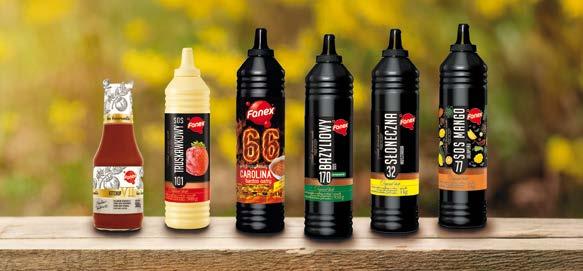
we purchase some of it from renewable energy packages from specialized suppliers.
Have you noticed any differences between the expectations of Polish and foreign consumers? Are the trends on the Polish and foreign markets similar or different?
Trends related to health consciousness, limiting artificial additives, and searching for new flavors are similar around the world, but differences emerge in the details—primarily in local taste preferences. In some countries, there is a demand for milder flavors, while in others, spicy and aromatic products are more popular. That is why we always adapt our recipes to the specific characteristics of the market. At the same time, in many cases, we are able to transfer interesting ideas from abroad to Poland, modifying them to suit local tastes.
Our Premium ketchups, garlic sauce, mayonnaises, and distinctive BBQ and sweet & spicy sauces meet the expectations of demanding gastronomic customers looking for bold, intense flavors.
In which countries are Fanex products most popular? Are you planning to take steps to increase exports to other countries?
When it comes to exports, we have so far focused mainly on European markets, and our products are available in Spain, Hungary, the Czech Republic, Romania, and Denmark, among others. These are markets where our brand is already well recognized and enjoys a high level of trust. In the coming years, we want to strengthen our position there, while developing sales in other European countries. We are also looking more and more boldly towards Asia and North America.
What makes Fanex products stand out and what is behind their great success?
The secret of our success lies in the combination of three elements: distinctive taste, consistent quality, and flexibility in adapting to customer needs. Every product that enters our range is the result of the consistent implementation of a strategy rooted in market re-

alities. We continuously invest in our team because we know that it is people—their knowledge, passion, and commitment—that are the foundation of our position. Equally important is our business culture, based on mutual respect and long-term cooperation.
You use modern technologies to produce your sauces and spices. Are you planning to invest even more in this area?
Technology is an integral part of our work, even if in some areas the processes still require manual operation. Due to the complexity of the production process, specialists are needed at every stage, but where possible, we invest in automation and solutions that increase efficiency.
How important is participation in international trade fairs for Fanex?
It is an opportunity to meet partners from around the world, present new products, and better understand market expectations. Trade fairs are a “window to the world” for us—it is often there that conversations begin, which later turn into long-term collaborations. In addition, attending such events allows us to draw inspiration and observe the direction in which the industry is developing globally.
What are your company’s most important strategic and development goals for the coming years, both on the domestic and international markets?
We want to consistently strengthen our position in the HoReCa channel and develop export sales in new markets. An important element of our strategy is to reach younger consumers in the catering sector – those who are active, open to new flavors, and conscious of what they choose. We believe that combining tradition with a modern approach will allow us to effectively achieve these goals.
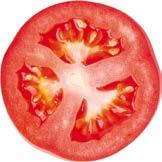
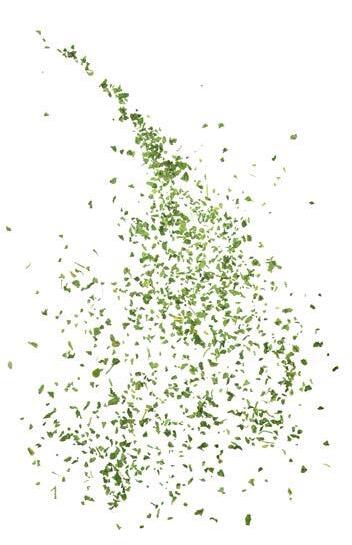
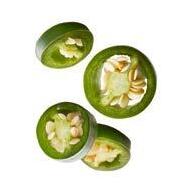
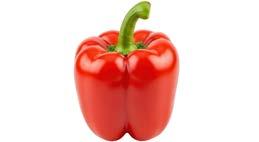

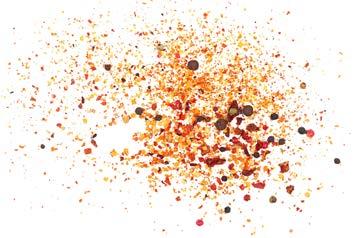
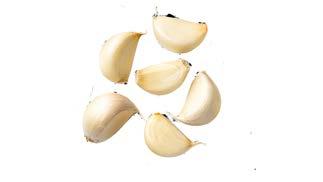

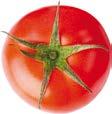

Fanex is a family-owned Polish company with nearly 40 years of experience in the HoReCa market.
Combining culinary expertise with modern technology, the company has become a trusted partner for gastronomy operators in Poland and abroad. Fanex offers around 600 products, from classic sauces to trend-inspired recipes, and develops private labels such as Tres Amigos.
The company also distributes premium Italian Greci specialties and Japanese Yamasa sauces produced in Radonice. Continuous investment in infrastructure, including a logistics network of over 11,500 pallet spaces, supports Fanex’s dynamic growth and international expansion, with products reaching markets across Europe, Scandinavia, the UK, the USA and beyond.
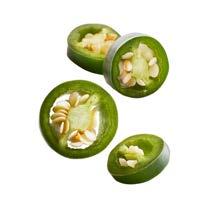
The company remains committed to quality, reliability, and building long-term partnerships with its customers.


Paulina Małachowska, Brand Manager, Adalbert’s Tea
Where does the unique flavour and character of Adalbert’s Tea come from?
Adalbert’s Tea teas begin their journey on Sri Lankan plantations, where the climate, altitude and fertile soil of Ceylon give the leaves their unique character. The leaves of our tea are hand-picked - with the utmost precision, as only the young shoots and top leaves have the fullness of flavour. What kind of infusion you get in your cup depends on the quality of the leaf. The most prized are those with the designation OP1, i.e. the upper leaves of the tea bush. Long, whole, they give a clear and elegant flavour - light yet deep. BOPF is the designation of cut leaves, whose aroma is stronger and more intense in colour. This difference affects the consumer experience and the form of the tea. OP1 is a fine leaf tea, while BOPF is a dried tea ideal for packaging in sachets.
The next stage of production is oxidation, a process that defines the character of the tea. Black tea leaves undergo full oxidation and gain strength. Green tea undergoes minimal oxidation, so it retains its freshness, vegetal character and natural colour. White tea, on the other hand, hardly undergoes this process - its delicate, subtle flavour is due to the simplest processing, which involves drying. It is actually dried leaves barely bathed in sunlight. After being packaged in golden elephant tins, the teas make their way by sea to Europe. Here, logistics can be a challenge - weather conditions or global supply chain disruptions sometimes cross our plans. Storms on the ocean? Normal. Pirates? It happens. It’s a reminder that tea, as much as ever, still trav-
We talk to Paulina Małachowska, Brand Manager of Adalbert’s Tea, about the leaf’s journey from Sri Lankan plantations to cups in Poland, trends and changing consumer habits, as well as the brand’s challenges and development plans.
els halfway around the adventurous world to find its way into a cup in Poland.
What trends are shaping the tea market today?
We are happy to see that the tea market in Poland and around the world is undergoing a renaissance. Although black tea in sachets is still the most popular, consumers are becoming more aware and looking for products of the highest quality, new flavours and interesting ideas for their daily rituals. This is why the premium leaf tea segment is growing so rapidly.
At Adalbert’s, we respond to these needs and try to stay ahead of the trends. A good example is our Earl Grey with cardamom - a proposition that at first seemed daring is now one of our bestsellers. This proves that the Polish consumer is open to less obvious flavour combinations when quality and authenticity are behind them. And speaking of trends - 2025 is still the time of matcha in Poland. It is in ice cream, in cakes, in smoothies, even in dry dishes. Everyone loves its green colour and “superfood vibe”, but few people remember that matcha is simply tea made from Camellia sinensis. This shows that tea has the amazing ability to enter new culinary worlds. For us, it is an inspiration to create new products and a way to attract younger consumers.
What are the most important sales channels for Adalbert’s Tea today?
In Poland, the modern channel and discount chains play a key role. It is through them that we can reach a very wide range of consumers and build mass availability. We take care of the presence of our regular items, and at the same time we like to surprise consumers with seasonal actions. What do we offer in winter?
Definitely less green tea, but more orange, clove and cinnamon. Because in winter, tea has to warm, smell and wrap you up... that’s why our Christmas portfolio is so popular. We develop e-commerce in parallel, treating it as an important source of knowledge about consumer preferences. The online shop allows us to test new products, gather quick feedback and offer the broadest product portfolio. It is a space where we build relationships with our most engaged customers and listen to their feedback. And in the process, we really learn a lot! In overseas markets, the HoReCa sector is becoming increasingly important. We see a growing demand from hotels and restaurants for premium teas that can become an important part of the guest experience and match the quality of wine or coffee. And this is a space where we feel there is huge potential.
What development goals does Adalbert’s Tea have in mind?
Our priority remains to maintain the highest quality products and to consistently expand our range. We will never take shortcuts, because premium tea is a promise that cannot be broken. Secondly - we are constantly developing new flavours and collections that surprise. We love to play with seasonality - tea in beautiful packaging becomes a gift, a ritual, an experience. Communicatively, education is important to us. We want to support the growth of the leaf tea category, showing that brewing tea does not have to be difficult, and that the ritual itself brings peace and pleasure to everyday life. And that coveted moment for yourself.... And finally, HoReCa. We see Adalbert’s wherever people meet - in restaurants, hotels, family dinners and holiday trips. Tea knows no boundaries - it accompanies you at home, on the road, at work. And it is this versatility that makes our brand have a truly beautiful future.
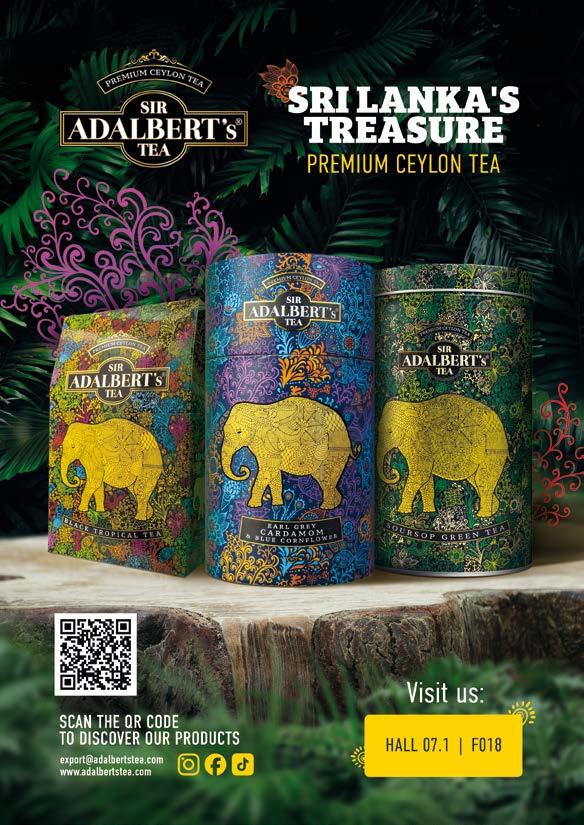
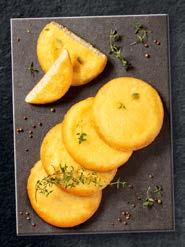
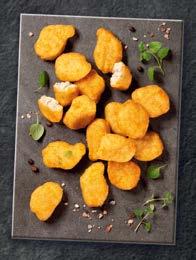



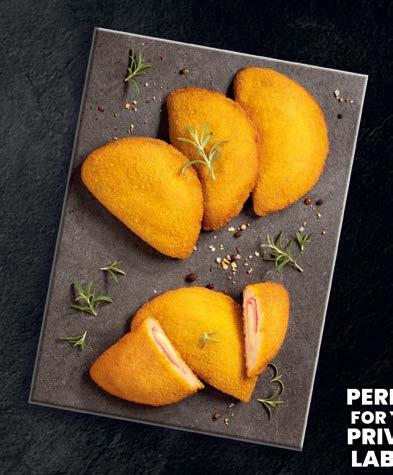
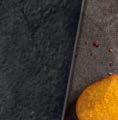
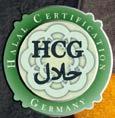

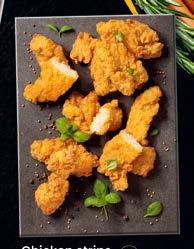
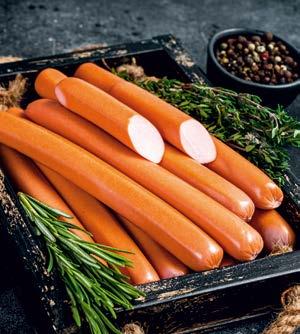

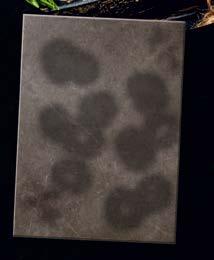
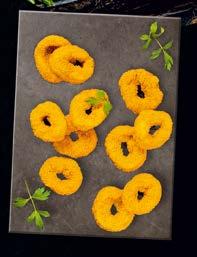
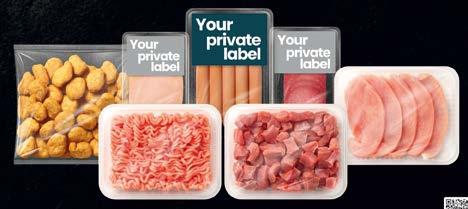

Dariusz Goszczyński, President of the National Poultry Council – Chamber of Commerce
Poland is the largest poultry producer in the European Union and the world’s thirdlargest exporter, with over 2 million tons of poultry meat shipped abroad in 2024. In this interview Dariusz Goszczyński, President of the National Poultry Council –Chamber of Commerce, discusses the competitive advantages of Polish poultry, key export markets and how the industry addresses challenges.
Is Polish poultry very popular on foreign markets? What are the main competitive advantages of our poultry in the eyes of importers and consumers outside the country? Which foreign markets are key for Polish poultry today?
Polish poultry is enjoying growing recognition on foreign markets. Data for 2024 shows that Poland produced 3.653 million tons of poultry meat, of which over 2 million tons were exported. We are the undisputed leader in poultry production in the European Union and the third largest poultry exporter in the world.
The main competitive advantages of Polish poultry are modern technologies, high food safety standards, and the experience of producers and processors. The Polish poultry industry is one of the most modern sectors in the world, and our plants meet strict EU standards for food safety, animal welfare, and environmental protection. Thanks to these standards, Polish poultry enjoys a high level of trust among consumers around the world who are looking for high-quality products. In addition, Polish poultry is competitively priced, offering high quality compared to poultry from outside the EU, whose producers often do not have to comply with such stringent standards. As consumers around the world become more aware of the origin and quality of food, preferences for products from countries that adhere to high standards are becoming increasingly apparent.
In 2024, the value of Polish poultry exports reached nearly PLN 24 billion, of which 31.18% went to markets outside the Europe-
an Union. The key market for Polish poultry remains primarily the countries of the European Union, which account for approximately 68% of our production. However, growing interest in Polish poultry is also noticeable in non-EU markets, especially in Asia and Africa.
The Polish poultry industry is actively seeking access to new markets, including North America, which would be a significant step in the further development of exports.
What are the challenges associated with exporting poultry outside the European Union?
Exporting poultry outside the European Union involves a number of challenges that are crucial to the competitiveness of the Polish sector. First and foremost, Polish poultry must meet extremely strict EU standards for food safety, animal welfare, and environmental protection. Unlike producers outside the EU, who do not have to comply with such stringent regulations, our industry faces difficulties in maintaining price competitiveness. Price is always of great importance in foreign markets.
But we believe that consumers around the world increasingly appreciate the attention to quality, safety, and animal welfare that sets our poultry apart from the competition.
Another challenge is the need to adapt our offer to the diverse requirements of different markets. Individual regions, such as Asia, the Middle East, and Africa, differ in terms of certification standards,
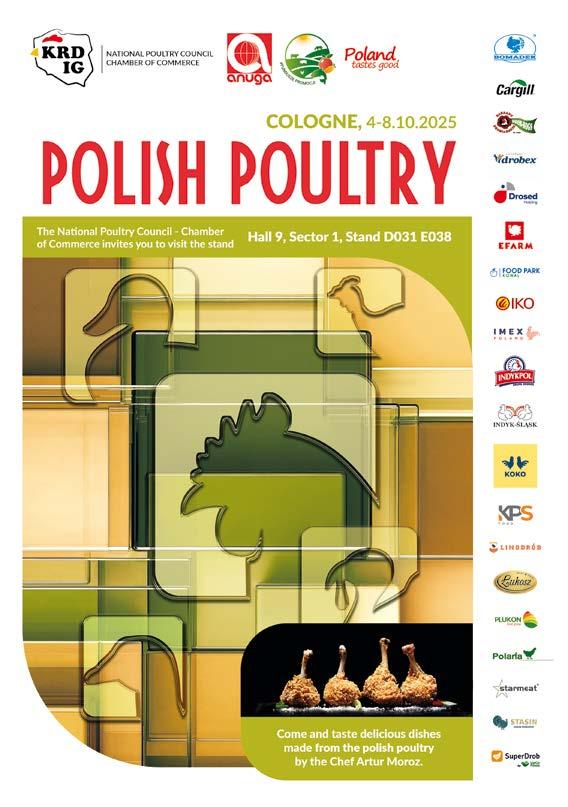
consumer preferences, and quality requirements, which requires Polish producers to be flexible and adapt their offerings, and also involves additional costs and logistical challenges.
Changes in trade policy, such as the Mercosur agreement or the liberalization of imports from Ukraine, introduce additional barriers that make it difficult for Polish producers to gain access to new markets or remain competitive in existing ones. The proposed changes may lead to market distortions, with non-EU poultry meat, produced to lower standards, potentially displacing Polish poultry. Changes in trade policy and differences in sanitary and quality regulations pose a serious threat to the future of Polish poultry exports.
How is the industry coping with animal welfare and sustainable production requirements?
The Polish poultry industry is focusing on innovation and investment in sustainable development to meet animal welfare and environmental protection requirements. Examples of such activities include investments in modern technologies, such as the use of photovoltaics to produce energy in poultry plants, which contributes to reducing energy consumption from the grid and lowering CO₂ emissions. Polish producers also use technologies that optimize water and energy consumption, such as water recycling systems and intelligent energy management systems, which contribute to the sustainable development of the entire industry. In addition, they implement high biosecurity standards aimed at minimizing the risk of disease spread. Out of concern for animal welfare, Polish farmers comply with some of the world’s strictest regulations on farming conditions, ensuring adequate space, diet, and veterinary care in accordance with EU requirements.
In view of the growing animal welfare requirements and regulations resulting from the Green Deal, the industry is actively participating in consultations with EU institutions, proposing solutions based on practical knowledge. It is essential that actions are based on the three pillars of sustainable development: environmental, social, and economic. Only then will it be possible to achieve a balance between environmental protection, animal welfare, and production efficiency –which is the foundation for the sector’s long-term success.
What consumer trends are you observing in the domestic and foreign markets when it comes to poultry meat?
Both in the domestic and foreign markets, we are seeing growing interest in poultry products manufactured in accordance with high standards of sustainable development, as well as a preference for poultry meat with a documented origin. Consumers are increasingly paying attention to quality, preferring meat from farms that care about animal welfare and the environment, and are also choosing certified products that confirm compliance with high production standards.
On foreign markets, especially in Asia, there is growing demand for various poultry parts that are an integral part of local cuisine, such as wings, legs, feet, and liver. In the European Union, where chicken breasts dominate consumption, there is a growing trend towards poultry products that are easy to prepare, as well as those with lower fat content, which are perceived as a healthier alternative. Consumers also prefer ready-to-eat or semi-finished products that meet the needs of quick, healthy cooking.
The Polish poultry industry is also adapting its offer to specific market and cultural requirements, ensuring that production complies with various standards. Plants that obtain various certificates confirm that their products meet market requirements. An example of such a certificate is halal, which ensures that products comply with Islamic law, enabling the export of poultry meat to Arab countries, Malaysia, and Indonesia, as well as kosher certificates, which enable exports to Israel and Jewish communities around the world. Such activities, supported by advanced quality and safety control systems, allow Polish producers to compete effectively in the global poultry market and adapt to changing consumer preferences in different regions of the world.
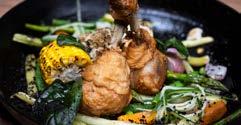
What are KRD-IG’s priorities for the coming months or years?
KRD-IG focuses on several key priorities aimed at further developing and protecting the Polish poultry industry. We will continue to fight hard to maintain the competitiveness of the Polish sector on the European and global markets, in particular by counteracting the liberalization of trade with countries with lower production standards, as in the case of the agreements with Mercosur and Ukraine. In international negotiations, KRD-IG focuses on protecting the interests of Polish producers, emphasizing equal competition conditions and striving to maintain high production standards in the European Union.
At the same time, we will actively participate in discussions on legislative changes concerning animal welfare. We want the regulations to be not only ambitious, but also realistic and based on facts and practical knowledge. Another key priority is to promote the competitiveness of the Polish poultry industry, both on the domestic market and in exports. We want to emphasize the high quality, safety, and standards of Polish poultry meat, including the measures taken by our producers in the area of animal welfare and reducing environmental impact.
In the face of growing misinformation in the media and the activities of non-governmental organizations, which often spread false information and seek to introduce unjustified restrictions, KRD-IG constantly counteracts fake news and promotes fact-based knowledge – defending the interests of the poultry sector. An important focus of our activities will be to further develop dialogue with consumers and the media – building trust in the industry, debunking myths and presenting reliable information about poultry production in Poland.
In addition, we will support the development of sustainable poultry production, with a particular focus on raising biosecurity standards and minimizing the risk of spreading infectious diseases such as avian influenza. These activities are crucial to ensuring production safety and maintaining the high quality of Polish poultry meat, both on the domestic and international markets.
For nearly 60 years, Wielkopolski Indyk has grown from a local family venture into one of Poland’s leading turkey producers. Marek Osuchowski, Director of Trade and Marketing, shares how tradition, quality, and innovation drive the brand’s international success.
What are the origins of the Wielkopolski Indyk brand, and how has the company developed over the years?
Our history is an example of how a local, family initiative can grow into an internationally operating company. It’s been almost 60 years of tradition and experience in our native region of Wielkopolska (Greater Poland), an area with strong agricultural traditions, where quality and reliability are natural values. For decades, we’ve focused on turkey – a type of meat that deserved more than a marginal place in consumers’ diets. Over time, we invested in our own slaughterhouse, processing plant, logistics, and comprehensive technological infrastructure. Today, we are one of the largest Polish producers of turkey meat – a modern company with a family spirit, still run with the same passion.
Wielkopolski Indyk is known for producing top-quality turkey meat and cold cuts. How do you ensure quality at every stage of production – from raw materials to finished products?
For us, quality is not an add-on – it is the foundation. The entire “farmto-table” production chain – from crops, feed production, and turkey farming, through slaughter and cutting, processing, to packaging – is in our hands, which allows us to maintain meticulous control. We work daily with a team of technologists, quality analysts, and food safety experts. We use modern quality-monitoring systems at every production stage. But the most important asset is our team – they ensure that every product leaving our facility meets not only industry standards, but also customer expectations.
What does your export offer look like? Which products reach customers outside Poland?
Our export offer includes both fresh products and a range of processed goods: dry-aged, steamed, sliced cold cuts, sausages, sous-vide prepared meats, frozen products (IQF), and convenience items (breaded). We also create tailor-made solutions – Halal-certified products and items dedicated to gastronomy and retail chains (private label).

In which foreign markets are Wielkopolski Indyk products currently available? Where are they most popular?
Our products reach several dozen countries. We are present in Germany, France, Belgium, the UK, among others. We are most popular in markets where quality, transparency, and food safety are essential. Cooperation with Europe’s largest retail chains means meeting the highest quality standards. Export customers appreciate our uncompromising approach to quality, our flexibility, and our willingness to collaborate in a partnership model.
Are you planning to expand exports to new countries or regions? If so, which directions are most promising for the company?
Yes, one of our key development goals is expansion into markets seeking Halal-certified products. Our specialization in producing items that meet strict Halal standards (our plant is completely free from any trace of pork meat) fits perfectly with the needs of customers for whom religious, quality, and certification issues are of fundamental importance. We view these countries as highly promising – both due to the dynamic development of the food sector and the growing demand for premium Halal-certified products.
What are the main strategic goals of Wielkopolski Indyk for the coming years – both domestically and internationally?
Our goal is to continue strengthening our position as a turkey meat expert – both as a producer and as a business advisor for our partners. We plan to develop innovative product lines, continue export expansion, and increase brand recognition of Wielkopolski Indyk as a symbol of quality and unique flavor. We also want to respond to new market demands: clean labels, functional products, and user convenience. The avian flu crisis showed that flexibility and stability are key – and these are precisely the values we want to offer our partners in the coming years.



From January to May 2025, the Polish meat industry exported products worth over EUR 5 billion, up 19% year-on-year. Poultry and beef remain the strongest export drivers, while Asian markets such as Japan, South Korea, the Philippines, and Vietnam are becoming increasingly important. At the same time, the sector faces rising production costs, stricter environmental and animal welfare requirements, and the constant risk of livestock diseases and geopolitical tensions.

Wiesław Różański President Union of Meat Industry Producers and Employers (UPEMI)
Trends in exports of products offered by the Polish meat industry are determined by two factors. Firstly, demand for products, and secondly, temporary restrictions related to the occurrence of epidemics of livestock diseases. From the beginning of the year to the end of May, the Polish meat industry exported goods with a total value of over EUR 5 billion, which represented an increase of 19% compared to the previous year. Undoubtedly, the biggest export hits are Polish poultry and beef. In 2025, over 900,000 tons of meat, processed products, and live poultry were exported, while the volume of beef exports amounted to 233,000 tons. During the same period, nearly 300,000 tons of pork and pork products were exported.
Traditionally, the European Union countries remain the most important customers for the Polish meat industry. Among third countries, the United Kingdom stands out. According to available OECD reports, the fastest growing markets for meat products in the coming years will be Asian markets. We are primarily interested in the markets of Japan, South Korea, the Philippines, and Vietnam, where we rank sixth among the largest suppliers of poultry and pork.
With the growing importance of exports in the Polish meat industry, we are becoming increasingly integrated with global markets. As a result, we are also becoming vulnerable to its challenges and turmoil. Among the most important challenges facing the Polish meat industry is maintaining its position as the European leader in poultry and beef exports. At the same time, we must work intensively to redefine our main competitive advantages. Until recently, this was price, but now, with the increase in production costs, the key differentiator will be the high quality and safety of Polish meat. Closely related to high quality are the increasing environmental and animal welfare requirements for European producers. On the one hand, this promotes the development of high-quality products, but on the other hand, it increases production costs due to the need for additional investments in farms. Epidemics of livestock diseases remain a major challenge. We have seen the devastation caused by foot-andmouth disease in Germany, Hungary, and Slovakia, where losses were estimated in the billions of euros. Fortunately, Poland has been and remains a foot-and-mouth disease-free country. However, we still have to deal with ASF and avian influenza. These phenomena have a measurable impact on the dynamics of export growth, as temporary export restrictions are introduced in the event of outbreaks. The process of lifting re-
strictions is lengthy and, as our experience shows, difficult. Another challenge is geopolitical tensions. This mainly concerns international trade relations, which since the beginning of this year have been marked by customs conflicts between the world’s largest players: the US, the European Union and China. This introduces an element of uncertainty, which is not conducive to long-term trade relations.
Since its inception, the Union of Meat Industry Producers and Employers has been involved in activities aimed at promoting the Polish meat industry on foreign markets. We support Polish entrepreneurs by enabling them to participate in international fairs and events in EU countries and on Asian markets, such as Japan, South Korea, and Vietnam. We are currently planning activities on the Philippine market. An important element of these activities are trade missions, during which Polish producers have the opportunity to establish direct contacts with foreign partners. Very often, our activities are coordinated with visits and missions involving representatives of the Polish Ministry of Agriculture and Rural Development, the National Agricultural Support Center, and veterinary services. Such activities have a very practical dimension and most often concern accelerating the process of removing administrative restrictions related to ASF or avian influenza.




















Burger and hot dog buns from Oskroba Bakery – more than just bread
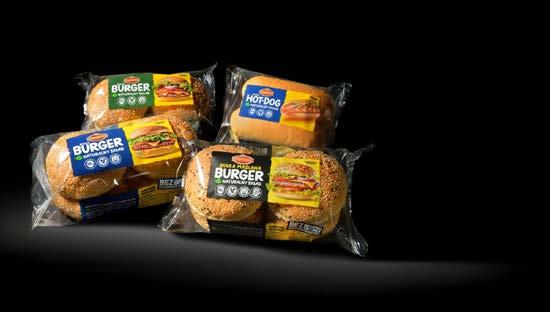

Oskroba Toast Bread 500 g – perfect for any occasion!
As a leader in the production of toast bread in Poland, Oskroba Bakery offers a wide range of products that will perfectly complement your culinary inspiration.
Are you looking for good quality products? Oskroba Bakery products are high-quality breads baked from natural ingredients using wheat sourdough.
They are produced without the use of preservatives, which guarantees a clean label.
They are packaged in special Clean Rooms, where sterile atmospheric conditions prevail. This is the most modern and natural method of extending the shelf life of bread.
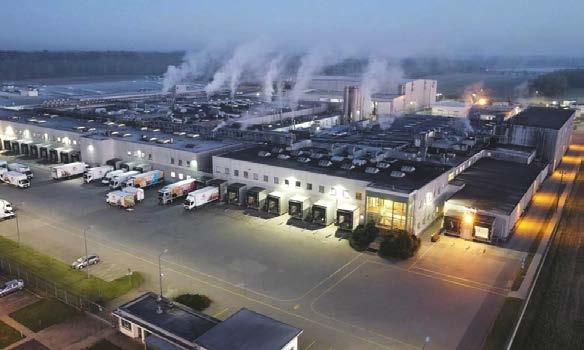

• A Polish family business, founded in 1931
• Currently managed by the fourth generation of the Oskroba family
• One of the largest bakeries in Poland
• 4 production plants located in the Mazovia Province Who we
• Products made from natural ingredients, without preservatives, Clean Label
• A wide range of packaged products
• A rich selection of bake-off products: breads, rolls, savory/ sweet snacks, yeast buns
+48 (25) 756 29 00 Get in touch with us: www.oskroba.pl
Piekarnia Oskroba S.A. 90 Człekówka 05-340 Kołbiel, Poland biuro@oskroba.pl

SEKO has been one of Poland’s leading producers of fish and fish products for many years, combining the tradition of a family business with a modern approach to the market. The company is consistently developing its exports, expanding its portfolio, and investing in new technologies to meet the expectations of customers in Poland and around the world. SEKO Vice-president Joanna Szymczak talks about the company’s plans, priorities, and directions for development.
SEKO has been recognized on the Polish market for years as a producer of fish and fish products. How do you want to build your position on foreign markets in the coming years?
Our strategy for development on foreign markets is primarily diversification, both in terms of export destinations and the product range itself. Consumers in different countries are looking for different solutions: in one country, frozen breaded fish is more popular, in another, marinades or convenience products. SEKO’s advantage is its broad portfolio – in Poland, we have had the widest range in the industry for years, and we want to use this advantage outside the country as well.
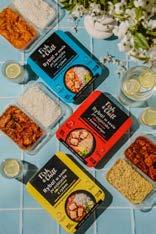
We are currently intensifying our efforts to introduce ready-made meals based on white fish. This is a category that opens up completely new markets for us, which were previously difficult to access. We see enormous potential in this, both in Poland and in Europe. We want the SEKO brand to be associated not only with high quality and tradition, but also with innovative solutions that respond to contemporary food trends.
Which products from the SEKO range are currently the most popular for export? Are these classic offerings or new products created specifically for foreign consumers?
When it comes to exports under the SEKO brand, our classic products are still the most popular – primarily marinades and ster-
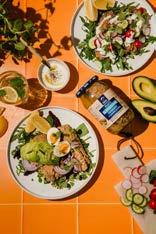
ilized products. This is a segment in which we have had a strong position for years and which naturally inspires confidence among our foreign partners as well.
When it comes to private labels – of which we have co-created more than ten for export – our greatest asset is our close cooperation with our partners. Together, we develop recipes and adapt them to local tastes, especially those of demanding consumers in Germany, for example. This approach allows us to respond quickly to changing market expectations and build lasting commercial relationships in different countries.
The convenience and ready-to-eat trend is growing in strength around the world. What innovations does SEKO offer in this area?
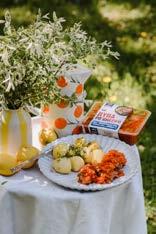
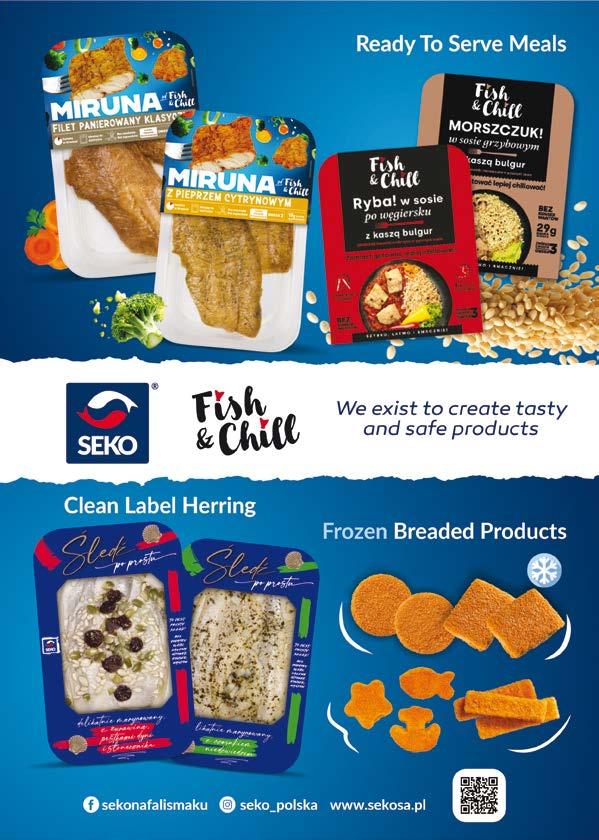

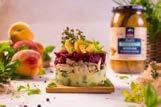

We see that the convenience segment is growing at a rapid pace, so we decided to respond to these needs with a new brand, Fish&Chill. It is a line of ready-to-eat meals that bring freshness and real innovation to store shelves. We offer ready-made meals with fish as the main ingredient, including fish dishes with groats or rice, breaded fillets, fish soups, and burgers. This is just the beginning—more offerings are already in the works.
Our ambition is for Fish&Chill to become a brand that combines healthy fish with convenience and a modern lifestyle. It is a response to the needs of consumers who want to eat quickly, but at the same time nutritiously and tastily.
But innovation is not just about convenience. We also want to take a fresh look at the classic pickled fish shelf. Hence the idea for the “Śledzie po prostu” line – herring, but with a modern twist and unique additions. This is an
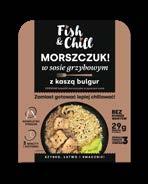
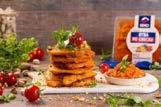
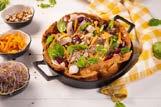
offer for those who value tradition but are looking for something more than the standard. What export directions are a priority for SEKO in the coming years?
Today, the largest volume of exports goes to the United Kingdom, the Czech Republic, and Germany – these are our top three markets, where SEKO is already well recognized. In total, we already export to 15 countries, and the experience we have gained provides us with a solid basis for further expansion.
We want to consistently develop in Europe – this is a natural direction for us, where we already have a stable position and proven partners. At the same time, we are looking strongly towards North America – Canada and the United States are markets with enormous potential, open to new flavors and high-quality fish products. We also plan to shift our activities to southern Europe. Spain, France, Italy, and Greece are countries where we have had less presence so far, but which are characterized by a rich culinary tradition

and high demand for fish products. We see room for our products there, especially the more innovative ones based on white fish. These are directions that will be of particular interest to us in the coming years.
Are there any plans for new product lines or packaging to make the offer more attractive to foreign customers?
The market is changing dynamically, and we can see that ready-made meals are playing an increasingly important role – this is a direction that strongly influences our investment decisions. We have recently completed the installation of two new production lines, which allow us to introduce both innovative packaging and new product formats.
We want our offer to be attractive to both domestic and foreign customers. Depending on the market, we focus on different recipes, but at the same time we look for universal solutions that will work in many countries. Thanks to the new lines, we gain flexibility – we can respond more quickly to trends and consumer needs, which gives us a competitive advantage in international markets.
We are convinced that the future belongs to companies that can combine experience with flexibility and courage in reaching for new markets. SEKO is just such a company – open to cooperation and ready to respond to the needs of trading partners from around the world.
We invite you to familiarize yourself with our offer and to contact us directly – both during and after the fair. We believe that together we can create solutions that will benefit all parties.
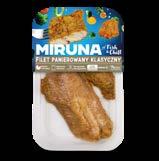
Your ANUGA trade fair film – straight from the professionals!
We are on site with a full film crew.
We produce promotional videos, event reports, interviews and short social media formats – all in broadcast quality and ready for immediate publication.
Professional camera crew
Fast editing and delivery of materials after the fair
Dedicated formats: from advertising spots to dynamic coverage of the exhibition hall
Experience in food and event industries
contact us
+48 661 921 526
kontakt@studionabagnie.pl
studionabagnie.pl

Get a unique souvenir and an effective tool to promote your brand – a video to showcase your presence at the world’s biggest trade show.

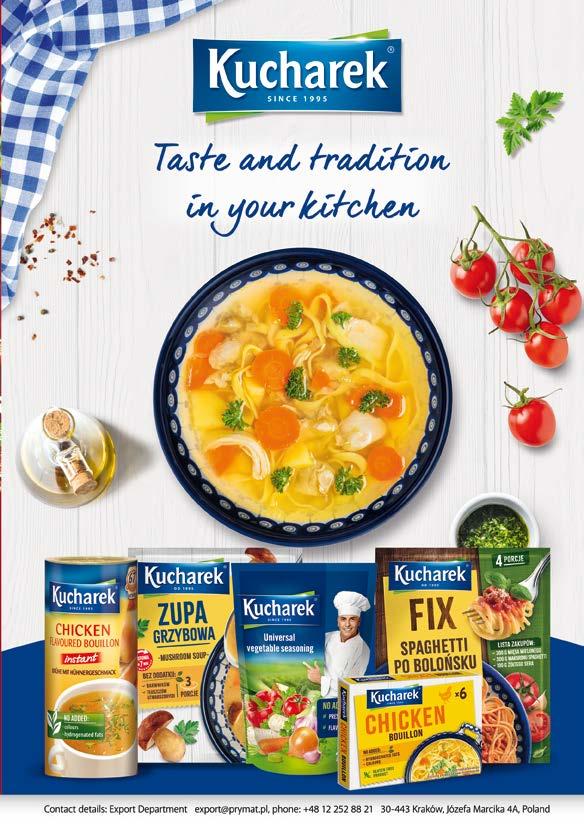
In today’s food industry, producers see both immense opportunities and growing challenges. Many highlight the rising global appetite for authentic, high-quality products rooted in tradition, natural ingredients, and clear origin stories. Expanding into foreign markets remains a strategic priority, supported by investments in innovation, sustainability, and new distribution channels such as e-commerce. Let us now turn to the manufacturers themselves and hear their voices on how they perceive the market and its future.


Łukasz Knapowski Commercial Director Aksam


Małgorzata Cebelińska Vice-President of the Management Board
SM Mlekpol
Marcin Stypuła Director of Discount & Export Sales Cedrob Foods
Wedel’s position on the domestic market is good, we are one of the 3 major players on the Polish chocolate market. The company is currently allocating considerable resources to investment in development. On an ongoing basis, we are automating and modernising internal operational processes and investing in the creation of new production lines. We have recently constructed two new buildings. One of them will house a place unique in Europe – the E.Wedel Chocolate Factory museum, which will invite everyone to a unique world of chocolate, teaching and entertaining. This project will not only become part of the capital’s urban fabric and emphasise the local roots of our company but will also make it possible to invite visitors from all over the world to join us on a chocolate journey. The remaining spaces will enable us to further develop the Wedel range, increasing efficiency and production capacity.
An international presence is of strategic importance to us. Step by step we are building our position and brand awareness in selected markets – we are present in more than 60 countries and exports currently account for around 10% of the company’s turnover. We want – and we are doing everything – to make sure that not only the domestic market tastes our chocolate, but that the E.Wedel brand is known in countries all over the world. Wedel’s biggest growth opportunities are the unique and high-quality chocolate products that have been made in our factory for more than 170 years. What is important for our customers – we are a company that is flexible, innovative and open to dynamic cooperation. A mixture of these qualities allows us to achieve our goals and cultivate the traditional values that were introduced to the company by its founders – the Wedel family. The main threat, in my opinion, is the rising prices of raw materials, mainly cocoa. It is worth noting that they have increased several times over the last few months, making cocoa more expensive than copper. Other risks include the dynamic change of other costs (employees, energy). Of long-term importance are the challenges of climate change, political and legislative changes (still not very business-friendly in terms of assumptions and implementation time). Also relevant is the issue of proliferating armed conflicts, which also destabilise many areas of business operations. However, we do our best to turn threats into opportunities and develop the E.Wedel brand in even the most unfavourable conditions.
Aksam distributes its products to almost 40 countries worldwide. These include our Beskidzkie and Soleo brands, as well as private labels. I would say that we have a well-established position in Europe, inter alia in Germany or Italy. We can proudly admit that Soleo, our export brand, is a market leader in South Africa, and is performing increasingly well in other countries. Suffice to say, we entered new markets such as Japan, Australia, and New Zealand, strengthening our position in international markets. At the same time we are expanding our product range, supported by certifications such as Kosher and Halal. Moreover, we are refreshing the image of our Soleo brand; we believe this change will aid our further expansion.
Polish producers like Aksam can guarantee the delivery of high-quality products at a good, competitive price. We are also characterized by flexibility and high adaptability. The main challenges that a company like Aksam have to face, are primarily related to rising production costs in Poland, and the unstable international situation, which may affect the exchange rates, and thus the prices and/or availability of raw materials. Furthermore, there is pricing pressure from large European players (retail chains), such as private labels. In this regard, I see opportunities in further developing sales outside the European Union (Asia, the Middle East, Africa) and building a strong export brand (beyond private label). Therefore, Aksam will currently be focusing heavily on Soleo, which is the reason for the rebranding and expansion of its product offer.
Currently, as a milk producer, Poland ranks fourth in Europe, with a positive growth rate of 8% in the first half of 2024. Due to natural conditions, our country still has great potential for the development of milk production, provided that dairy farmers are provided with favourable and stable conditions for their further development and investment. This depends both on the policy of the European Union as a whole and the adaptation of available resources to local conditions, as well as on decisions taken at national level.
The Mlekpol Dairy Cooperative is one of the leaders in the dairy industry in Poland. It owns many popular brands and has an extensive portfolio of high quality dairy products. Its modern production facilities, which include fourteen highly specialised plants, as well as its operations under the cooperative model, ensure the company’s stable position on both domestic and foreign markets. Currently, 30% of our production is exported, mainly to EU countries, but also to the most distant markets of the Americas, Asia or Africa. Thanks to the high quality of our products and the scale of our production, we are able to meet the expectations of different markets and guarantee foreign partners stable cooperation based on flexibility and understanding of their needs. One of our current priorities is to improve the company’s energy efficiency and reduce its carbon footprint, tasks that are part of our sustainable development strategy. By investing in green energy, Mlekpol aims to ensure maximum energy security and respond to the expectations of modern consumers. As for risks, we certainly see them in the unstable international situation and legislative risks in Poland and abroad. The ongoing armed conflicts and their recent escalation are not conducive to trade, and not only because of the lengthened supply chains, but also the protectionist customs policies, subsidies and other administrative decisions of numerous countries, which means that many regions will continue to face worsening food crises. At the same time, legislative changes that are too rapid or too far-reaching add to the burdens along the supply chain. Nonetheless, as a responsible company, we strive to be flexible in our approach to our business and adapt our production and product range to the needs of our partners in different corners of the world on an ongoing basis.
I assess the current situation on export markets very positively. Firstly, we have strengthened our position in Germany, where we supply dry products, including kabanos sausages, to one of the largest retail chains, and we continue to work intensively on further developing this market. Secondly, we have successfully begun our expansion in Asia, making our first deliveries and conducting advanced talks with new partners. Thirdly, we are seeing dynamic growth in the convenience food segment in European markets, both in the area of retail private labels and in the HoReCa channel. All this is the result of a consistent export policy and our activity at trade fairs and business forums, which open up new opportunities for development. The biggest threats on foreign markets are growing price competition, changing legal and sanitary regulations, and fluctuations in raw material and logistics costs, which affect the profitability of exports. At the same time, we see enormous opportunities – growing consumer interest in high-quality products, the dynamic development of convenience food in Europe and Asia, and the increasingly strong “Made in Poland” brands in Europe and “Made in Europe” brands in Asian countries. This opens up new opportunities for us, which, with a consistent strategy, can translate into further development of the company and the entire industry.

It is with great pleasure that I share what is currently happening in our company and our plans for the future. I am extremely proud of our achievements, as Adalbert’s Tea has become one of the most popular premium tea brands in Poland, which brings us immense satisfaction. Moreover, we see great potential in expanding internationally, especially in Europe, where our products are gaining increasing interest.
The current situation on export markets is challenging for our company on the one hand, but on the other hand, it is full of new opportunities. We are noticing a growing interest in authentic, traditional food products, especially those that emphasize natural recipes, simple ingredients, and regional origins. Consumers in many countries are looking for quality and history hidden in products, which fits well with our philosophy and offer. From an export perspective, the growing importance of e-commerce channels is also crucial, as they allow small and medium-sized companies to reach end customers faster, bypassing some of the traditional distribution barriers.
Beata Fabia-Hołda Co-founder and co-owner Adalbert’s Ltd.
At the same time, we face a number of challenges. The biggest ones include currency fluctuations, high logistics costs, and geopolitical instability, which affects the continuity of supply chains. Another significant threat is the increasingly complex regulations on food quality and labeling in various markets, which require significant administrative effort and investment in certification. An example of this is the implementation of FDA certification at our plant.

What sets Adalbert’s Tea apart is, above all, the passion with which we create our products. Our tea comes from plantations in Sri Lanka, a country renowned for producing the highest quality teas. We create our products with love and passion, inspired by the beauty and richness of Ceylon’s nature. Every step of production—from handpicking to traditional processing methods—is carried out with respect for the centuries-old traditions of Sri Lanka and its greatest treasure, tea. This allows us to ensure a unique taste and aroma that captures the spirit of this extraordinary island. Our elegant packaging further emphasizes the exclusive character of our products, making them exceptional in both taste and aesthetics.

In the near future, we have many ambitious plans. We are working on new, unique flavours and planning to introduce innovative editions of our teas, which will surely interest our loyal customers and attract new ones. We are also focusing on developing partnerships with international distributors to bring our products to additional markets. Of course, international expansion comes with certain challenges. Each market is different and requires a tailored approach. In Europe, the competition is strong, which is why we emphasize the highest quality of our products, their unique flavour, and exclusive character.
Nevertheless, we see great opportunities in the growing global trend towards healthy and traditional cuisine. In the long term, strengthening the brand’s image as an ambassador of Polish culinary quality, investing in ecology, and building trust through process transparency may prove to be crucial. We believe that these elements will allow Piwniczka Babuni not only to maintain its stable position, but also to grow dynamically in foreign markets.
Our goal in the coming period is to continue growing both domestically and internationally. We are also deeply committed to consumer education – we want people to not only savour the taste of our teas but also understand their tradition. We aim for a cup of Adalbert’s Tea to become a daily ritual, celebrated with joy and pleasure.
The poultry sector in Poland is at a crucial stage of development. For years, we have been the undisputed leader in poultry meat production in the European Union and the third largest exporter in the world. In 2024, we produced nearly 3.7 million tons of poultry meat, of which over 2 million tons were exported, with a value exceeding PLN 24 billion. Polish poultry meat is valued on markets around the world for its high quality and compliance with strict European standards regarding, among other things, food safety, environmental protection, and animal welfare.
Karol Pilaciński
Export Director Bogutti
The Polish industry focuses on diversifying its markets, exporting about 60% of its production, of which 65% goes to EU markets and 35% to third countries. The sector’s growth is driven by its focus on maintaining good relations with contractors and close cooperation with the administration, which allows it to enter new markets and sign appropriate trade agreements, such as regionalization in the event of avian influenza. The threats to the sector stem mainly from growing competition from non-EU countries such as Ukraine and Mercosur countries, where producers do not have to meet strict and costly standards, putting European producers at an unfair competitive disadvantage. Changes resulting from the Green Deal and regulatory pressure from certain non-governmental organizations are exacerbating inequalities and leading to a loss of competitiveness in the sector. The development of the industry should be based on a balance between three pillars: environmental, social, and economic.

Łukasz Knapowski
Commercial Director Aksam
Bogutti Company successfully exports its products to more than 50 countries on all continents, achieving a global reach. In my opinion, the current situation of the company is very positive. We are regularly attracting new customers and developing our offer with new product lines. Our diverse customer base enables us to manage our product range effectively and deal with local crises more efficiently. The key for us is that we are not dependent on one strategic customer, which gives us greater flexibility and stability. We see great opportunities for growth through ongoing investments, such as the purchase of new production lines. This will allow us to significantly expand our range and increase our production capacity, which will enable us to both attract new partners and increase sales with existing customers. We are particularly interested in developing the sugar-free segment, which is enjoying growing interest. However, volatile raw material prices are a significant threat. In recent years, we have noticed drastic increases in the prices of sugar, milk, butter and chocolate, which significantly hinders sales planning and an effective pricing policy. Price spikes pose a particular challenge, especially when signing annual product supply contracts.

Beskidzkie is one of the leading brands in the snacks category in Poland. Thanks to its recognition, wide range of products and high quality, the brand maintains a strong position in the market. Our Pretzel Sticks, Pretzels, Bagels, Snack Mixes or Crackers, are available in most retail chains and are very popular among consumers. This is due to both, traditional nature of the brand, together with company’s 100% Polish origin, and our ability to introduce innovations, at the same time. As despite the strong position, we still see areas for development, like interesting flavours, new consumer deals or the ever-growing trend for simple, natural ingredients. Apart from being main player in domestic market, we are reliable supplier to the international markets. Currently, Aksam supplies its snacks to 30 countries around the world – on almost every continent. Although we mainly produce under Beskidzkie brand, we also have an international brand, Soleo, available in places like South Africa, Ireland or Italy. We have established long-term partnerships abroad, thanks to the high quality of the products (raw materials, certificates including IFS, BRC, Sedex), the excellent level of service as well as the open-mindedness and flexibility. But that does not stop us from constantly growing, by looking for new markets and expanding our product offer. We see many opportunities in the increasing global demand for snacks, which are an attractive choice in terms of the wide range but also affordable price. Besides, consumers are paying more and more attention to what they eat. And in this matter, Aksam cares about the quality of the raw materials and their sources. For instance, we use only rapeseed oil and have dispensed with glucose-fructose syrup. However, just like other industries the trade of savoury snacks, with its’ specifity, have risks for the development. Among them, are unstable situation in the raw materials and energy markets. Climate change and political instability may further adversely affect the availability of raw materials, production and distribution costs and demand in certain markets. In addition, customers are increasingly focusing on whether a company is developing within the concept of sustainability, and this requires manufacturers to adapt their operations and offer to meet these expectations. Therefore, it seems crucial to strike a balance between ESG and maintaining the financial health of companies.
The export of premium tea, especially in the loose leaf category, is currently undergoing dynamic changes. On the one hand, we are seeing growing interest in high-quality products with a clear origin – this favors the development of brands such as Adalbert’s, based on pure Ceylon tea and transparent communication. On the other hand, exchange rate volatility and rising logistics and raw material costs are real challenges that require flexibility and long-term planning. The biggest threat to the export market today is price pressure, especially in the context of competition from countries producing cheaper, industrial tea. Meanwhile, we focus on hand-picked tea leaves, high-quality packaging, emotional messaging, and talking about pleasant rituals. I see enormous potential in building partnerships with distributors who think similarly. Today, it is not so much mass quantities that are key, but rather a conscious portfolio tailored to local needs. Every year, we offer carefully developed limited series that allow us to distinguish the brand and increase turnover in selected channels. For foreign partners, this is an attractive sales tool, and for consumers, it is a highly anticipated element of the seasonal offer, tailored to the mood and preferences of a given market.

Paulina Małachowska Brand Manager Adalbert’s
In conclusion, we are striving to spread the joy of crunching around the world, and the satisfaction of customers is the best reward for our hard work.

Karol Pilaciński Export Director Bogutti


Maciej Herman Managing Director
Lotte Wedel
Mira Klepacka Owner Fabryka 111

The confectionery export market is far more complex today than it was just a few years ago. On the one hand, we see rapid growth in in-out and functional products, while on the other, traditional sales channels are clearly slowing down. At the same time, competition from outside the EU – particularly from Turkey and Ukraine – is becoming stronger, with these producers firmly establishing themselves in European markets. All this means that maintaining a stable position now requires greater flexibility and an even faster response to change.
Another key issue is regulation. The upcoming EU deforestation directive (EUDR) is set to be a game-changer – producers will need to prove the origin of their raw materials in detail, especially cocoa. For some companies this will be a serious challenge, but it is also an opportunity to demonstrate to partners that they operate responsibly and transparently.
Consumer expectations are shifting as well. Buyers are increasingly looking for novelty – not only in flavors but also in product types. A good example was this year’s Dubai Chocolate event, where the greatest interest was drawn by sugar-free confectionery, functional products, and variants enriched with added nutritional benefits. It is clear that sweets are no longer seen as just an occasional indulgence, but increasingly as part of an everyday lifestyle.
For companies like Bogutti, the message is clear: we must constantly innovate, balance tradition with emerging trends, and at the same time meet the growing regulatory demands of export markets.
As a kraft producer of kimchi in Poland, I see growing interest in foreign markets, especially in Western Europe, where consumers are increasingly turning to fermented products and foods associated with a healthy lifestyle. This creates opportunities for export, since kimchi combines the traditions of Korean cuisine with current trends in functional and natural foods. Customers are looking for authenticity, and my artisanal of production allows me to maintain high quality and a unique taste, which distinguishes me from mass-market brands.
At the same time, the export market brings significant challenges. The biggest ones are the logistics and transportation costs of chilled products, which require proper storage conditions. Another risk is strong competition from Asian producers who offer kimchi at lower prices, as well as regulatory barriers – differences in labeling and certification requirements between countries. Nevertheless, I believe that the niche character of my production, combined with growing consumer awareness, opens up promising opportunities. I see potential for cooperation with restaurants, organic food shops, and delicatessens. My goal is to build a brand associated with authenticity, quality, and a healthy lifestyle – values that can also gain recognition outside of Poland.
Wedel’s position on the domestic market is good, we are one of the 3 major players on the Polish chocolate market. The company is currently allocating considerable resources to investment in development. On an ongoing basis, we are automating and modernising internal operational processes and investing in the creation of new production lines. We have recently constructed two new buildings. One of them will house a place unique in Europe – the E.Wedel Chocolate Factory museum, which will invite everyone to a unique world of chocolate, teaching and entertaining. This project will not only become part of the capital’s urban fabric and emphasise the local roots of our company but will also make it possible to invite visitors from all over the world to join us on a chocolate journey. The remaining spaces will enable us to further develop the Wedel range, increasing efficiency and production capacity. An international presence is of strategic importance to us. Step by step we are building our position and brand awareness in selected markets – we are present in more than 60 countries and exports currently account for around 10% of the company’s turnover. We want – and we are doing everything – to make sure that not only the domestic market tastes our chocolate, but that the E.Wedel brand is known in countries all over the world. Wedel’s biggest growth opportunities are the unique and high-quality chocolate products that have been made in our factory for more than 170 years. What is important for our customers – we are a company that is flexible, innovative and open to dynamic cooperation. A mixture of these qualities allows us to achieve our goals and cultivate the traditional values that were introduced to the company by its founders – the Wedel family. The main threat, in my opinion, is the rising prices of raw materials, mainly cocoa. It is worth noting that they have increased several times over the last few months, making cocoa more expensive than copper. Other risks include the dynamic change of other costs (employees, energy). Of long-term importance are the challenges of climate change, political and legislative changes (still not very business-friendly in terms of assumptions and implementation time). Also relevant is the issue of proliferating armed conflicts, which also destabilise many areas of business operations. However, we do our best to turn threats into opportunities and develop the E.Wedel brand in even the most unfavourable conditions.

Jacek Wyrzykiewicz PR & Marketing Services Manager Hochland Polska
Małgorzata Cebelińska Vice-President of the Management Board SM Mlekpol
Currently, as a milk producer, Poland ranks fourth in Europe, with a positive growth rate of 8% in the first half of 2024. Due to natural conditions, our country still has great potential for the development of milk production, provided that dairy farmers are provided with favourable and stable conditions for their further development and investment. This depends both on the policy of the European Union as a whole and the adaptation of available resources to local conditions, as well as on decisions taken at national level.
The Mlekpol Dairy Cooperative is one of the leaders in the dairy industry in Poland. It owns many popular brands and has an extensive portfolio of high quality dairy products. Its modern production facilities, which include fourteen highly specialised plants, as well as its operations under the cooperative model, ensure the company’s stable position on both domestic and foreign markets.
The cheese market in Poland is growing, with significant growth in this product category recorded in recent years. What is more, Poland is one of the leading cheese producers in Europe. It is also a category with great export potential, and for Hochland, this direction will be important in the coming years and is a strategic priority for the Hochland Group. Taste and quality remain key factors in consumer choices. In response to these expectations, at Hochland we consistently invest in natural ingredients, high-quality milk, and sustainable packaging solutions that are in line with consumers’ growing environmental awareness. The development of exports to the Baltic markets, the Czech Republic, and Slovakia is key for us, and we are succeeding in this. We have also intensified our activities in Lithuania, where we have become a recognizable player and have widely promoted our products in the media based on their quality and taste. We are seeing a clear increase in interest in healthy eating and a healthy lifestyle, which is influencing the popularity of lactose-free products, low-fat cheeses, and cheeses with increased protein content. Functional products with clean labels are gaining popularity. We can expect further growth in these segments, which respond to the specific health needs of consumers. The cheese industry faces a number of challenges related to the rapidly changing situation on the milk market, rising operating costs, and external factors that may affect the stability of the supply chain. In addition, increasingly stringent regulations on sustainable agriculture, greenhouse gas emission reduction, and environmental protection pose a challenge for milk producers. The introduction of these requirements may, in the long term, translate into increased production costs and further changes in raw material prices, which requires us to be operationally flexible and manage costs effectively. The outlook is uncertain.
Currently, 30% of our production is exported, mainly to EU countries, but also to the most distant markets of the Americas, Asia or Africa. Thanks to the high quality of our products and the scale of our production, we are able to meet the expectations of different markets and guarantee foreign partners stable cooperation based on flexibility and understanding of their needs. One of our current priorities is to improve the company’s energy efficiency and reduce its carbon footprint, tasks that are part of our sustainable development strategy. By investing in green energy, Mlekpol aims to ensure maximum energy security and respond to the expectations of modern consumers. As for risks, we certainly see them in the unstable international situation and legislative risks in Poland and abroad. The ongoing armed conflicts and their recent escalation are not conducive to trade, and not only because of the lengthened supply chains, but also the protectionist customs policies, subsidies and other administrative decisions of numerous countries, which means that many regions will continue to face worsening food crises. At the same time, legislative changes that are too rapid or too far-reaching add to the burdens along the supply chain. Nonetheless, as a responsible company, we strive to be flexible in our approach to our business and adapt our production and product range to the needs of our partners in different corners of the world on an ongoing basis.
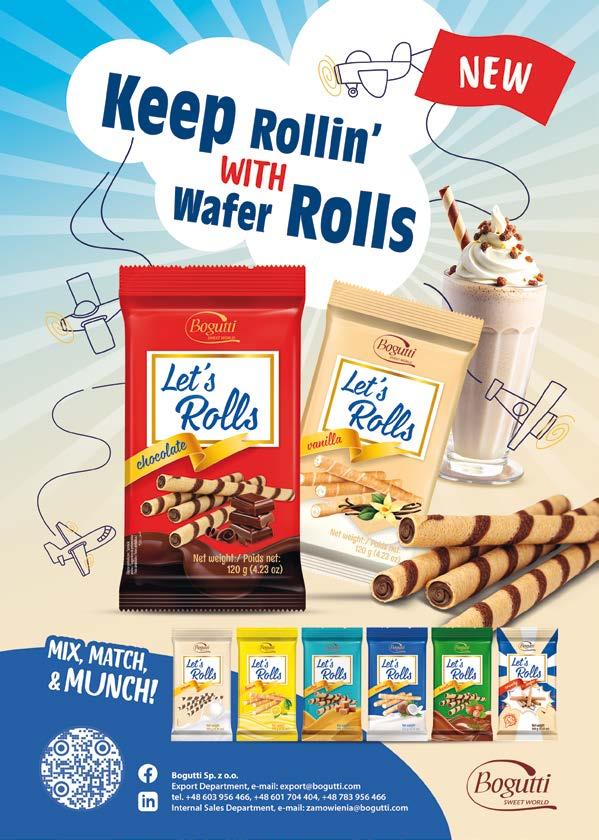

Magdalena Szabłowska
Export Director SM MLEKOVITA


Mlekovita has closed another year of its operations, not only strengthening its position as the market leader in the industry, but also expanding the scale of its operations and developing its product range. The company finalized further investments worth a record PLN 188 million. We can boast growing and record revenues, which for the first time in the history of our company exceeded PLN 10 billion.
Last year, Mlekovita launched 72 new products in six categories, including 11 high-protein products in the Super Body Active line and 28 Wypasione products. Mlekovita was the first and only manufacturer in Poland to introduce products with the unique properties of A2A2 milk to wide distribution.
The year 2025 presents significant challenges for the dairy industry. Rising costs of labor, raw materials, energy, and taxation are being strongly felt across the sector. In response, we are continuing our transformation toward sustainable development by introducing eco-friendly packaging, implementing advanced water- and energy-efficient technologies, and further expanding cogeneration systems.
The absence of clear regulatory frameworks complicates the establishment of a deposit system and hinders market preparedness for the forthcoming changes. Both this year and the next will be marked by new challenges and dynamic transformations. We have evolved into an even more agile and resilient organization, capable of continuously adapting to an ever-changing environment and business landscape.
Maciej Herman Managing Director Lotte Wedel
Małgorzata Cebelińska
Vice-President of the Management Board MLEKPOL Dairy Cooperative


Przemysław
Olczak Purchasing Department Director Fanex
Małgorzata Cebelińska Vice-President of the Management Board SM Mlekpol
Assessing the current situation on the export market, I am moderately optimistic. The latest data from the first half of 2025 confirm the strength of the Polish dairy sector – exports increased by 14%, reaching a value of almost PLN 8.8 billion. A 20% increase was recorded in EU markets, which generate most of our export revenues. Mlekpol, which exports 30% of its production to over 100 countries, fits perfectly into this trend. Our growing position in EU and non-EU countries demonstrates the attractiveness of our offer and the trust of our business partners.
Today, I see compliance with increasingly stringent environmental and energy regulations as the biggest challenge. Equally important is the unstable geopolitical situation, which affects energy prices, logistics, and the availability of certain trade corridors.
We continue to see great opportunities in continuing our already successful cooperation with partners in Africa, the Middle East, and Southeast Asia. The development of cooperation with partners in Central and South America is also a growing opportunity for us.
Wedel’s position on the domestic market is good, we are one of the 3 major players on the Polish chocolate market. The company is currently allocating considerable resources to investment in development. On an ongoing basis, we are automating and modernising internal operational processes and investing in the creation of new production lines. We have recently constructed two new buildings. One of them will house a place unique in Europe – the E.Wedel Chocolate Factory museum, which will invite everyone to a unique world of chocolate, teaching and entertaining. This project will not only become part of the capital’s urban fabric and emphasise the local roots of our company but will also make it possible to invite visitors from all over the world to join us on a chocolate journey. The remaining spaces will enable us to further develop the Wedel range, increasing efficiency and production capacity. An international presence is of strategic importance to us. Step by step we are building our position and brand awareness in selected markets – we are present in more than 60 countries and exports currently account for around 10% of the company’s turnover. We want – and we are doing everything – to make sure that not only the domestic market tastes our chocolate, but that the E.Wedel brand is known in countries all over the world. Wedel’s biggest growth opportunities are the unique and high-quality chocolate products that have been made in our factory for more than 170 years. What is important for our customers – we are a company that is flexible, innovative and open to dynamic cooperation. A mixture of these qualities allows us to achieve our goals and cultivate the traditional values that were introduced to the company by its founders – the Wedel family. The main threat, in my opinion, is the rising prices of raw materials, mainly cocoa. It is worth noting that they have increased several times over the last few months, making cocoa more expensive than copper. Other risks include the dynamic change of other costs (employees, energy). Of long-term importance are the challenges of climate change, political and legislative changes (still not very business-friendly in terms of assumptions and implementation time). Also relevant is the issue of proliferating armed conflicts, which also destabilise many areas of business operations. However, we do our best to turn threats into opportunities and develop the E.Wedel brand in even the most unfavourable conditions.
I see significant potential for further export growth. Mlekpol offers not only high-quality products, but also flexibility in adapting to the specific requirements of local markets. Our experience in serving such diverse markets as China, the Philippines, and Saudi Arabia shows that we are ready for new partnerships and business challenges.
Currently, as a milk producer, Poland ranks fourth in Europe, with a positive growth rate of 8% in the first half of 2024. Due to natural conditions, our country still has great potential for the development of milk production, provided that dairy farmers are provided with favourable and stable conditions for their further development and investment. This depends both on the policy of the European Union as a whole and the adaptation of available resources to local conditions, as well as on decisions taken at national level.
The Mlekpol Dairy Cooperative is one of the leaders in the dairy industry in Poland. It owns many popular brands and has an extensive portfolio of high quality dairy products. Its modern production facilities, which include fourteen highly specialised plants, as well as its operations under the cooperative model, ensure the company’s stable position on both domestic and foreign markets. Currently, 30% of our production is exported, mainly to EU countries, but also to the most distant markets of the Americas, Asia or Africa. Thanks to the high quality of our products and the scale of our production, we are able to meet the expectations of different markets and guarantee foreign partners stable cooperation based on flexibility and understanding of their needs. One of our current priorities is to improve the company’s energy efficiency and reduce its carbon footprint, tasks that are part of our sustainable development strategy. By investing in green energy, Mlekpol aims to ensure maximum energy security and respond to the expectations of modern consumers.
As for risks, we certainly see them in the unstable international situation and legislative risks in Poland and abroad. The ongoing armed conflicts and their recent escalation are not conducive to trade, and not only because of the lengthened supply chains, but also the protectionist customs policies, subsidies and other administrative decisions of numerous countries, which means that many regions will continue to face worsening food crises. At the same time, legislative changes that are too rapid or too far-reaching add to the burdens along the supply chain. Nonetheless, as a responsible company, we strive to be flexible in our approach to our business and adapt our production and product range to the needs of our partners in different corners of the world on an ongoing basis.
We are consistently expanding the Fanex portfolio, based primarily on a long-term strategy that we update in line with market conditions and consumer expectations. Distinctive taste, guaranteed quality, and a flexible approach to customer needs are the keys to our success. When it comes to exports, we have so far focused mainly on European markets, and our products are available in Spain, Hungary, the Czech Republic, Romania, and Denmark, among others. These are markets where our brand is already well recognized and enjoys a high level of trust. Our goal for the coming years is to strengthen our position there, while developing sales in other European countries. We are also looking more and more boldly towards Asia and North America – and I don’t just mean implementing local flavors into our offer. A challenge for the development of food companies in foreign markets is the dynamically changing legal regulations, which often differ in specific economic areas, as well as, for example, sanitary regulations. All this may result in limited export opportunities, among other things due to high logistics costs affecting the profitability of investments. These challenges are offset by the expansion of e-commerce, including the development of global sales platforms that create opportunities to reach customers around the world. Another favorable trend for the industry is the growing interest of consumers in high-quality food made with good ingredients.
It is with great pleasure that I share what is currently happening in our company and our plans for the future. I am extremely proud of our achievements, as Adalbert’s Tea has become one of the most popular premium tea brands in Poland, which brings us immense satisfaction. Moreover, we see great potential in expanding internationally, especially in Europe, where our products are gaining increasing interest.
Polish processed cheese producers are currently facing a historic opportunity for foreign expansion. Unfortunately, this path is not strewn with roses. Paradoxically, the war across the eastern border opens up new opportunities while closing others. Despite the ongoing conflict, Ukraine remains the most promising direction for expansion.
Polish brands are enjoying growing recognition there, and the tradition of eating processed cheese as an accompaniment to bread means that demand remains high. The Sertop brand is very well known in Ukraine and enjoys the trust of consumers. In addition, Ukrainian retail chains are increasingly turning to private labels, which opens up additional opportunities for cooperation. Unfortunately, geopolitical uncertainty and broken supply chains pose a serious logistical challenge and risk to sales growth in Ukraine.

Beata Fabia-Hołda Co-founder and co-owner
Adalbert’s Ltd.
Within the EU, we are seeing German consumers, traditionally skeptical of products from Eastern Europe, gradually opening up to competitively priced, high-quality alternatives. This situation undoubtedly presents an opportunity for Sertop products. The growing HoReCa sector and smaller retail chains focused on serving customers from ethnic minorities seem particularly interesting. However, breaking the dominance of strong Western brands remains a challenge.
The Balkan region, with countries aspiring to EU membership, presents enormous growth potential. Muslim societies naturally prefer dairy products as their primary source of protein, which favors the consumption of processed cheese. However, the low purchasing power of the population and intense competition from cheap products remain barriers.

What sets Adalbert’s Tea apart is, above all, the passion with which we create our products. Our tea comes from plantations in Sri Lanka, a country renowned for producing the highest quality teas. We create our products with love and passion, inspired by the beauty and richness of Ceylon’s nature. Every step of production—from handpicking to traditional processing methods—is carried out with respect for the centuries-old traditions of Sri Lanka and its greatest treasure, tea. This allows us to ensure a unique taste and aroma that captures the spirit of this extraordinary island. Our elegant packaging further emphasizes the exclusive character of our products, making them exceptional in both taste and aesthetics.

Tomasz Szmyt Director of Sales & Marketing
In the near future, we have many ambitious plans. We are working on new, unique flavours and planning to introduce innovative editions of our teas, which will surely interest our loyal customers and attract new ones. We are also focusing on developing partnerships with international distributors to bring our products to additional markets. Of course, international expansion comes with certain challenges. Each market is different and requires a tailored approach. In Europe, the competition is strong, which is why we emphasize the highest quality of our products, their unique flavour, and exclusive character.
Our goal in the coming period is to continue growing both domestically and internationally. We are also deeply committed to consumer education – we want people to not only savour the taste of our teas but also understand their tradition. We aim for a cup of Adalbert’s Tea to become a daily ritual, celebrated with joy and pleasure.
Iraq, despite its huge market absorption capacity and the role of processed cheese in the daily diet, is characterized by low purchasing power and strong competition from Ukrainian producers offering products of dubious quality. The Gulf countries, although very absorbent, require a deep adaptation of the offer to local preferences and do not guarantee long-term partnerships. The key to success is wisely planned diversification, which will minimize risk while maximizing growth potential.
Bogutti Company successfully exports its products to more than 50 countries on all continents, achieving a global reach. In my opinion, the current situation of the company is very positive. We are regularly attracting new customers and developing our offer with new product lines. Our diverse customer base enables us to manage our product range effectively and deal with local crises more efficiently. The key for us is that we are not dependent on one strategic customer, which gives us greater flexibility and stability. We see great opportunities for growth through ongoing investments, such as the purchase of new pro
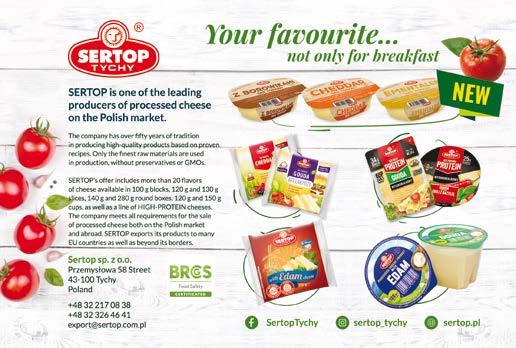
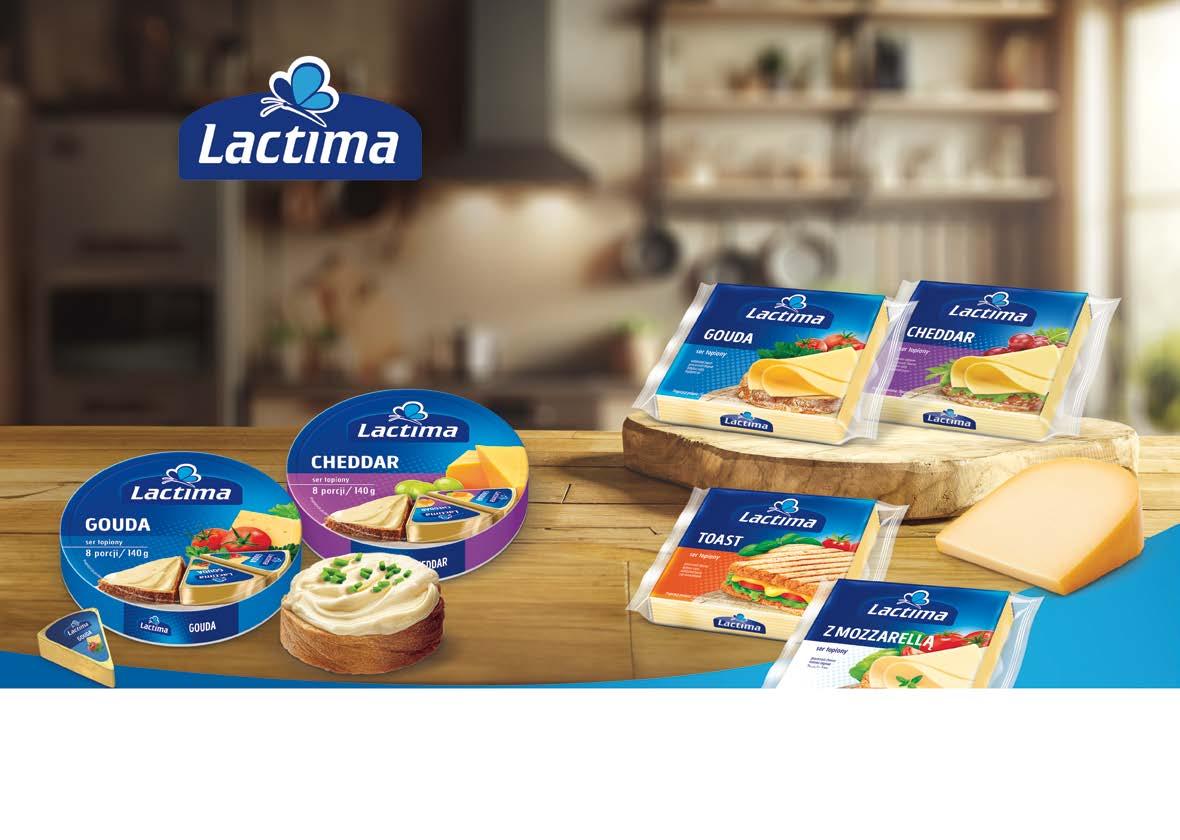






Przemysław Gostkiewicz
President Sokołów


Export is one of the pillars of our business and one of our key sales channels, accounting for approximately 20% of our business. We export both meat and processed products. We offer our partners a wide range of products perfectly tailored to their needs and expectations. We manufacture and supply products under the Sokołów brand and under private labels. The leading categories include sliced cold cuts and meat snacks. We currently supply products to over 300 customers in 29 countries. I am glad that the quality of our products is recognized in so many foreign markets. We are consistently working on further developing sales outside Poland – both in markets where we have been present for years and by seeking new opportunities and markets. Due to existing export restrictions, we focus on European Union countries. Our priority is to build lasting relationships with foreign partners and develop sales of our products.
The biggest challenges, beyond our control, that limit the dynamic development of this sales channel include infectious animal diseases and insufficient supply of raw materials. The fact that our products meet really high quality standards and have an excellent taste is certainly an opportunity. We also offer many interesting innovations that attract the attention of our foreign partners. Our goal is to further strengthen Sokołów’s position in terms of exports, despite the existing challenges.
Wedel’s position on the domestic market is good, we are one of the 3 major players on the Polish chocolate market. The company is currently allocating considerable resources to investment in development. On an ongoing basis, we are automating and modernising internal operational processes and investing in the creation of new production lines. We have recently constructed two new buildings. One of them will house a place unique in Europe – the E.Wedel Chocolate Factory museum, which will invite everyone to a unique world of chocolate, teaching and entertaining. This project will not only become part of the capital’s urban fabric and emphasise the local roots of our company but will also make it possible to invite visitors from all over the world to join us on a chocolate journey. The remaining spaces will enable us to further develop the Wedel range, increasing efficiency and production capacity.
The current situation of Goodvalley on export market is both very dynamic and promising. We are constantly developing our business, also products portfolio, and consumer awareness, which is crucial in the context of our expansion into the British, Swedish, and Dutch markets. Leveraging Goodvalley’s experience in brand building allows us to increase the availability of our products, which means that we plan to be present not only in shops targeting the Polish community, but also in major retail chains in these countries. As a result, we are becoming increasingly recognizable and valued by a wide range of consumers.
Maciej Herman
Sławomir Szymerowski
Managing Director
Commercial Director Retail & Export Goodvalley
Lotte Wedel


Zenon Badyra
Sales and Marketing Director
SUSHI & FOOD FACTOR
Małgorzata Cebelińska Vice-President
of the Management
SM Mlekpol
Board
In the face of global markets, our company faces a number of challenges, but also opportunities. The key threat is the spread of ASF, which is affecting international trade, particularly for the meat industry. In addition, the growing tendency of consumers to support local producers may influence purchasing decisions to our disadvantage, especially in the context of our products originating from abroad. On the other hand, we see significant opportunities arising from the continuing demand for premium and quality products. The decline in the popularity of the flexitarian diet and increased interest in meat consumption create opportunities for our company, which is able to supply high-quality products to markets where local options do not always meet consumer expectations. These aspects represent an opportunity for us to increase our market share and build loyalty among new consumer groups, which is key to achive goals of our international growth strategy.
An international presence is of strategic importance to us. Step by step we are building our position and brand awareness in selected markets – we are present in more than 60 countries and exports currently account for around 10% of the company’s turnover. We want – and we are doing everything – to make sure that not only the domestic market tastes our chocolate, but that the E.Wedel brand is known in countries all over the world. Wedel’s biggest growth opportunities are the unique and high-quality chocolate products that have been made in our factory for more than 170 years. What is important for our customers – we are a company that is flexible, innovative and open to dynamic cooperation. A mixture of these qualities allows us to achieve our goals and cultivate the traditional values that were introduced to the company by its founders – the Wedel family. The main threat, in my opinion, is the rising prices of raw materials, mainly cocoa. It is worth noting that they have increased several times over the last few months, making cocoa more expensive than copper. Other risks include the dynamic change of other costs (employees, energy). Of long-term importance are the challenges of climate change, political and legislative changes (still not very business-friendly in terms of assumptions and implementation time). Also relevant is the issue of proliferating armed conflicts, which also destabilise many areas of business operations. However, we do our best to turn threats into opportunities and develop the E.Wedel brand in even the most unfavourable conditions.
Currently, as a milk producer, Poland ranks fourth in Europe, with a positive growth rate of 8% in the first half of 2024. Due to natural conditions, our country still has great potential for the development of milk production, provided that dairy farmers are provided with favourable and stable conditions for their further development and investment. This depends both on the policy of the European Union as a whole and the adaptation of available resources to local conditions, as well as on decisions taken at national level.
The Mlekpol Dairy Cooperative is one of the leaders in the dairy industry in Poland. It owns many popular brands and has an extensive portfolio of high quality dairy products. Its modern production facilities, which include fourteen highly specialised plants, as well as its operations under the cooperative model, ensure the company’s stable position on both domestic and foreign markets. Currently, 30% of our production is exported, mainly to EU countries, but also to the most distant markets of the Americas, Asia or Africa. Thanks to the high quality of our products and the scale of our production, we are able to meet the expectations of different markets and guarantee foreign partners stable cooperation based on flexibility and understanding of their needs. One of our current priorities is to improve the company’s energy efficiency and reduce its carbon footprint, tasks that are part of our sustainable development strategy. By investing in green energy, Mlekpol aims to ensure maximum energy security and respond to the expectations of modern consumers. As for risks, we certainly see them in the unstable international situation and legislative risks in Poland and abroad. The ongoing armed conflicts and their recent escalation are not conducive to trade, and not only because of the lengthened supply chains, but also the protectionist customs policies, subsidies and other administrative decisions of numerous countries, which means that many regions will continue to face worsening food crises. At the same time, legislative changes that are too rapid or too far-reaching add to the burdens along the supply chain. Nonetheless, as a responsible company, we strive to be flexible in our approach to our business and adapt our production and product range to the needs of our partners in different corners of the world on an ongoing basis.
The Sushi and ready-to-eat Asian meals category represents a significant growth opportunity. At Sushi&Food Factor, we have been consistently strengthening our position as a market leader for over a decade. With a daily production volume of approximately 180,000 Sushi trays, alongside a diverse range of Asian-inspired dishes, we are proud to be one of the key players in this dynamic segment. Our product portfolio is developed under two distinct brands: Sushi4You – specializing in Sushi sets, Sushi Chirashi, Onigiri, and Wraps and Asia4You – offering a wide selection of Asian noodles, including Noodle, Ramen, Poke Bowl, Sticky Rice, and desserts inspired by Asian culinary traditions. This dual-brand strategy enables us to effectively address the evolving preferences of consumers and respond to fast-changing food trends. Importantly, we also offer flexibility in producing private label products, tailored to the specific needs of our partners. Our products are currently available in 16 European countries, distributed through numerous retail chains. Each market entry requires a dedicated effort from our team – from recipe adaptation and compliance with raw material and quality standards to logistics optimization. This complexity, however, is a source of strength, driving continuous innovation, operational excellence, and reinforcing our brand’s presence across Europe’s premium convenience food landscape. We are witnessing a growing demand for Asian cuisine throughout Europe, with consumers increasingly seeking convenient, healthier, and high-quality meal options. One of the ongoing challenges is the need to align raw material specifications with the diverse and often stringent standards of retail networks in different countries. In conclusion, despite the challenges, we view export as a strategic direction of our growth. With a broad and adaptable product portfolio, we are confident in our ability to shape the future of modern, convenient, and high-quality food choices across Europe.

It is with great pleasure that I share what is currently happening in our company and our plans for the future. I am extremely proud of our achievements, as Adalbert’s Tea has become one of the most popular premium tea brands in Poland, which brings us immense satisfaction. Moreover, we see great potential in expanding internationally, especially in Europe, where our products are gaining increasing interest.
Wawel has been successfully developing its export business for many years, and our products are now available in over 60 countries on six continents. We are constantly working to further expand our presence outside Poland, adapting our offer to the specific characteristics of individual markets. Our broad portfolio, which includes chocolate, chocolate candies, pralines, fudge, toffee products, as well as jelly gummies and jellies, allows us to flexibly adapt our range to local taste preferences and consumer requirements in different parts of the world, which is a great advantage.
Recent years have been particularly challenging for the chocolate industry due to rapidly changing cost and political conditions and evolving consumer trends. These factors require manufacturers to be highly flexible and responsive.
Beata Fabia-Hołda Co-founder and co-owner Adalbert’s Ltd.
The food industry today faces many global challenges. Among the biggest are record prices for raw materials such as cocoa, sugar, and vegetable oils, but also rising labor costs in Poland and soaring energy, fuel, and transportation costs, which limit our advantage over producers in Asia and Eastern Europe. Additional barriers include geopolitical tensions, increasingly restrictive regulations, and unclear customs policies—from local certification requirements to sugar consumption restrictions and detailed labeling in the EU and the US.

What sets Adalbert’s Tea apart is, above all, the passion with which we create our products. Our tea comes from plantations in Sri Lanka, a country renowned for producing the highest quality teas. We create our products with love and passion, inspired by the beauty and richness of Ceylon’s nature. Every step of production—from handpicking to traditional processing methods—is carried out with respect for the centuries-old traditions of Sri Lanka and its greatest treasure, tea. This allows us to ensure a unique taste and aroma that captures the spirit of this extraordinary island. Our elegant packaging further emphasizes the exclusive character of our products, making them exceptional in both taste and aesthetics.

International Sales Director Wawel
In the near future, we have many ambitious plans. We are working on new, unique flavours and planning to introduce innovative editions of our teas, which will surely interest our loyal customers and attract new ones. We are also focusing on developing partnerships with international distributors to bring our products to additional markets. Of course, international expansion comes with certain challenges. Each market is different and requires a tailored approach. In Europe, the competition is strong, which is why we emphasize the highest quality of our products, their unique flavour, and exclusive character.
On the other hand, however, we see enormous potential for growth. Many markets and sales channels remain open to us, and rising global costs mean that distributors are increasingly willing to seek alternatives to the offerings of the largest corporations.
Our goal in the coming period is to continue growing both domestically and internationally. We are also deeply committed to consumer education – we want people to not only savour the taste of our teas but also understand their tradition. We aim for a cup of Adalbert’s Tea to become a daily ritual, celebrated with joy and pleasure.
E.Wedel products are available in over 50 countries, with exports accounting for about 10% of turnover. Our position on the export market is stable yet challenging. Growing interest in premium products strengthens our presence, while cooperation with reputable partners and participation in international events allow us to reach both Polish diaspora and local buyers. We strive to let as many consumers as possible experience the unique nature of our diverse range. Wedel is a distinctive European company that combines market autonomy, international best practices, rich history, and modernity, with passion, craftsmanship, entrepreneurship, and flexibility.
Karol Pilaciński Export Director Bogutti
The biggest challenge remains the unpredictability of the economic environment. Fluctuating raw material prices, trade changes (e.g., customs duties), and geopolitical tensions impact sales and planning, requiring flexibility and caution. At the same time, our strong portfolio – including chocolate bars produced for nearly 175 years and Ptasie Mleczko®, soon to celebrate its 90th anniversary – provides a solid base for further profitable growth.
Bogutti Company successfully exports its products to more than 50 countries on all continents, achieving a global reach. In my opinion, the current situation of the company is very positive. We are regularly attracting new customers and developing our offer with new product lines. Our diverse customer base enables us to manage our product range effectively and deal with local crises more efficiently. The key for us is that we are not dependent on one strategic customer, which gives us greater flexibility and stability. We see great opportunities for growth through ongoing investments, such as the purchase of new production lines. This will allow us to significantly expand our range and increase our production capacity, which will enable us to both attract new partners and increase sales with existing customers. We are particularly interested in developing the sugar-free segment, which is enjoying growing interest. However, volatile raw material prices are a significant threat. In recent years, we have noticed drastic increases in the prices of sugar, milk, butter and chocolate, which significantly hinders sales planning and an effective pricing policy. Price spikes pose a particular challenge, especially when signing annual product supply contracts.
Consumers increasingly seek authentic, high-quality, responsibly produced products, strengthening the premium food segment. Shifting preferences, with growing importance of environmental and social values alongside taste and price, create opportunities for further sustainable development for Wedel and the industry.

For years, we have been consistently developing the production of turkey products in Wielkopolski Indyk, based on the most stringent quality standards. One of our specialties is the Halal product segment. This makes us a natural partner for distributors and retail chains in markets where the Muslim community is a significant consumer group. Our facilities are producing 100% Halal safe products every day. This market is growing very dynamically and at the same time sets high requirements – both in terms of religious compliance and food safety. We have certificates confirming each stage of the process – from the selection of raw materials, through turkey slaughter, cutting, processing up to the packaging of finished products. Thanks to this, our products inspire confidence and meet the expectations of even the most demanding customers.
Łukasz Knapowski
Commercial Director Aksam
I see a growing demand for high-quality turkey meat products in the Middle East and among Muslim communities in Europe. This represents enormous potential for export growth. Our narrow specialization gives us a competitive advantage and allows us to respond to the needs of a market that requires a partner who is not only reliable, but also flexible and ready to fulfill individualized orders. I believe that thanks to our consistency and innovative approach, we will increasingly strengthen our presence in these promising markets.

Director Wedel
Beskidzkie is one of the leading brands in the snacks category in Poland. Thanks to its recognition, wide range of products and high quality, the brand maintains a strong position in the market. Our Pretzel Sticks, Pretzels, Bagels, Snack Mixes or Crackers, are available in most retail chains and are very popular among consumers. This is due to both, traditional nature of the brand, together with company’s 100% Polish origin, and our ability to introduce innovations, at the same time. As despite the strong position, we still see areas for development, like interesting flavours, new consumer deals or the ever-growing trend for simple, natural ingredients. Apart from being main player in domestic market, we are reliable supplier to the international markets. Currently, Aksam supplies its snacks to 30 countries around the world – on almost every continent. Although we mainly produce under Beskidzkie brand, we also have an international brand, Soleo, available in places like South Africa, Ireland or Italy. We have established long-term partnerships abroad, thanks to the high quality of the products (raw materials, certificates including IFS, BRC, Sedex), the excellent level of service as well as the open-mindedness and flexibility. But that does not stop us from constantly growing, by looking for new markets and expanding our product offer. We see many opportunities in the increasing global demand for snacks, which are an attractive choice in terms of the wide range but also affordable price. Besides, consumers are paying more and more attention to what they eat. And in this matter, Aksam cares about the quality of the raw materials and their sources. For instance, we use only rapeseed oil and have dispensed with glucose-fructose syrup. However, just like other industries the trade of savoury snacks, with its’ specifity, have risks for the development. Among them, are unstable situation in the raw materials and energy markets. Climate change and political instability may further adversely affect the availability of raw materials, production and distribution costs and demand in certain markets. In addition, customers are increasingly focusing on whether a company is developing within the concept of sustainability, and this requires manufacturers to adapt their operations and offer to meet these expectations. Therefore, it seems crucial to strike a balance between ESG and maintaining the financial health of companies.

In conclusion, we are striving to spread the joy of crunching around the world, and the satisfaction of customers is the best reward for our hard work.
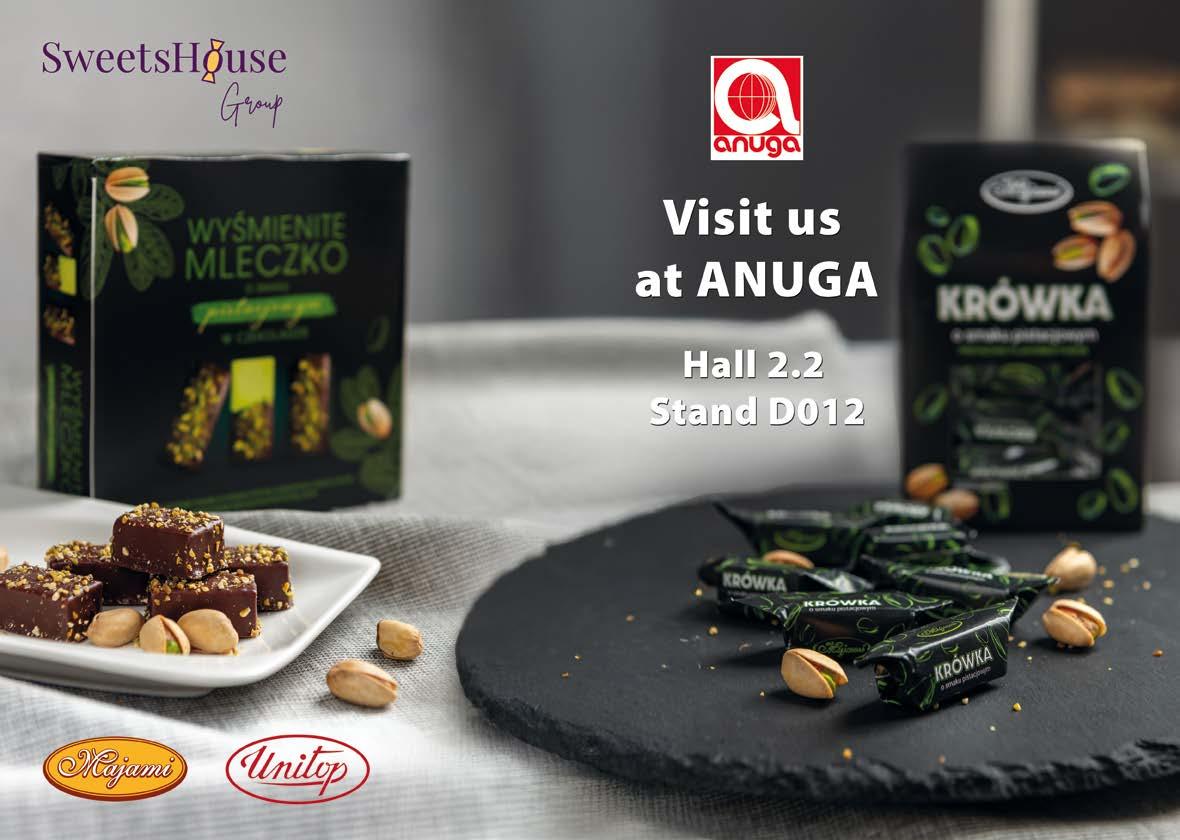

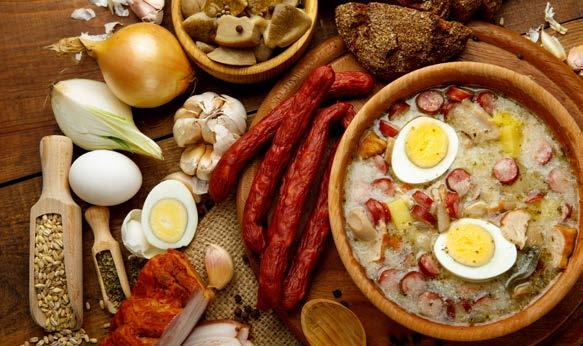
Poland has occupied an important place on the map of the European and global food market for years. It is a country where centuries-old culinary tradition meets modern production standards, and where natural environmental conditions are conducive to the production of food of exceptional taste and high quality. More and more foreign consumers and distributors are becoming convinced that Polish products are synonymous with authenticity, safety and variety.

Magdalena Chajzler Editor
Polish cuisine and food products grow out of a rich regional tradition. Each region has its own characteristic specialities - from highland cheeses, through smoked fish from Kashubia, to aromatic cold meats and baked goods from Małopolska or Wielkopolska. Many recipes are handed down from generation to generation, while traditional production methods ensure that the products retain their authentic taste and character. Protected EU Geographi -
cal Indications, such as oscypek or kiełbasa lisiecka, emphasise the uniqueness and authenticity of Polish specialities, which increases their attractiveness on foreign markets.
Poland’s natural conditions, including clean water sources, fertile soils and a varied climate, create an ideal environment for the production of top-quality food. Thanks to them, Polish milk, meat, fruit, vegetables or cereals are distinguished by their freshness and rich taste, which meets the expectations of even the most demanding consumers. A clean environment and carefully managed cultivation give Poland a reputation as a country whose products are safe and trustworthy.
Polish producers are increasingly investing in sustainable production and innovative technologies that reduce environmental impact. The increasing share of organic, bio and certified products in the export offer shows that Polish food combines tradition with modernity. From dairy and bread, to confectionery and beverages, to frozen food, alcohol and cured meats, Poland’s export offer is diverse and meets the needs of global consumers.
Poland’s food offer includes products that appeal to the tastes of consumers around the world. Dairy, meat and cold cuts, confectionery, beverages, frozen food and convenience products combine high quality, natural ingredients and attractive
emphasise the uniqueness and authenticity of Polish specialities, which increases their attractiveness on foreign markets.
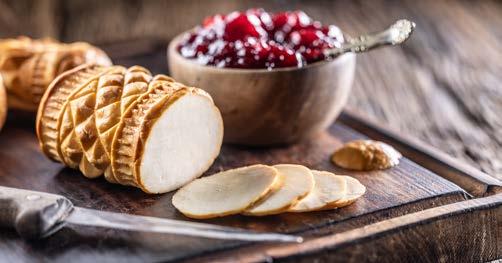
packaging design. This combination makes Polish products perform well both in retail and catering, winning the appreciation of consumers in Europe, Asia and America.
There is also a growing interest in Polish food due to its authenticity, variety and history hidden in each product. Foreign consumers are increasingly looking for products that combine tradition, high quality and innovation. Polish food not only meets these expectations, but also becomes an ambassador of Polish culinary culture, winning the hearts of consumers around the world and strengthening Poland’s position as a country with exceptional food products.
Polish cuisine and food products grow out of a rich regional tradition. Each region has its own characteristic specialities - from Podhale sheep’s cheese, through Kashubian smoked fish, to Wielkopolska cold meats and Małopolska baked goods. This diversity preserves the unique character of the products and makes Polish food stand out
from other countries, both in terms of taste and authenticity.
Culinary tradition is not only an element of culture - it is also the foundation of quality. Many recipes are passed down from generation to generation, and the production process is based on natural ingredients and traditional production methods. As a result, the products retain the authentic taste sought by consumers both in Poland and abroad.
Particularly noteworthy are Polish products included on the EU’s list of Protected Geographical Indications (PGI), such as oscypek, lisiecka sausage or honey from the Białowieża Forest. Such certificates not only protect the originality of the products, but also highlight their unique pedigree and history. For foreign buyers, they are a guarantee of authenticity, quality and tradition that cannot be faked.
The richness of Polish flavours goes hand in hand with the regional diversity of raw materials. The mountains are home to sheep’s milk cheeses, the coast is home to smoked fish, and central Poland is famous
for its bread and cured meats. This combination of traditional recipes and local products creates an offering that delights gourmets around the world and allows Poland to stand out as a country with a culinary identity.
Culinary tradition goes hand in hand with attention to every detail of production. Polish producers pay particular attention to the quality of raw materials, the maturation time of products and their processing methods. Such rigour makes Polish food distinguished by its stability of taste and high nutritional value, which is appreciated by consumers looking for premium products.
Regional diversity is also a huge asset for the export market. Foreign consumers are increasingly looking for products with history, authentic taste and a unique pedigree. Polish food, with its tradition, local ingredients and high quality, is a perfect example of how culinary heritage can become an added value in the global supply chain, attracting new customers and building the international reputation of Polish producers.
Polish food, with its tradition, local ingredients and high quality, is a perfect example of how culinary heritage can become an added value in the global supply chain.
Natural conditions - the foundation of quality
Poland is a country with exceptionally favourable climatic and soil conditions, which favour the development of agriculture in harmony with nature. The diverse climate, from the cooler northern areas to the milder southern valleys, allows a wide range of agricultural products to be grown all year round. This keeps Polish vegetables, fruit and cereals fresh, rich in nutrients and naturally aromatic.
Meadows, pastures and fields full of a variety of crops, clean water sources and extensive forests provide the basis for the production of top-quality food. These natural resources allow Polish producers to create products with a unique taste, without the need for excessive chemicals or artificial aids. Thanks to this, Polish food is perceived as authentic and safe for consumers around the world.
Poland’s nature is also conducive to breeding animals in a responsible and sustainable manner. Clean pastures and healthy rearing conditions translate into the quality of milk, meat and eggs, which reach the domestic and foreign markets. Animal products are characterised by excellent taste, high nutritional value and meet strict food safety standards.
The diversity of natural conditions also allows regional products with a unique

character to emerge. Specialities from specific areas - such as Podhale oscypek, Masovian apples or Kashubian smoked fish - draw their uniqueness directly from local ecosystems. This combination of tradition and natural environment creates an offer that is appreciated by both Polish and foreign consumers.
Poland’s natural conditions are not only an asset to the local market, but also a key element of competitiveness on international markets. More and more foreign customers are looking for products from clean regions, produced in harmony with nature and in a sustainable manner. Polish fruit, vegetables, cereals, meats and dairy products meet these expectations, which is why domestic food is gaining recognition and growing popularity around the world.
Ecological awareness is growing not only in Poland, but also among consumers worldwide. More and more people are looking for products produced in a sustainable way, with minimal impact on the environment, which is becoming an important criterion for food
selection. Polish producers are meeting these expectations by combining traditional production methods with modern ecological standards to create products that are healthy, safe and in tune with nature.
In response to growing demand, more and more certified organic crops are being established, which allow the production of healthy and natural raw materials. Polish farms are using innovative methods to reduce the use of pesticides, optimise fertilisation and save water. This translates into higher quality products, their safety for consumers and compliance with international organic standards.
Increasingly, Polish organic products are appearing on the shelves of foreign shopsfrom milk and cheese, through bread and fruit and vegetable preserves, to healthy snacks and sweets. Polish food combines authentic recipes with a modern approach to production, which appeals to discerning consumers looking for natural and certified products that stand out for their taste and safety.
Innovation in the Polish food industry is not limited to ecology. Producers are investing in cutting-edge technologies that
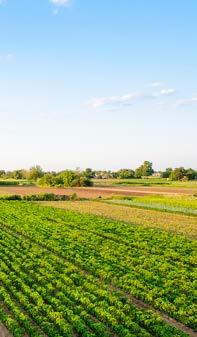
improve product quality, extend shelf life and, at the same time, reduce their carbon footprint. Intelligent monitoring systems, production automation and modern processing processes allow Polish food to combine tradition with efficiency and ecological responsibility.
Polish food thus becomes an example of harmony between tradition and modernity. Sustainable production, certified organic cultivation and innovative technologies make products from Poland recognised both on the domestic market and among international consumers. This strategic combination of ecology and innovation places Poland at the forefront of countries that are able to create food of exceptional quality and responsible character.
Poland’s food offer is an impressive range of products that appeals to consumers around the world. We export both top-quality dairy products, including cheeses, yoghurts and milk, as well as meat and cold cuts distinguished by their natural
Polish food becomes an example of harmony between tradition and modernity. Sustainable production, certified organic cultivation and innovative technologies make products from Poland recognised both on the domestic market and among international consumers.
Poland’s food offer is an impressive range of products that appeals to consumers around the world.
taste and careful production process. This gives foreign customers the opportunity to experience the authentic flavours of Poland in a full range of traditional and modern products.
In the sweets and snacks segment, Polish producers are gaining popularity. Chocolates, pralines, biscuits, nuts or crispy wafers combine high quality ingredients and attractive packaging design. More and more foreign distributors appreciate Polish sweets for their diversity, innovative flavours and compliance with international food safety standards.
Poland also offers a wide range of beverages - from pressed juices and functional drinks to craft beers and stronger spirits such as vodkas and liqueurs. Polish alcoholic products combine traditional recipes with modern design, which makes them perfect both in retail and on the tables of culinary enthusiasts around the world.
Frozen and convenience products, which meet the needs of dynamic lifestyles, are playing an increasingly important role in exports. Polish producers offer high-quality frozen fruit and vegetable
products, ready meals, pierogi or cakes that combine convenience with authentic taste and tradition. Such products work well in international shops and in catering, highlighting Polish creativity and attention to detail.
One should not forget about preserves and loose products - jams, preserves, flours, groats, pastas and spices are elements of the daily diet that conquer foreign markets. Their popularity is due to the combination of traditional recipes with high quality raw materials, which allows to preserve the authentic taste and aroma appreciated by demanding consumers.
The Polish offer also includes regional and specialised products entered on the lists of protected geographical indications. Oscypki, lisieckie sausages, honey from the Białowieża Forest or pierogi from specific regions not only present unique taste qualities, but are also a showcase of Poland’s culinary heritage. This is an additional export asset, emphasising the uniqueness and authenticity of Polish products.
The diverse range of Polish food products makes Poland an attractive partner
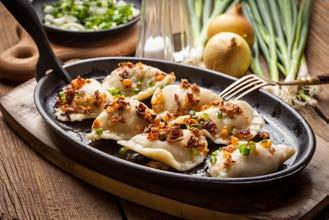

for foreign markets. Consumers are increasingly looking for authentic products that combine tradition, high quality and innovation. Polish food not only meets these expectations, but thanks to its diversity, it is gaining increasing recognition and loyalty from consumers around the world.
In recent years, we have observed a dynamic increase in the export of Polish food, which testifies to the growing interest of foreign consumers in our offer. Polish food is gaining recognition not only thanks to the high quality of its products, but also thanks to the care taken by producers at every stage of production - from raw material to the finished product. The stability of supply and transparency of production processes increase the trust of counterparties on international markets.
Foreign consumers also appreciate the authenticity and diversity of Polish products. Dairy products, cured meats, bakery products, frozen foods, confectionery and
beverages - each segment is distinguished by its careful manufacturing, natural taste and compliance with international food safety standards. Polish food meets the needs of the modern customer who is looking for products that are healthy, tasty and transparent in terms of origin.
Poland offers not only products, but also history, culture and passion hidden in every product. Traditional recipes, regional ingredients and local production methods give products from Poland their unique identity. This combination of authenticity and modernity appeals to consumers around the world, making Polish food an ambassador of the country’s culinary tradition.
Quality certificates and organic labelling are playing an increasingly important role in winning foreign markets. Consumers increasingly pay attention to the origin of products, cultivation methods and sustainable production processes. Polish companies make effective use of these standards, combining food safety with innovative solutions, which increases the competitiveness of our products abroad.
The loyalty of foreign consumers to Polish brands is also growing. Consumers appreciate not only the taste, but also the philosophy of Polish producers - a combination of ecology, quality and innovation. As a result, Polish food products are increasingly appearing on the shelves of international shops, in restaurants and in culinary programmes, strengthening Poland’s position as a country of exceptional tradition and high quality food.
The role of modern marketing and distribution cannot be overlooked. Polish producers actively participate in trade fairs, promote products in social media and on e-commerce platforms, reaching a wide range of consumers. Such a strategy allows not only to increase sales, but also to build a positive image of Poland as a country offering authentic and modern products at the same time.
As a result of the growing interest in Polish food, an increase in exports of niche regional and specialised products can also be observed. Oscypki, honey, pierogi or traditional preserves are winning recognition among foreign connoisseurs of taste, who are looking for unique and authentic culinary experiences. Polish food not only meets the daily needs of consumers, but also becomes an ambassador of our country’s culture and traditions around the world.
Polish products are increasingly inspiring chefs, restaurateurs and culinary influencers around the world. Their unique flavour, natural ingredients and variety make it possible to create both classic and innovative dishes that appeal to culinary enthusiasts with different preferences. Polish cuisine, thanks to the quality of its raw materials, is becoming a source of inspiration for creative recipes and new taste combinations.
Food products from Poland are increasingly appearing in modern restaurants, culinary programmes and on social media platforms. By showing their use in diverse dishes - from traditional to fine dining - Polish food is gaining international recognition. It is not only a matter of taste, but also the history and culture behind each product, which adds to their unique value in the global market.
Organic, ecological products and those that fit in with current healthy lifestyle trends
are also playing an increasingly important role. Pressed juices, vegetable and fruit preserves, wholemeal bread or plant-based alternatives to meat perfectly fit in with popular trends such as slow food, plant-based cuisine or conscious eating. Polish products are winning recognition not only among gourmets, but also among consumers looking for healthy, natural and certified foodstuffs.
Polish food is also a source of culinary inspiration for international gastronomy. Cooperation with chefs and premium brands allows the creation of unique product lines that combine traditional recipes with modern design and innovative production methods. As a result, Poland is becoming not only a supplier of raw materials, but also a partner in the creation of global culinary trends.
As a result, Polish food is becoming the country’s ambassador on international markets. Its presence in restaurants, shops and social media shows that Poland offers high-quality products that combine authenticity, tradition and modernity. This makes consumers around the world not only taste Poland, but also discover its culture, history and passion of its producers.
Polish food is gaining more and more recognition on international markets, and its popularity is due to both the exceptional quality of the products and the care taken by producers at every stage of production. The country’s climatic and soil conditions are conducive to the development of agriculture in harmony with nature, while clean water sources, green meadows and pastures provide healthy, natural raw materials. This combination favours the production of dairy, meat, vegetables, fruit and cereals that retain their full flavour and nutritional value.
Organic awareness is growing both in Poland and internationally, so Polish producers are increasingly combining traditional production methods with modern organic standards. More and more farms are implementing certified organic cultivation, reducing the use of pesticides, optimising fertilisation and saving water. As a result, Polish products are not only tasty, but also healthy and safe. Investment in modern technologies makes it possible to extend the shelf life of food and reduce its carbon footprint, which further increases the attractiveness of Polish products on foreign markets.
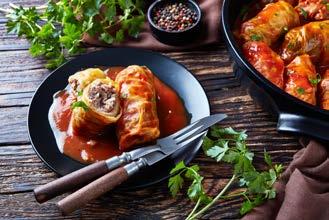
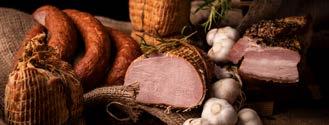
The range of Polish food is impressive. Top-quality dairy products, cold meats, meat, bakery products, sweets and snacks - each segment is characterised by careful craftsmanship, natural taste and compliance with international safety standards. Polish frozen and convenience products, such as pierogi, cakes and ready-made meals, combine convenience with authentic taste and tradition, responding to the needs of modern consumers seeking both quality and practical solutions.
The growing interest of foreign consumers is also a result of the authenticity and diversity of Polish products. Each product carries the history and culture of the region it comes from, while traditional recipes and local ingredients give it a unique identity. Polish products are becoming ambassadors of the country’s culinary tradition, and consumers are increasingly willing to return to tried-and-tested brands, appreciating their philosophy of combining quality, ecology and innovation.
Increasingly, products from Poland are appearing in global culinary trends. Natural ingredients, authentic taste and variety make it
possible to create both classic and innovative dishes in restaurants and in the home kitchen. Polish food is part of the world trend of healthy lifestyle, slow food, plant-based cuisine and conscious eating, winning the appreciation of consumers looking for natural and certified products.
The cooperation of Polish producers with chefs and premium brands enables the creation of unique product lines that combine tradition with modern design. Polish food is becoming a source of inspiration, present in restaurants, culinary programmes and on the shelves of international shops, reinforcing the image of Poland as a country offering high quality products with exceptional taste.
By combining tradition, authenticity, ecology and innovation, Polish food acts as the country’s ambassador to the world. Products from Poland allow the culture, history and passion of producers to be discovered, and their presence in international shops and on consumers’ tables contributes to the growing recognition and prestige of Polish food, winning the loyalty and appreciation of customers around the world.

For 25 years, retail chains affiliated with Polish Trade and Distribution Organization (POHiD) have supported modern trade in Poland, investing over EUR 60 billion and creating more than 300,000 jobs. With 95% of products sourced from Polish suppliers and exports exceeding PLN 20 billion, they play a key role in promoting Polish food abroad.

Renata Juszkiewicz President of the Polish Trade and Distribution Organization (POHID)
Retail chains affiliated with the Polish Trade and Distribution Organization have been supporting the development of modern trade in Poland for 25 years, combining consumer welfare with strengthening the position of Polish products on the domestic and foreign markets.
Thanks to many years of investment – already exceeding EUR 60 billion – international retail chains have created over 300,000 modern jobs in Poland and have become an important partner for domestic producers and suppliers. As much as 95% of the food products offered in our stores come from Polish suppliers, which proves the strength and sustainability of local supply chains. This cooperation also translates into foreign expansion – the value of Polish food exports
through retail chains already exceeds PLN 20,000,000,000.
The retail chains affiliated with POHiD not only support the competitiveness of producers, but also the recognition of Polish brands around the world. Thanks to their extensive international presence, they enable Polish companies to access new markets and consumers, and the development of private labels becomes an additional channel for promoting Polish food.
Logistics and distribution remain an important issue, especially for fresh products and those requiring special transport conditions. That is why investments in refrigeration infrastructure, the development of sustainable transport, and the digitization of processes that increase the transparency and efficiency of the supply chain are so important.
From the perspective of POHiD members, we are also observing key market trends: the growing importance of sustainable production and green logistics, the development
of e-commerce in the food segment, as well as increasing consumer interest in premium, traditional, and regional products. These trends set the direction for the development of our offer and, at the same time, inspire producers and retailers to further expand their exports.
For a quarter of a century, POHiD has been actively participating in economic and social dialogue, supporting free market access, competition protection, and ethical business practices. We are a partner in discussions with public institutions, ensuring that trade in Poland not only drives the economy but also has a positive impact on the working environment and consumers.
The trade and distribution sector therefore remains not only an important link in the supply chain, but also a strategic partner in the internationalization of Polish food. Its role in building a positive image of Poland as a supplier of high-quality products will gain in importance as global markets become more dynamic.
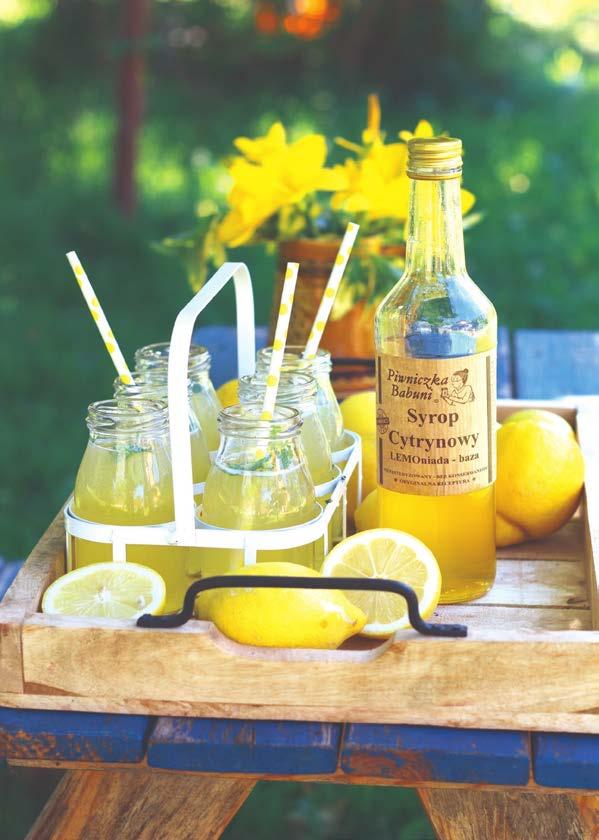
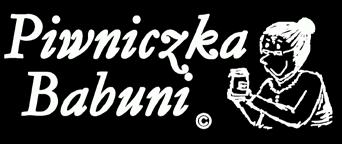


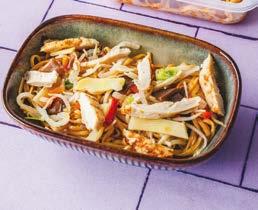
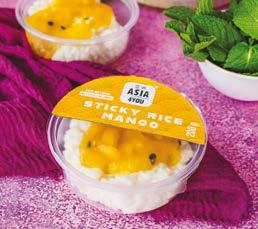




70 Karolina Street 32-608 Osiek, Poland +48 33 842 97 05 export@aksam.pl aksam.pl
Aksam is a Polish, family-owned company with 32 years of experience in the production of snacks. The Business started with the production of “Beskidzkie Paluszki” – salty baked sticks. Over the years, Aksam has expanded its portfolio to include other products, such as pretzels, and has been strengthening its position on the Polish salty snacks market year after year. Quality and safety are core values, which is why Aksam put them first. The products are of high quality, tasty, and contain the right ingredients. Aksam continuosly improve production and quality processes, train the Staff, and modernise machinery. The company holds certifications in food safety and quality: BRCGS, IFS, Halal, V-label and SEDEX. Currently, Aksam exports its products to 39 countries reaching every continent and continues to seek new destinations.
35/37 Szyszkowa Street 02-285 Warsaw, Poland export@adalbertstea.com adalbertstea.com
Adalbert’s Tea embodies the highest quality of Ceylon tea, offering authentic flavours and unique designs for an unforgettable experience.
Adalbert’s journey began with a vision to create exceptional teas, which led the founders to Sri Lanka. In 2014, they introduced their first collection, featuring a signature golden elephant on the tin, which quickly became the brand’s hallmark. This collection was soon recognized for the highest quality, unique flavours and evoking an atmosphere exclusivity.
Driven by passion, quality, and love for Sri Lanka, Adalbert’s continually develops new flavours to meet the refined tastes of customers. With a strong position in the Polish market, the company is dedicated to expanding its distribution network internationally, making their exceptional tea accessible to more people worldwide.
48 Gromadzka Street 05-504 Henryków-Urocze, Poland export@bogutti.com +48 603 956 466, +48 601 704 404, +48 783 956 466, +48 667 918 000 bogutti.com
Bogutti is a family-owned company from Poland, specializing in high-quality cookies, fudges, wafer rolls, and biscuits. We combine tradition with modern production standards, steadily expanding into new markets across many continents. Export is a key driver of our business, representing more than 60% of total sales. Bogutti products are already present in numerous international markets, valued by consumers for their excellent taste, consistent quality, and compliance with global requirements. Our portfolio includes well-recognized brands such as La Gustosa, Weeksy, Tweett, Choco Gutti, ChocoFit, Cookies in American Style, Next, Free, and Let’s Rolls. Bogutti supplies retail chains in Poland and abroad with products valued for their quality, taste, and kosher/halal certifications.


23 Władysława Grabskiego Street 32-640 Zator, Poland Export Department: +48 33 870 35 71 ext. 106 export@eurowafel.pl eurowafel.pl
Eurowafel is the producer of different sort of wafers. Since its establishment in 1984, it has developed over the years by investing in modern machines and innovative technologies.
On the one hand, we base our production on traditional recipes but on the other, we use innovative solutions to develop new productsas a response to constantly changing market expectations.
Eurowafel serves its Clients with high quality products by ensuring product safety according to IFS Certificate.
We use the best flour and only simple and verified ingredients. Combining tradition with the latest researches on health food, we implement new, light and healthly products that can be served in many ways.
10 Lesna Streey 05-230 Kobyłka, Poland Mira Klepacka (Owner) mobile: + 48 695873928
miraklepacka@oldfriendskimchi.pl oldfriendskimchi.pl
OLD FRIENDS KIMCHI - our kimchi factory in Poland is where passion meets craftsmanship. We specialize in fermentation, producing kimchi in small batches to ensure unique flavor and the highest quality in every jar. Our craft production means natural ingredients, traditional recipes, and full control of the process – with no compromises. The result is an authentic, healthy product, rich in probiotics. Located in the heart of Europe, we offer excellent logistics and distribution, making us an ideal partner for international clients. Working with us means guaranteed quality, passion, and an innovative approach to fermentation that meets the growing global demand for functional and premium foods.

Radonice 5a, 05-870 Błonie, Poland +48 22 47 10 444 biuro@fanex.pl fanex.pl
Fanex is a family-owned Polish company with nearly 40 years of experience in the HoReCa market. Combining culinary expertise with modern technology, the company has become a trusted partner for gastronomy operators in Poland and abroad. Fanex offers around 300 products, from classic sauces to trend-inspired recipes, and develops private labels such as Tres Amigos. The company also distributes premium Italian Greci specialties and Japanese Yamasa sauces produced in Radonice. Continuous investment in infrastructure, including a logistics network of over 11,500 pallet spaces, supports Fanex’s dynamic growth and international expansion, with products reaching markets across Europe, Scandinavia, the UK, the USA and beyond. The company remains committed to quality, reliability, and building long-term partnerships with its customers.


36 Urzędnicza Street 91-312 Łódź, Poland +48 42 640 75 41 gibar.com.pl
Gibar has been present on the Polish market for over 30 years. Established originally as a producer, it has evolved into a national distributor and importer, bringing carefully selected sweets, snacks, and beverages to the market. The company’s strategy focuses on niche products that combine originality with quality.
25 Dworcowa Street 77-320 Przechlewo, Poland +48 59 833 43 61 export@goodvalley.com goodvalley.com
At Goodvalley we develop sustainable food production, caring for a healthier and and better tomorrow. The company’s history dates back to 1994 when the idea of a new way of production of high quality food that would not interfere with the environment as much as traditional agriculture was born. Today, we work with a unique model of of responsible production from field to fork. We offer a diverse range of fresh and frozen pork meats, as well as processed, ready to eat products. We offer unrestricted exports within the European Union, ensuring seamless delivery to all member states.
77 Krakowska Avenue 05-552 Jabłonowo, Poland bok@jablonowo.pl jablonowo.pl
Browar Jabłonowo is a completely private, family-run, regional brewery located near Warsaw. Established in 1992, the brewery boasts modern, automated equipment, ensuring consistent production and microbiological purity.
Browar Jabłonowo became a market leader in strong beers category. Company created a premium line of beers under the brand “Manufaktura Piwna”, specializing in honey beers that have won numerous awards in various beer competitions, including “Na Miodzie Gryczanym” beer, considered the best honey beer in Poland.
3/5 Czackiego Street 00-043 Warsaw, Poland +48 22 828 23 89 krd-ig@krd-ig.pl krd-ig.com.pl
KRD-IG is the largest poultry organisation in Poland. It associates over 100 members from such fields as: farming, breeding, hatching, commercial production of poultry and eggs, processing and trade of poultry meat, its preparations and eggs, poultry feed production, related production, scientific and educational activities associated with the poultry sector. Members of KRDIG have a nearly 70% share of the national market and a nearly 90% share of the export. KRD aims at developing and modernizing the Polish poultry industry and protect the interests of poultry farmers and producers.


6 Kaszubska Street 14-300 Morąg, Poland +48 89 757 55 57 export@lactima.pl lactima.pl
LACTIMA is a Polish processed cheese producer based in Morąg, in the Warmian-Masurian province, known as the land of a thousand lakes. Since 1989, as the first Polish company to produce individually wrapped slices, we have successfully covered all sales channels. Our offer includes cheese slices, portions, spreads in cups and bars, as well as cream cheese, butter and margarine in small cups. Every LACTIMA product is a tasty option for a daily meal – from a toast with mozzarella slices to a simple snack. We operate under PNEN ISO 9001:2015, PN-EN ISO 22000:2018, BRC Global Standard for Food Safety and Halal, ensuring top quality. Today, LACTIMA products are enjoyed not only in Europe, but also in the Middle East, Far East, Africa and the Americas.
8 św A. Chmielowskiego Street, 97-400 Bełchatów, Poland
The Sweets House Group Capital Group is a dynamic player on the Polish confectionery market, combining a rich history with global ambitions. The group’s origins date back to 1989, when Majami sp. z o.o. was established, a family business that transformed itself from a chocolate wafer manufacturer into an industry leader.
An extremely important moment in the group’s development was the acquisition of the Łódź-based company Unitop sp. z o.o. in November 2022. Today, Majami, the heart of the group, is a symbol of taste and success.
Fudge is conquering the markets of the Middle East, while sesame snaps have taken Canada and Australia by storm. Thanks to the combined forces, products such as halva and chocolate-covered milk are now available on the shelves of every retail chain in Poland.
122 Ludowa Street, 18-200 Wysokie Mazowieckie, Poland
EXPORT: phone: +48 86 27 58 211 e-mail: export@mlekovita.com.pl mlekovita.com.pl
Dairy Cooperative MLEKOVITA:
• is the largest Polish producer and the biggest exporter of dairy products in Poland;
• offering over 1800 the highest quality dairy products: milk and whey powders, UHT milk, UHT cream, cheeses, processed cheeses, butter, yoghurts, Ice cream, Lactose Free and BIO products;
• owns 26 modern manufacturing plants and 36 Distribution Centers in Poland;
• collects 8 million litres of milk from 15 thousand milk suppliers per day;
• has export permits to 167 countries;
• has integrated management system: FSSC 22000 (equivalent to BRC and IFS), ISO 9001, ISO 14001 and certificates of Kosher and Halal;
• growing systematically each year.


13 Elewatorska Street 19-203 Grajewo, Poland
Export Department:
+48 86 273 04 44 +48 86 273 04 80 export@mlekpol.com.pl www.mlekpol.com.pl
Dairy Cooperative MLEKPOL in Grajewo is one of the biggest milk and dairy producers in Poland. It has been a leader on domestic dairy market for years and it is one of twenty largest dairy processors in Europe. In 2021, 2023 and 2024 Mlekpol reached over 2 billion liters per year in milk purchase. This equals to over 6 milion liters of milk per day supplied by around 7500 farmers - members of the Cooperative. Its main product categories are UHT products, cheese, butter, milk and whey powders. Mlekpol’s products are made in 14 modern production plants. They are known by, among others, European, African and Asian countries. Mlekpol’s export sales are growing systematically each year.
90 Człekówka Street 05-340 Kołbiel, Poland +48 (25) 756 29 00 biuro@oskroba.pl oskroba.pl Bakery “Piekarnia Oskroba S.A.” is:
• A Polish family business, founded in 1931.
• Currently managed by the fourth generation of the Oskroba family.
• One of the largest bakeries in Poland.
• 4 production plants located in the Mazovia Province.
• Products made from natural ingredients, without preservatives, Clean Label.
• A wide range of packaged products.
• A rich selection of bake-off products: breads, rolls, savory/sweet snacks, yeast buns.

89 Piotrkowska Street 90-423 Łódź, Poland +48 (44) 649 47 00 export@partnercenter.pl partnercenter.pl
Partner Center is a company with a long tradition that is constantly growing, learning and evolving. Since 1991, it has consistently ensured that customers receive wines of the highest quality.
Passion for wine, combined with knowledge and experience, makes Partner Center dynamically grow and become more successful. The company offers a wide selection of wines from renowned Old and New World wine houses, repeatedly awarded at international spirits quality competitions. Partner Center supplies both the HoReCa markethotels and restaurants - and the modern distribution channel including retail chains.
The company shares what it has most valuable - wine knowledge and experience, becoming an important voice of the industry.

14 Chlebowa Street 44-337 Jastrzebie-Zdrój, Poland
Att. Natalia Wojas (Export Director) +48 12 252 88 21 export@prymat.pl prymatgroup.pl
Prymat is the leading spice, seasonings, bouillon cubes, powdered and instant soups and sauces Polish producer with several factories and over 1.100 employees. We are also an experienced manufacturer of preserved vegetables and mustards. We deliver products to the key international supermarket chains, both Polish and foreign ones.
With the quality of our products in mind, we work in accordance with the highest quality standards: IFS, HACCP and Halal.
Our R&D and quality department develop products that meet the needs of consumers and legal requirements. We assure the best relation between the high quality and reasonable price.
54 Geodetow Street 05-500 Piaseczno, Poland biuro@piwniczkababuni.pl piwniczkababuni.pl
“Piwniczka Babuni” is a Polish brand specializing in the production of traditional, natural fruit and vegetable preserves, such as syrups, pickles, and jams. These products are made according to traditional recipes, without the addition of preservatives, artificial colors, or sweeteners, using ingredients sourced from clean regions of Poland, which underscores their high quality and value.
3 Zakładowa Street, 89-620 Chojnice, Poland +48 52 510 81 40 seko@sekosa.pl sekosa.pl
SEKO offers over 200 products, from classic marinated herring to salads, frozen fish and ready-to-eat meals. Our latest Fish and Chill line introduces innovative ready meals with fish in sauces with rice or bulgur, created for modern consumers who seek quick, tasty and nutritious solutions. We also produce breaded or marinated fish using innovative technology, ensuring freshness and convenience. SEKO products, offered both under our own and private labels, are trusted by leading retail chains and wholesalers, with distribution reaching 15 countries worldwide.
More than half of our portfolio is free from preservatives or flavor enhancers – because natural taste matters most.

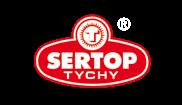
58 Przemysłowa Street 43-100 Tychy, Poland
+48 32 217 08 38
+48 32 326 46 41 export@sertop.com.pl sertop.com.pl
SERTOP sp. z o.o. is a company with over sixty years of tradition and one of the largest producers of processed cheese in Poland. It offers consumers a wide range of processed cheeses, and for those who are attached to tradition – fried cheeses. Production technology guarantees the health safety of the products, and in combination with packaging, extends the shelf life of the products, in some ranges up to 180 days, without the need for preservatives. SERTOP operates on both the domestic and international markets. Sertop distributes its products to most retail chains in Poland and exports processed cheese to over 21 countries. The company holds the BRC Global Standard Certificate.
22 Żernicka Street 62-023 Robakowo, Poland sprzedaz@sushifoodfactor.pl sushifoodfactor.pl
Sushi&Food Factor is a leading producer of ready-to-eat sushi and Asian cuisine in Europe. Founded in 2015 in Robakowo, Poland, the company delivers fresh, high-quality products daily to 18 European countries. With innovative technologies, including cryogenic cooling and protective atmosphere packaging, Sushi&Food Factor combines Japanese culinary tradition with modern convenience. The company’s mission is to democratize premium sushi and offer a wide portfolio, including sushi, onigiri, ramen, bao, and chirashi. Inspired by craftsmanship and global trends, Sushi&Food Factor continues to shape the future of readyto-eat Asian food.
48 Szarych Szeregów Street 60-462 Poznań, Poland +48 61 668 83 01 office@terravita.pl terravita.pl
Terravita is a company that shares its extensive experience and knowledge, gained over many years, with professionals in the confectionery industry. With a deep understanding of the needs of confectioners, local artisans, and the broader food industry sector, the company is dedicated to delivering solutions tailored to its partners.
The company is committed to building long-term business relationships based on mutual trust. Terravita has been shaping its identity while providing business partners with premium-quality chocolates and a wide range of confectionery semi-finished products, including creams, sauces, and toppings for confectionery and ice cream.
Terravita has established itself as one of the largest Polish manufacturers of chocolate and semi-finished confectionery products.


78 Podgorna Street 87-300 Brodnica, Poland +48 56 493 28 51 export@vobro.pl vobro.pl
VOBRO was established in 1986. The company employs over 300 people, most of them are long-term employees who present vast experience and have been associated with the production of sweets form many years.
The VOBRO company is known preliminary for its production of chocolate sweets – including chocolate pralines. FRUTTI DI MARE (seafood-shaped pralines), as well as CHERRY PASSION and LOVE & CHERRY (cherry pralines in chocolate) brands are products known to chocolate praline consumers in markets around the world. A large part of the company`s products are chocolate candies and chocolate bars – including the very popular TRUFLA and JAMAJKA brands. For several years, the company has also been investing in other types of sweets: jellies, including new brand JELLY DOT and different formats of bars. The VOBRO brand is a leader in many markets in term of the occasional products offer, i.e. products bought by consumers as calendar occassions (Valentine`s Day, Mother`s Day, Christmas, etc.).
14 Władysława Warneńczyka Street 30-520 Cracow, Poland +48 669 222 356 export@wawel.com.pl wawel.com.pl
WAWEL SA is one of the most renowned Polish confectionery producers. It offers a wide portfolio of chocolate tablets, chocolate bars and pralines, candies, caramels and fruity jellies. Wawel owes its success to over a century of experience along with continuous development and modern production process. Permanent care for high quality and global standards resulted in exceptional growth and development. Today Wawel’s products are available in about 50 countries worldwide and the number of loyal customers is constantly growing.
Bolesławiec 12A 62-050 Mosina, Poland +48 61 893 03 04 sekretariat@wielkopolski-indyk.pl wielkopolski-indyk.pl
Wielkopolski Indyk is a leading expert in turkey meat, combining tradition with modern processing and packaging technologies since 1967. The company operates internationally, working with major retail and distribution chains in Poland and abroad, and exporting under clients’ brands to European and Middle Eastern markets. Integrated from farm to fork, Wielkopolski Indyk manages crop cultivation, a feed mill, farms, a slaughterhouse, and a modern plant specializing in cold cuts, convenience products, sausages, long-ripened meats, and sous-vide items. Its quality is confirmed by HACCP, BRC, IFS, and Halal certifications.
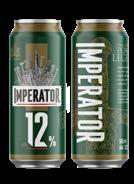
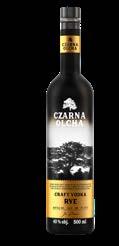
The return of the legend –this beer is made from an old recipe but with a new graphic design for a more modern look. Imperator has a distinct, pleasant sweetness and 12% alcohol content.
A unique and strong beer. Brewing method: bottom fermentation, filtered
Pasteurization: yes
Beer type: ultra strong lager
Alcohol content: 12%
Packaging: 500 ml can www.JABLONOWO.pl

“The best of the best” – this beer is brewed with the addition of buckwheat and sweetened with honey just before bottling. Because the beer is unfiltered, it retains its health-promoting properties that result from its high contents of yeast and honey.
Brewing method: bottom fermentation, unfiltered
Pasteurization: yes
Beer type: honey lager
Alcohol content: 5.2%
Colour: dark
Packaging: 500 ml bottle, 500 ml can www.JABLONOWO.pl
Craft Vodka Czarna Olcha Rye is the quintessence of Polish distilling art. Its unique, delicate flavor stems from generations of production methods. Hand-bottled in limited batches in the Podlasie region of Poland using Polish rye spirit. It’s pure, with a subtle hint of fermentation base perceptible on the nose, and the taste is mild and delicate. The alcohol content is 40%. The distinctive and unique bottle design highlights the product’s distinctive character, while the gold label evokes the color of the grain and lends it exceptional elegance and quality. Attention to every detail, the rendering of the forest line, and the scaling effect of the tree symbol will delight every consumer who holds Czarna Olcha Rye Craft Vodka in their hands.
www.PARTNERCENTER.pl
Czarna Olcha Organic is an organic, craft vodka made from certified rye grown without pesticides or artificial fertilizers. The natural production process and environmentally friendly approach translate into exceptional purity, smoothness, and a subtle aroma. This new version, housed in an elegant white bottle with a silver label, highlights its unique character – perfect as a gift, wedding, or special occasion.
www.PARTNERCENTER.pl
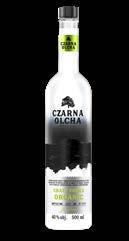
In 2025, SOLEO gained a totally new appearance, after rebranding. Now, our baked, salty snacks looks even more appealing. Available in different forms and shapes - sticks, pretzels in bags or tube container combining both. All made with top quality ingredients, and of certified quality (palm-oil & monosodium glutamate free, vegan/vegetarian friendly, Halal).
www.AKSAM.pl
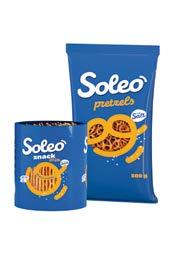
Hake in Mushroom Sauce with Bulgur from the Fish and Chill line is a ready to eat meal that brings freshness and true innovation. With fish as the star ingredient, it offers a quick, nutritious, and delicious solution for consumers who want to eat well without spending time cooking.
www.SEKOSA.pl

Breaded Miruna is a quick and convenient solution for those who want to eat tasty and healthy without spending much time
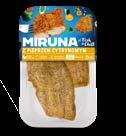
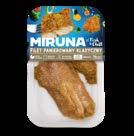
cooking. Delicate white fish fillets, available in classic and lemon pepper flavors, are easy to prepare, rich in Omega-3, and a perfect alternative to fast food or ready meals.
www.SEKOSA.pl
Kucharek Fix – the new line of powdered sauces from Kucharek brand - is a quick and easy way to enjoy a rich, cheesy and aromatic dish. The intensely cheesy, velvety sauces are enhanced with carefully selected spices and a hint of fragrant herbs. A short list of shopping and a concrete recipe is shown on each packaging. The products dissolve quickly and smoothly in cold water and cooking lasts just several minutes. 7 sauces are available – for 7 days a week.
www.PRYMAT.pl
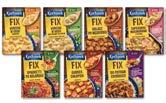
Kucharek Instant Chicken bouillon can be used to enhance the flavour of soups, stews, sauces, and rice dishes as well as just hot bouillon for drinking. For example, it is commonly used in chicken noodle soup, risotto, and various casseroles. It is available in 2 kinds of packaging: a bag is enough for 12 portions and a tube for 67.
Kucharek instant bouillon completes a line of bouillons from Kucharek.
www.PRYMAT.pl
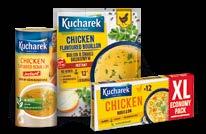
Wafer rolls with chocolate
cream
• Crunchy wafer
• Soft cream
• High-quality cream
• Net weight: 120 g
Wafer Rolls with cream
• Crunchy wafer
• Soft cream
• High-quality cream
• Net weight: 120 g
www.BOGUTTI.com
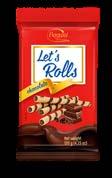
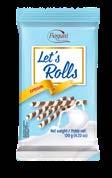
Vanillia & dark chocolate
• High-quality ingredients
• Net weight: 100 g (3.53 oz)
White Choco
• High-quality ingredients
• Net weight: 100 g (3.53 oz)
www.BOGUTTI.com


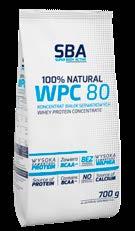
Super Body Active WPC 80 whey protein concentrate is a top-quali ty, 100% natural, pure whey protein concentrate. It is a rich source of high-quality proteins, which con tribute to the growth and main tenance of muscle mass, as well as calcium, essential for strong bones and healthy teeth. It is free from sweeteners and gluten.
www.MLEKOVITA.com.pl
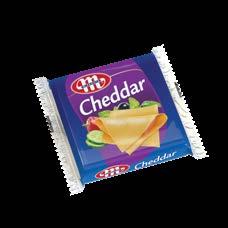
High quality Cheddar processed cheeses add a unique, unconventional flavor to any dish, making them perfect for any occasion: a delicious breakfast, a quick snack, as part of a home-cooked meal, or as a side dish for casseroles. The practical, easy-to-open packaging is perfect for trips or picnics. Individually wrapped slices guarantee long-lasting freshness. A 130 g package contains 8 slices.
www.MLEKOVITA.com.pl
Soft-textured sausages with a natural flavour, made from 100% Polish ham. Due to their pure composition, lack of preservatives and artificial additives, they are also great when served cold. Products of Goodvalley are made based on a unique production model ‘from field to fork’, thanks to which we have full control over the chain of product creation, which guarantees freshness and taste.
www.GOODVALLEY.com
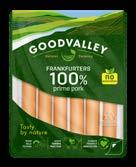
Boiled ham 100% Polish meat is the perfect choice for family meals. The product contains only 3% fat. Goodvalley’s 100% meat ham is packaged in a recycled tray. The products of Goodvalley are made based on a unique production model ‘from field to fork’, thanks to which we have full control over the chain of production of our products, which guarantees freshness and taste.
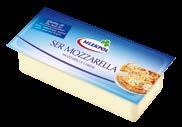
Mozzarella is a cheese with a mild and delicate flavour. It is perfect for bak ing and, which is distinctive for it, after melting it becomes flexible and very stretchy, which makes it the most popular choice for making pizza. In combination with tomato sauce and basil leaves, it creates the classic taste of a timeless margherita, but it also builds a delicious composition with other ingredients. Mozzarella can be used in many dishes, such as casseroles, lasagne and pasta. Mozzarella from Mlekpol provides a unique Italian taste, because the product is made of the highest quality Polish milk from cows grazed in the cleanest regions of Poland. It is also an excellent source of calcium, valuable vitamins and minerals.
www.MLEKPOL.pl

www.GOODVALLEY.com
Whey protein concentrate 80 is a product obtained by the separation of the whey protein from the pasteurized liquid whey in the ultrafiltration process so that the finished product contains at least 80% protein. It can be used as a food additive and is a source of nutritional protein for supplementation. WPC 80 is widely applied in diet foods and in sport nutrition products. It can also be a substitute for eggs in many products. WPC 80 is used in the production of bread, baked goods, soups, creams, sauce premixes and in many types of meat. What is more, it is unflavoured and can be given any flavour or aroma.
www.MLEKPOL.pl

250 g, Brownie with raspberries
252 g


Discover two unique flavors that capture the warmth and richness of the season. Our Brownie with Raspberries brings together dense, chocolatey brownie-inspired filling and the refreshing zest of raspberries – an intense yet fruity duet, like a homemade dessert wrapped in a bar, perfect for cozy winter evenings. Alongside it, Honey Raspberry offers a silky milk chocolate embrace, hiding a golden touch of honey paired with juicy raspberries – a sweet harmony that tastes like the comforting memory of home in the heart of winter.
www.WAWEL.com.pl
Processed cheese in slices 130 g by SERTOP is a line of cheeses including popular flavors: Golden Emmentaler, Gouda, Cheddar, Toast, Gouda without lactose and with ham.

These are high-quality products manufactured on the basis of carefully selected raw materials. Processed cheese in foil packaging of the open-close type. The package contains 8 slices packed individually. They do not contain preservatives and they are a source of calcium. Sliced cheese works perfectly as an addition to sandwiches and as a stand-alone snack.
www.SERTOP.pl
240
A classic wheat hot dog bun, ideal for preparing American-style hot dogs. With its soft texture, it holds toppings well while staying fresh. Each pack contains 4 soft and delicious buns, ready to be toasted, grilled, or served cold. The right bun elevates the entire dish, ensuring eating pleasure and convenience. It’s the foundation of a great burger or hot dog –without it, the whole creation simply wouldn’t work.
An elegant variety for the season: a delightful mix of classic White Michałki and the brand-new Pistachio Michałki. Together, they create a harmonious composition, perfect for sharing during festive gatherings or as a tempting gift full of winter charm.
www.WAWEL.com.pl

Processed cheese in round boxes 140 g SERTOP is a line of cheeses covering a wealth of various flavors offered solo and in flavor compositions as mixes. Creamy cheeses have a characteristic flavor and shape in the form of 17.5 g triangles. Selected raw materials and modern production technology. They are produced with attention to detail. They are packed in a practical round package with 8 cheese triangles with a strip that makes it easier to open each portion. They will diversify any breakfast.
www.SERTOP.pl
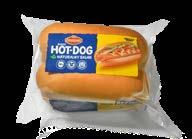
Classic wheat buns topped with white sesame seeds, also available in a butter version – Butter Burger Buns 300g (NEW) – with a delicate buttery flavor, finished with black and white sesame seeds. Perfect for premium burgers – both meat and vegan.
www.OSKROBA.pl
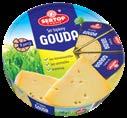
www.OSKROBA.pl



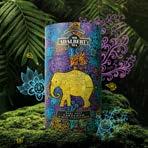
Adalbert’s Tea Earl Grey with Cardamom is a refined Ceylon black tea OP1, delicately scented with natural bergamot oil and enriched with the warm, spicy note of cardamom and a touch of blue cornflower. This distinctive blend combines tradition with a surprising twist, creating a full-bodied infusion that is both elegant and memorable.
www.ADALBERTS.pl
Processed cheese portions are the excellent spreads for bread and the tasty, creamy snacks. In a 140 g or 120 g pack there are 8 delicious triangular portions. Every portion has a special ribbon for easy opening.
www.LACTIMA.com
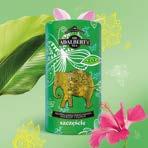
Adalbert’s Tea Soursop & Mango – Happiness is a premium Ceylon black tea OP1 infused with the sweetness of ripe mango and the unique, refreshing flavour of exotic soursop. This vibrant blend offers a smooth yet uplifting taste experience, crafted to bring joy and brightness to everyday moments in an elegant cup.
www.ADALBERTS.pl
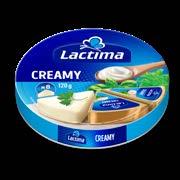
Pistachio flavoured fudge is crafted using recipes dating back to the 1950s, where traditional preparation methods meet modern production techniques. The result is a creamy texture, balanced sweetness, and a refined nutty profile. Highly popular among consumers worldwide, particularly in the Middle East, this variety has quickly gained recognition as a premium confectionery option. Its unique pistachio taste and elegant aroma distinguish it from classic cream fudge and make it a favorite choice for those seeking something different.
www.MAJAMI.pl
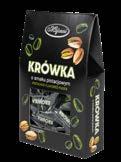
High quality product produced with modern technology based on carefully selected raw materials and is targeted to a wide range of consumers. Each slice of cheese is individually wrapped in plastic foil, which is a great help in preparing the sandwiches at home, as well as outdoors. Slices can also be used to prepare toasts and snacks. Some packaging of the slices is designed to allow multiple opening and closing, which helps to extend freshness of the product. Excellent taste and high nutritional values of the slices make the local as well as foreign consumers buy them for many years.
www.LACTIMA.com
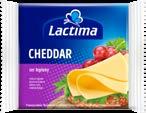
Halva is a trademark of Unitop sp. z o.o. - handmade, without palm oil, from the highest quality ingredients, which ensures its unique taste and excellent texture. It is available in a wide range of flavors, including vanilla, pistachio, nuts or chocolate covered. It is offered in a variety of forms to suit customers’ needs: as handy 50g and 100g bars, elegant gift halva cakes, larger kilogram blocks, and in a mini version - ideal for those looking for small, sweet pleasures. Unitop halva is the perfect choice for any occasion - it combines tradition, taste and quality!
www.UNITOP.com.pl
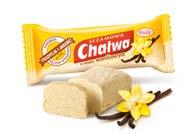
Ketchup No. VII is Fanex’s most iconic product and a true classic in Polish gastronomy. Made from carefully selected tomatoes and a perfectly balanced blend of spices, it delivers a rich, unmistakable taste that chefs and consumers have trusted for decades. Its smooth, velvety texture makes it a versatile companion – ideal with street food staples like fries, burgers and hot dogs, but equally suited to pasta sauces, grilled meats or creative marinades. A timeless recipe that has never changed, Ketchup No. VII remains a symbol of quality and flavor that never disappoints.
www.FANEX.pl

This novelty from Vobro is a line of pralines in doypacks. The top 5 flavours of pralines from the company’s portfolio are now available in packaging options for individual consumption. Each pack contains 8 pralines, each praline comes with an individual wrapper. The product weights do not exceed 100g, thanks to which the products are offered at attractive prices allowing the offer to compete with individual consumption products from other chocolate confectionery categories.
www.VOBRO.pl
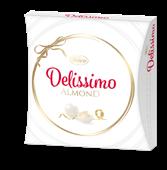
Mustard No. 32 is a signature Fanex creation – mild yet full of character. Its unique balance of sweetness, acidity and the subtle heat of mustard seeds makes it a perfect complement to a wide range of dishes, from grilled meats and roasted vegetables to hot dogs, sandwiches and hearty sauces. Crafted from high-quality ingredients, it delivers a smooth, deep flavor that works just as well in everyday cooking as in professional kitchens. Mustard No. 32 adds brightness and a refined touch to any meal, proving that simplicity and balance can create extraordinary taste.
www.FANEX.pl
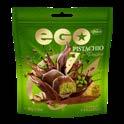
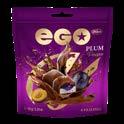
Delissimo Almond are delicate pralines, full of expressiveness and refined elegance. The packaging, perfectly in line with global design trends, conceals pralines in the form of spheres with a whole almond submerged in a delicious white cream. It is impossible to tear yourself away from them, as they seduce you with every bite with their velvety, almond-coconut flavor.
www.VOBRO.pl

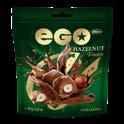
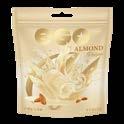
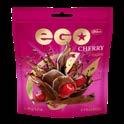
This novelty from Vobro will make happy fans of fruity pleasures! The delicious Pralines Plum in Chocolate stands out not only for its exquisite taste, but also for its unique plum shape, hiding a plum flavored filling and a whole plum inside. Each praline is packaged in an elegant purple wrapper, decorated with an appetizing image of a juicy plum coated in chocolate. Product is available in two formats: 144 g carton box and 192 g gifting packaging with a real rosette. www.VOBRO.pl



Our mango syrup, made with natural fruit juices, sweetened with sugar, without added glucose-fructose syrup, unpasteurized.
www.PIWNICZKABABUNI.pl




Sushi&Food Factor offers nearly 580 types of sushi rolls and almost 400 different sushi sets, with daily production reaching 180,000 trays. Our range includes small, medium, and large sets, carefully tailored to various price points to meet the needs of diverse customers across Europe.
www.SUSHIFOODFACTOR.pl
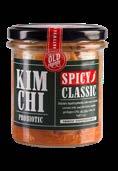
Kimchi Classic Spicy is our bestseller, crafted with an original recipe, utmost care, and handmade production. Born from passion for tradition and health, it offers an intense taste and natural fermentation. Each jar contains millions of health-boosting probiotic bacteria. Available in various types of packaging – always fresh, delicious, and full of quality.
www.OLDFRIENDSKIMCHI.pl
Our beetroot and horseradish are intensely flavorful, with no added preservatives. The vegetables used in production come from ecologically clean regions of Poland – Kashubia.
www.PIWNICZKABABUNI.pl
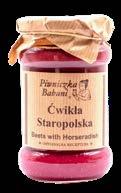



Sushi&Food Factor offers a variety of onigiri: savory options with chicken teriyaki, salmon, and shiitake mushrooms, and sweet versions like mango-coconut. Each onigiri is made with seasoned rice and high-quality ingredients, providing a convenient and tasty snack for every occasion.
www. SUSHIFOODFACTOR.pl
Kimchi Vegan Spicy is the plantbased version of our bestseller, crafted with an original recipe and handmade production. Instead of fish sauce, we use aromatic soy sauce, preserving full flavor and tradition. Natural fermentation enriches it with millions of health-boosting probiotic bacteria. Available in various types of packaging –fresh, spicy, and 100% vegan.
www.OLDFRIENDSKIMCHI.pl
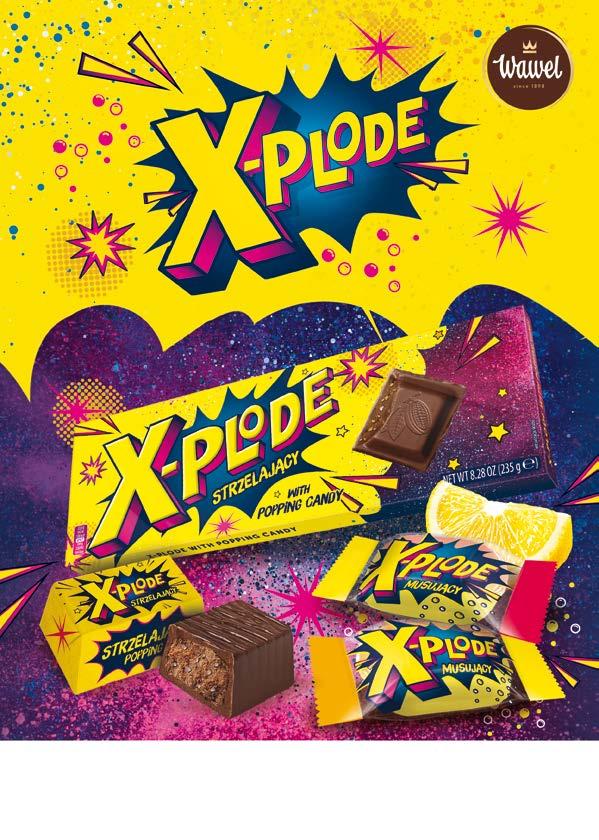

The Luxury Plum in chocolate is a signature praline that blends the natural sweetness of a dried plum with the depth of fine dark chocolate. This elegant combination creates a rich and balanced flavor experience, making it an indulgent treat for any oc casion. Its refined taste and premium character have made it one of the most recognized and beloved products in the Gibar assortment.
www.GIBAR.pl

Gibar offers two delicious treats: coconut in chocolate, where delicate coconut pieces are covered with smooth chocolate for an exotic, refined taste. Sesame bites in chocolate deliver the crunch of golden sesame seeds wrapped in rich chocolate, creating a unique flavor. Both products are perfect for a moment of everyday indulgence.
www.GIBAR.pl

Gibar, a company with 30 years of experience, invites business partners looking for a reliable and experienced partner on the Polish market. For years, we have specialised in the distribution of high quality confectionery. Our strength is flexibility, efficient logistics and an individual approach to each customer and producer. Tradition, commitment and flexibility are the main pillars of our activity
Contact: +48 42 640 75 41 gibar.com.pl

Classic Terravita dark chocolate with lemon filling combines the intense depth of cocoa with the refreshing freshness of lemon. The velvety dark chocolate hides a delicate, creamy interior with a citrus aroma, which gives it a unique lightness. The perfect choice for lovers of contrasts – sweetness and sour notes.
www.TERRAVITA.pl
Polish poultry meat can successfully compete with the offer of world leaders by: competitive pricing – which you can expect from Polish producers and which becomes the key factor, when the product is of impeccable quality in relation to the price; exceptional quality and taste, resulting from full control of the production process “from farm to fork”; wide selection of poultry products: chickens, turkeys, geese, ducks and other types of poultry, offered as fresh meat: carcasses and different cuts (available also as frozen meat) and offal and preparations.
www.KRD-IG.com.pl



Classic Terravita dark chocolate with mint filling is a harmonious combination of the intense flavor of cocoa and refreshing mint. Each piece melts in your mouth, combining the depth of dark chocolate with a delicate creamy filling with a fresh mint flavor. An excellent choice for a moment of relaxation and a little sweet refreshment.
www.TERRAVITA.pl


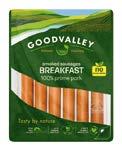
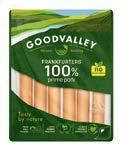
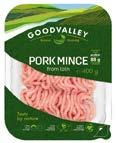
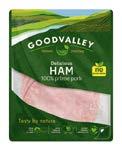
Fruity inside, cho colate outside
Wawel’s irresistible bestsellers with worldwide appeal!
